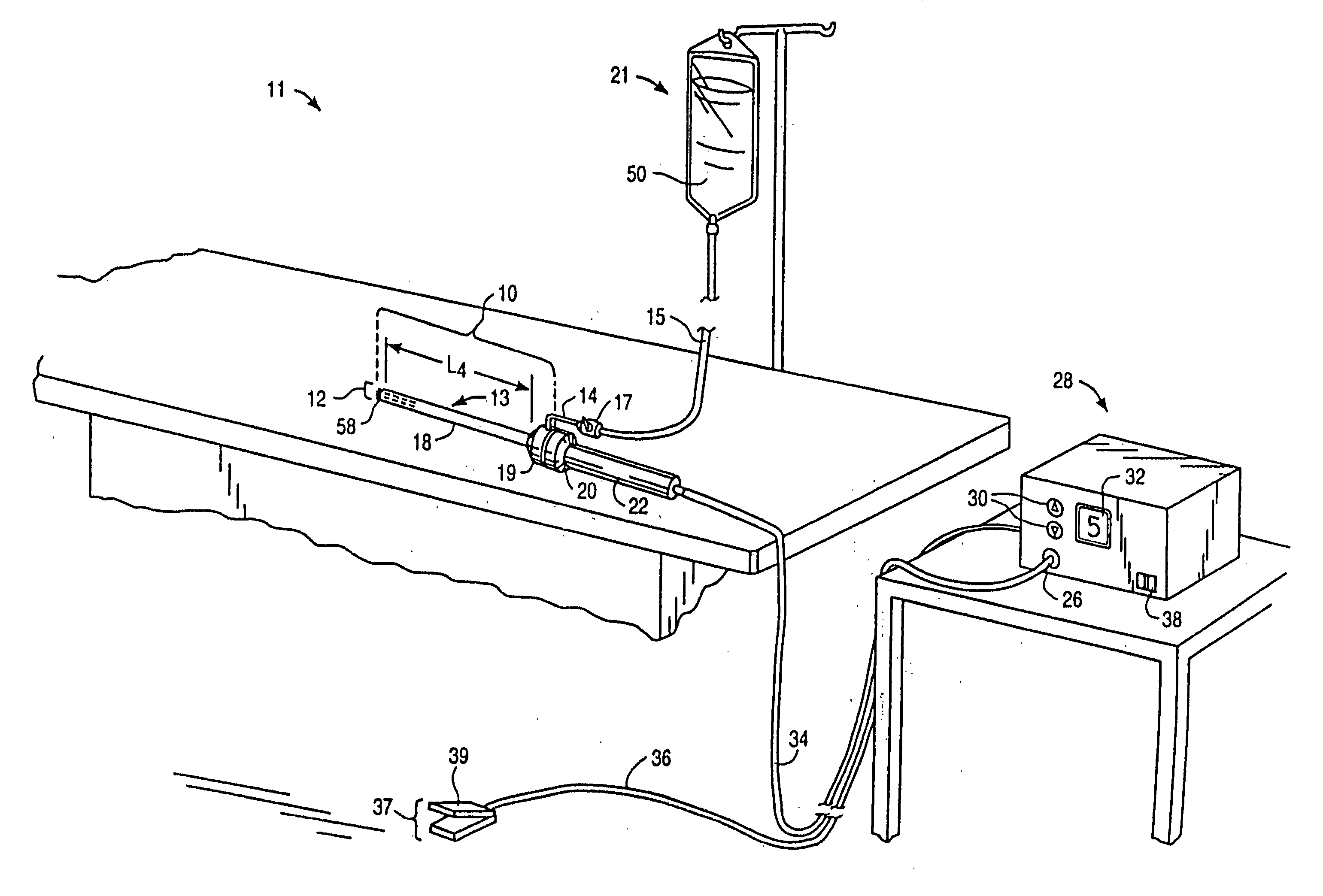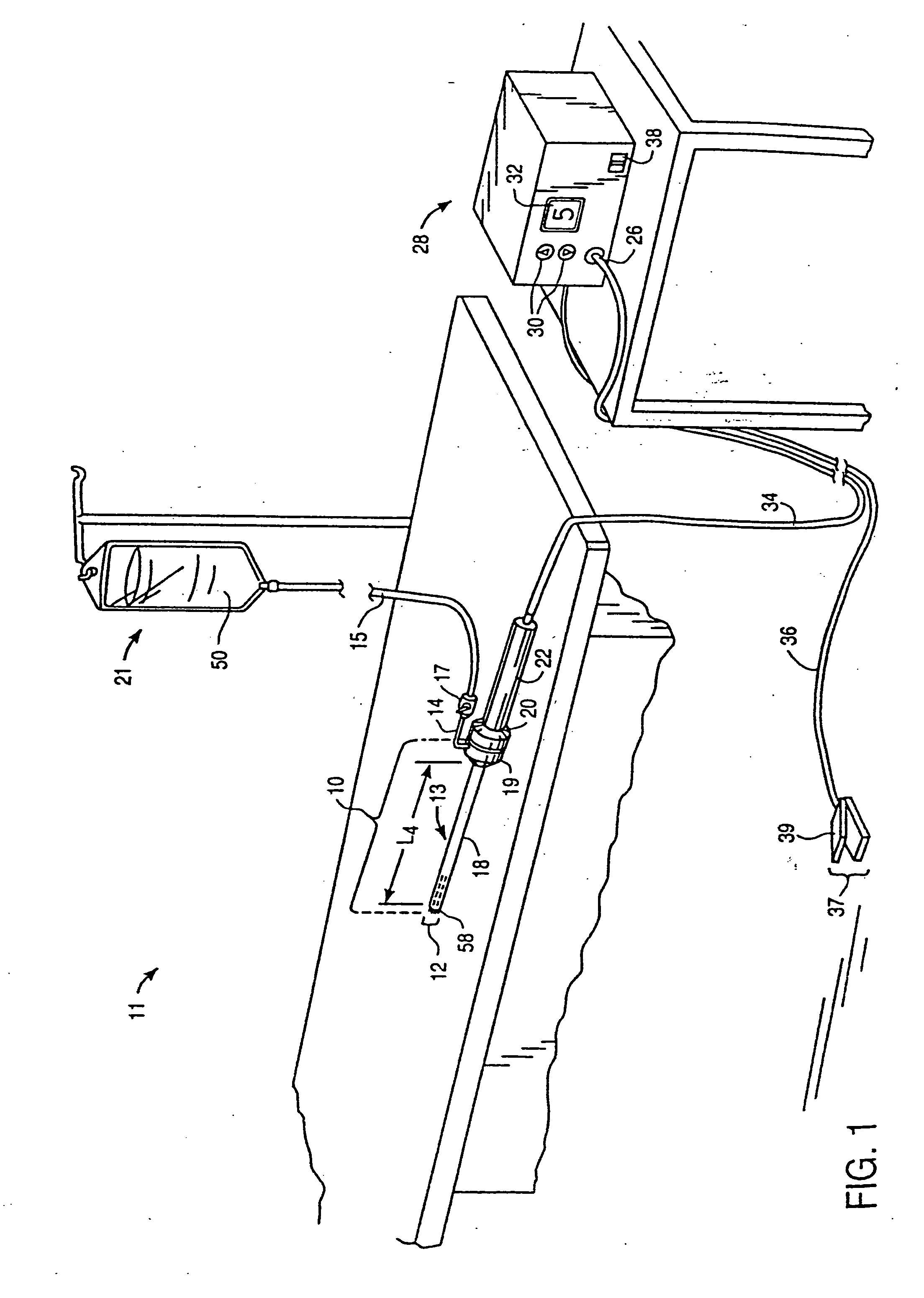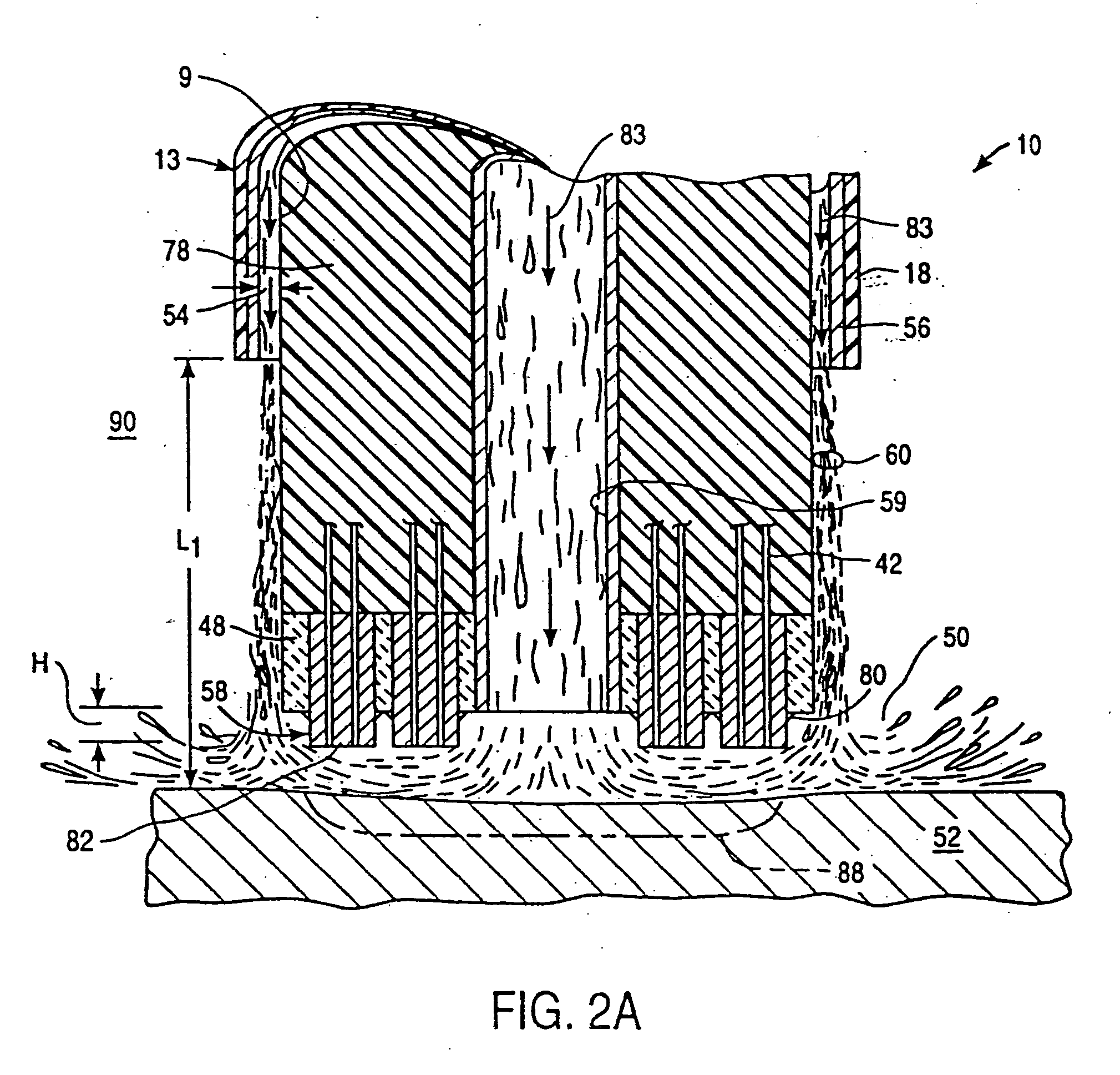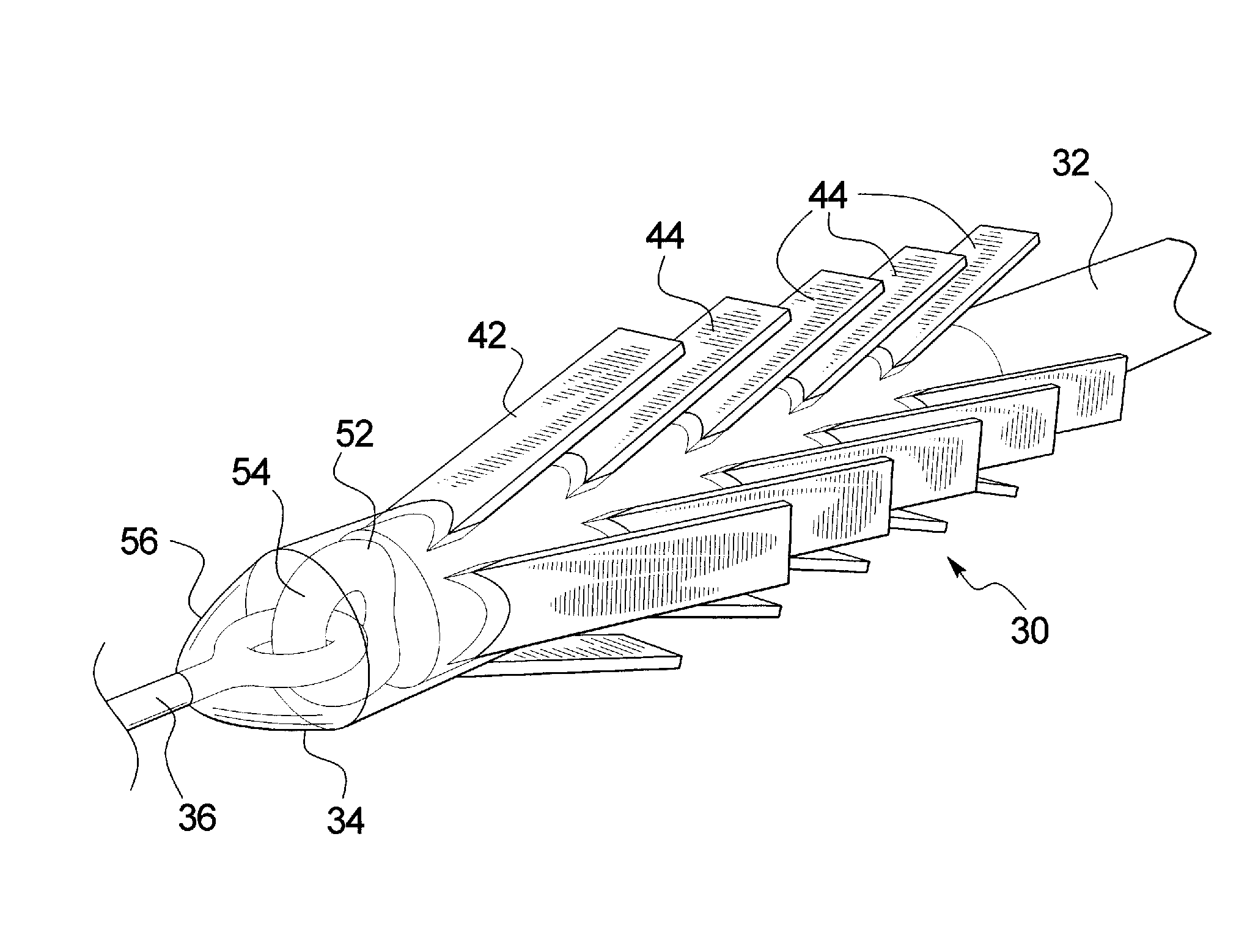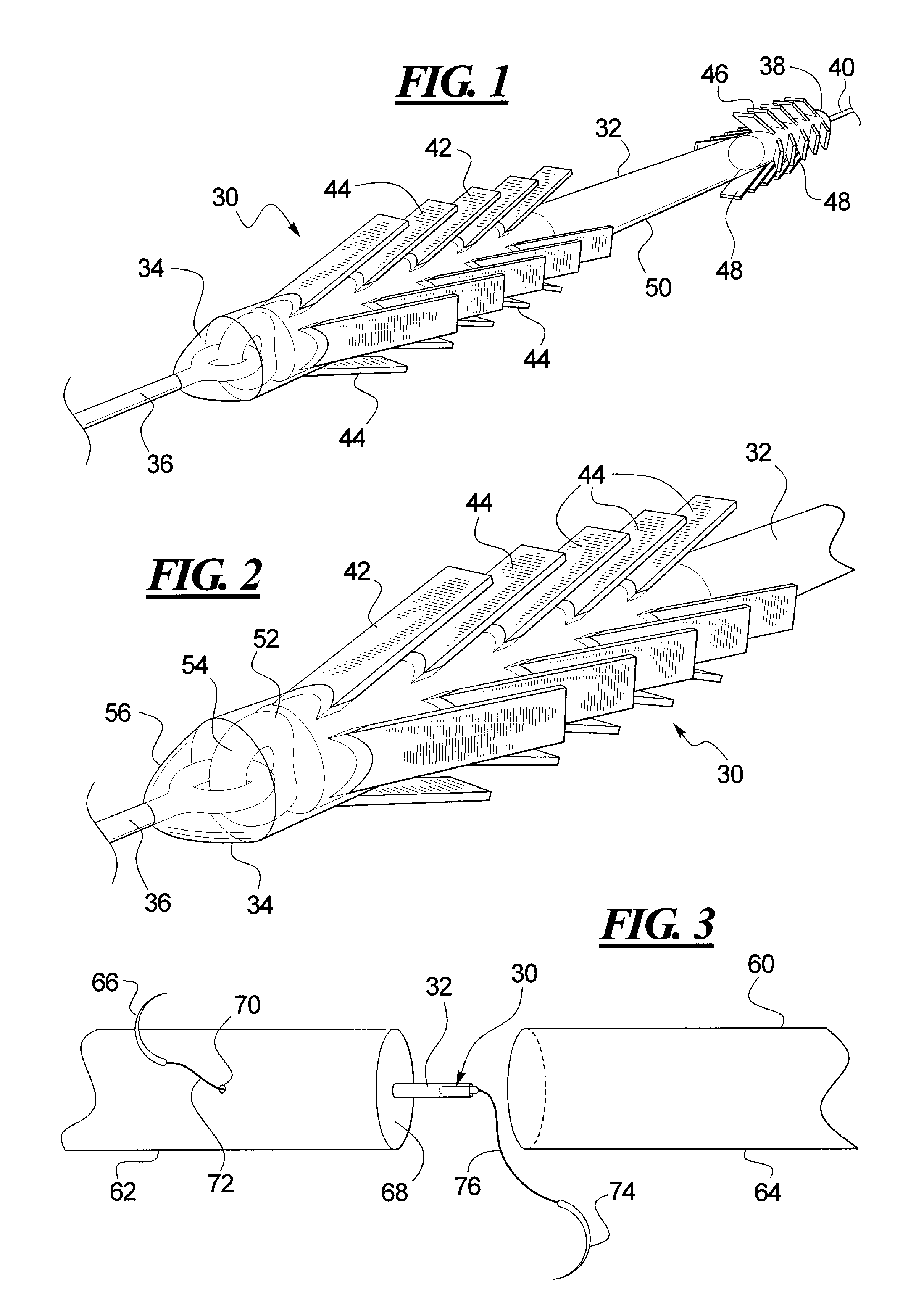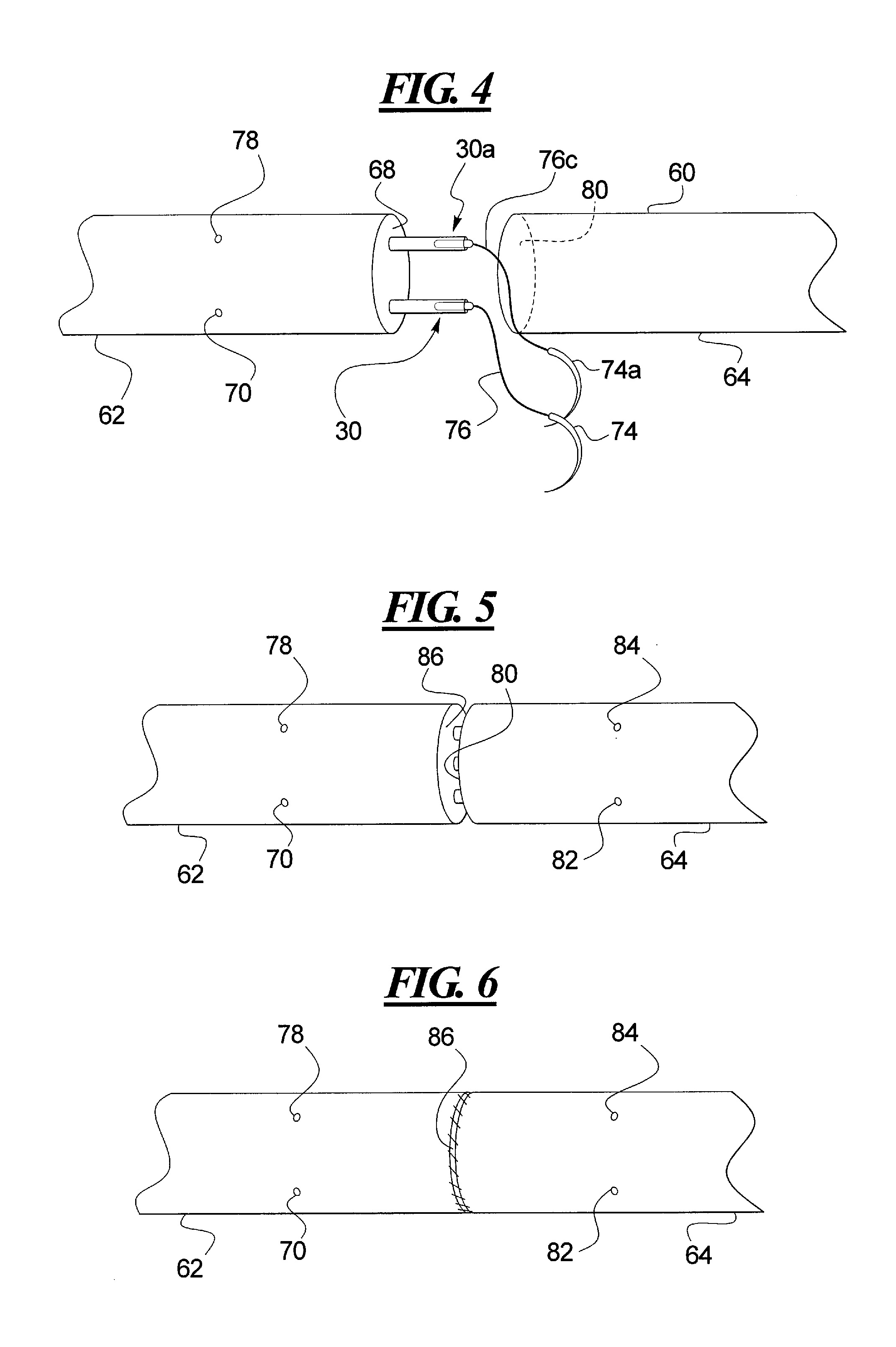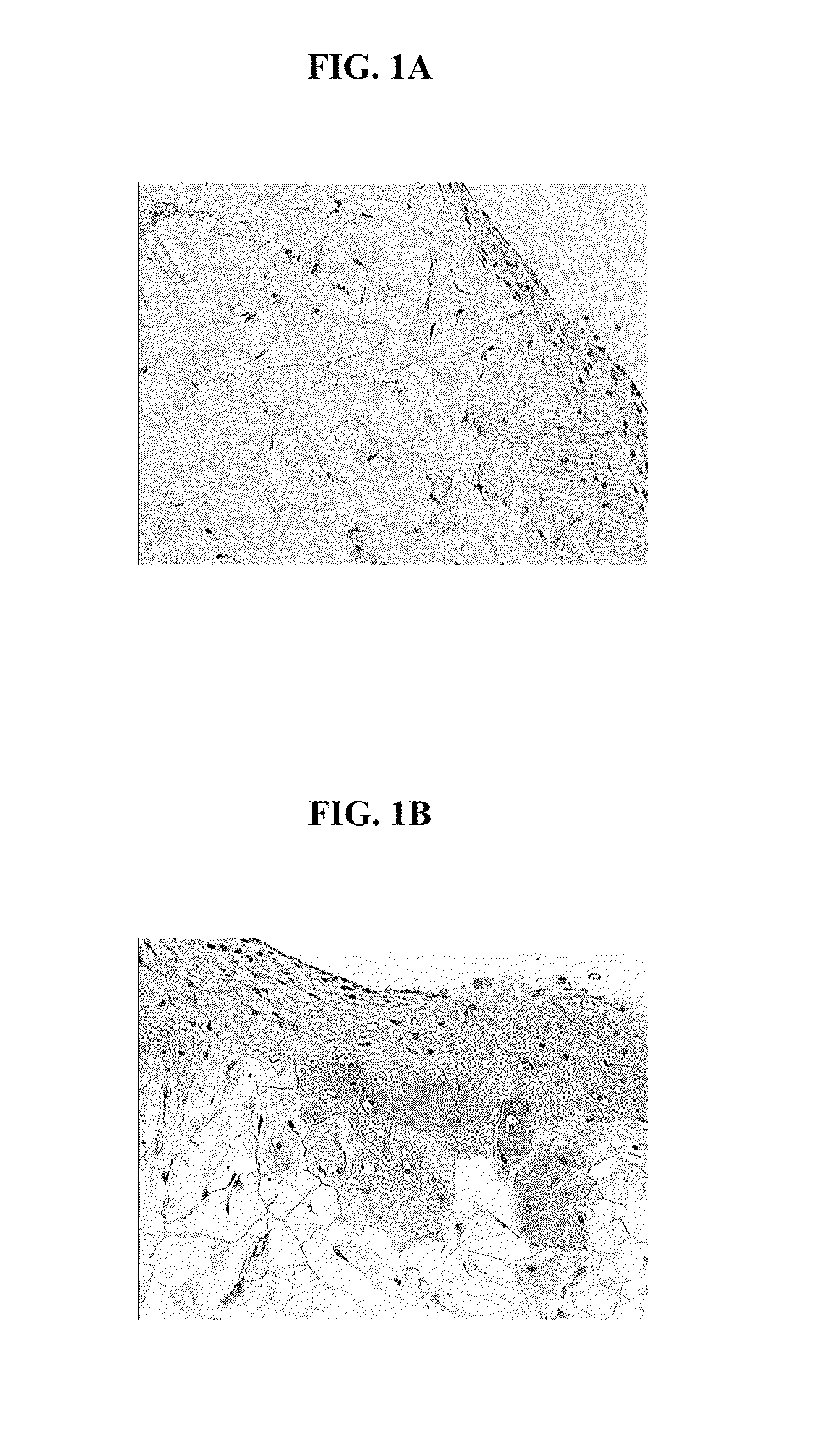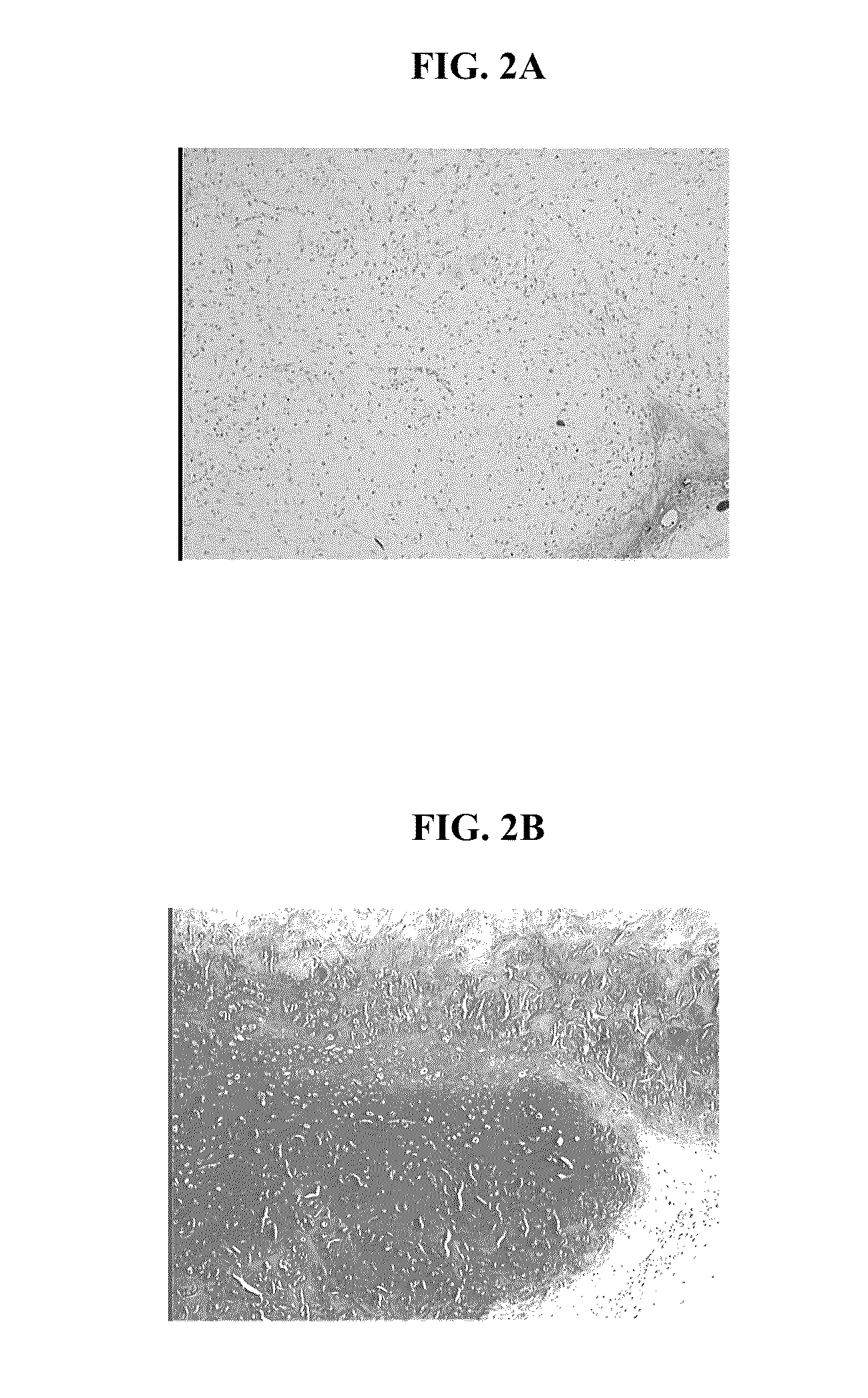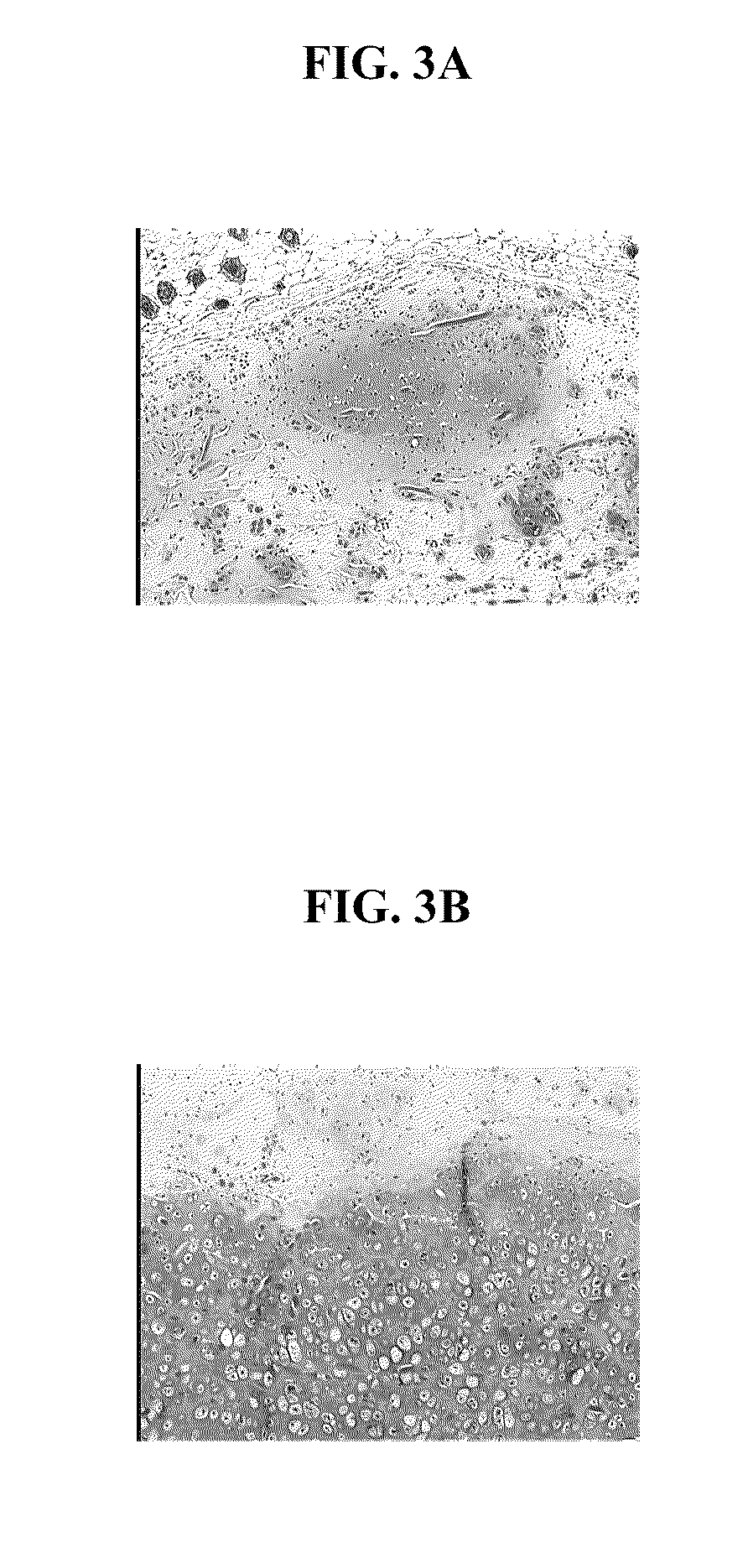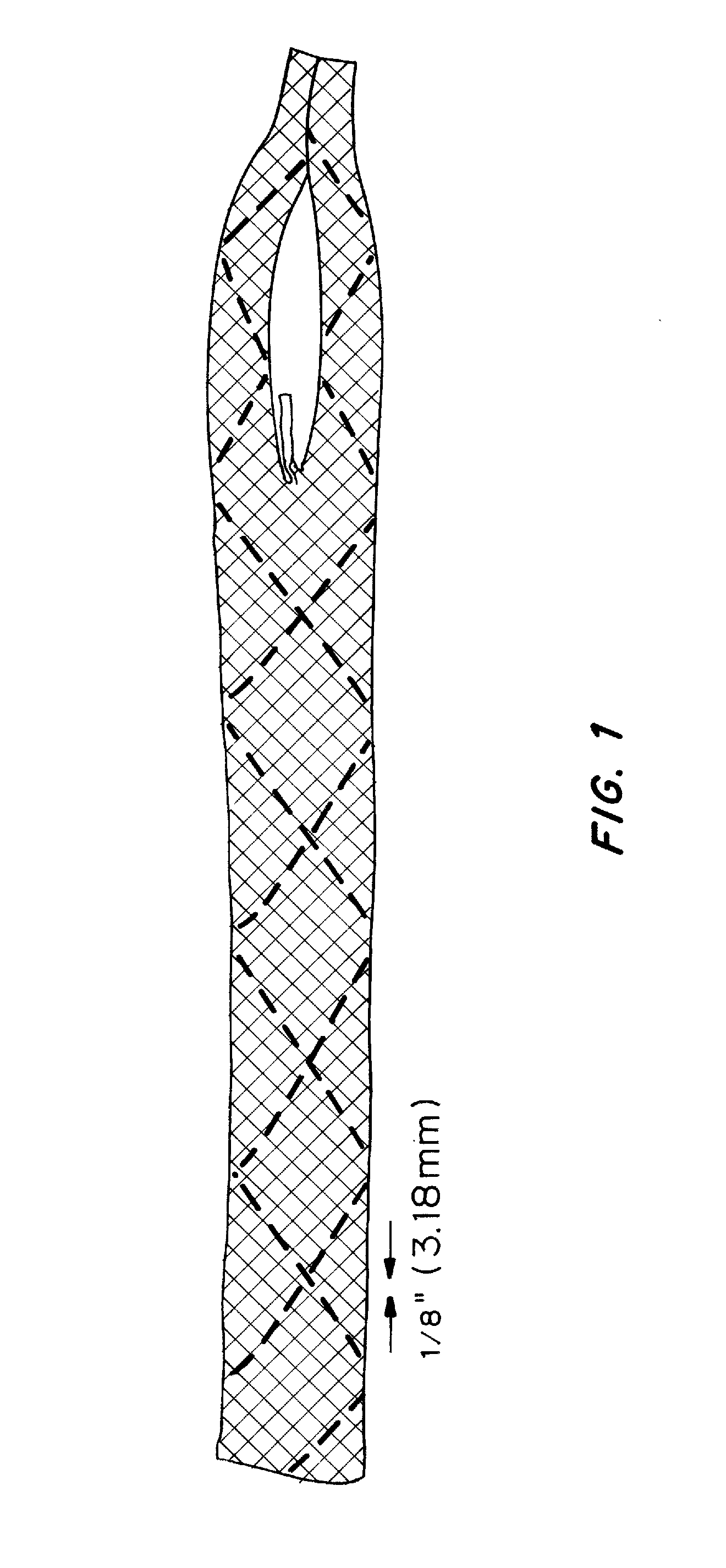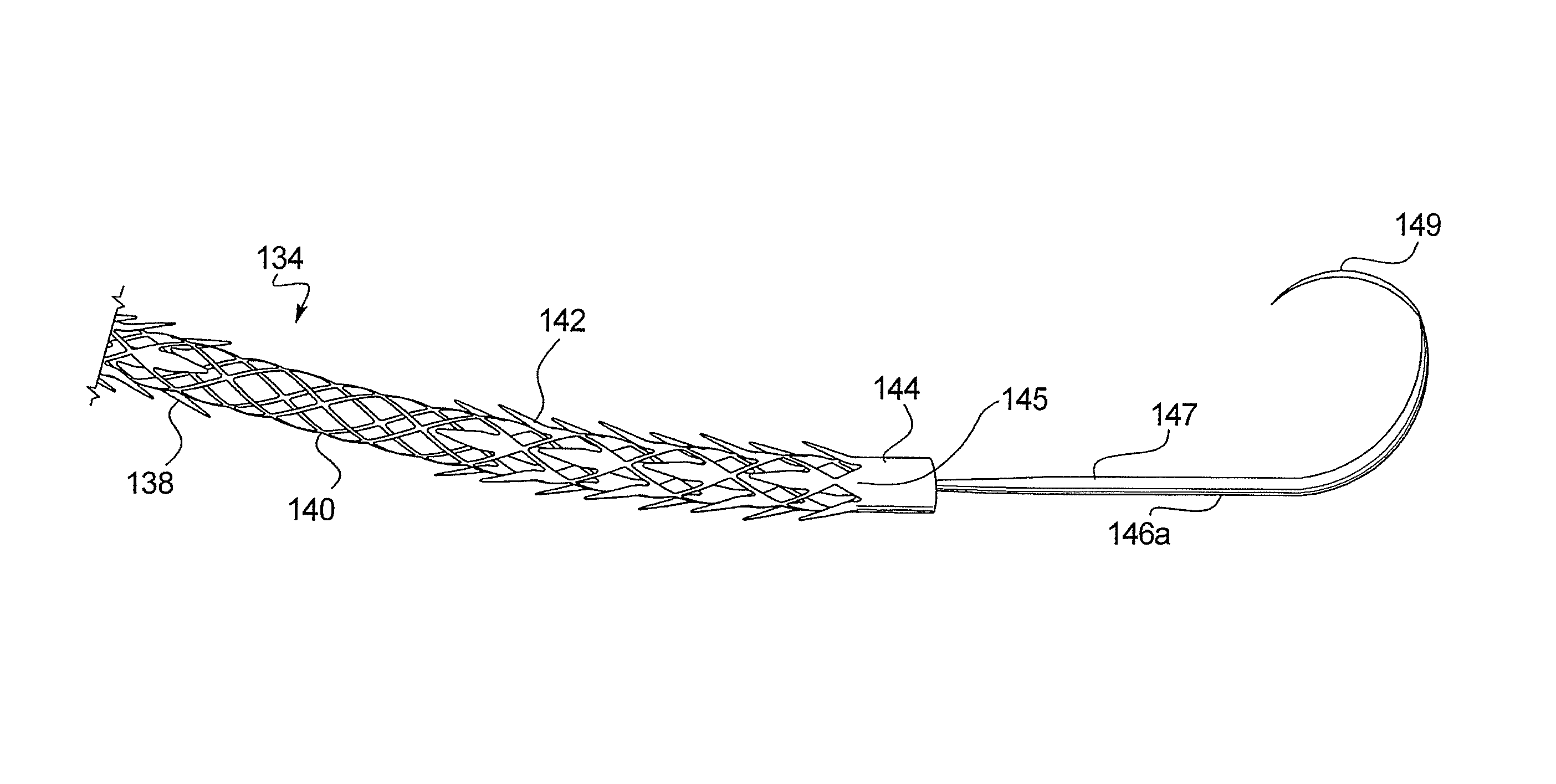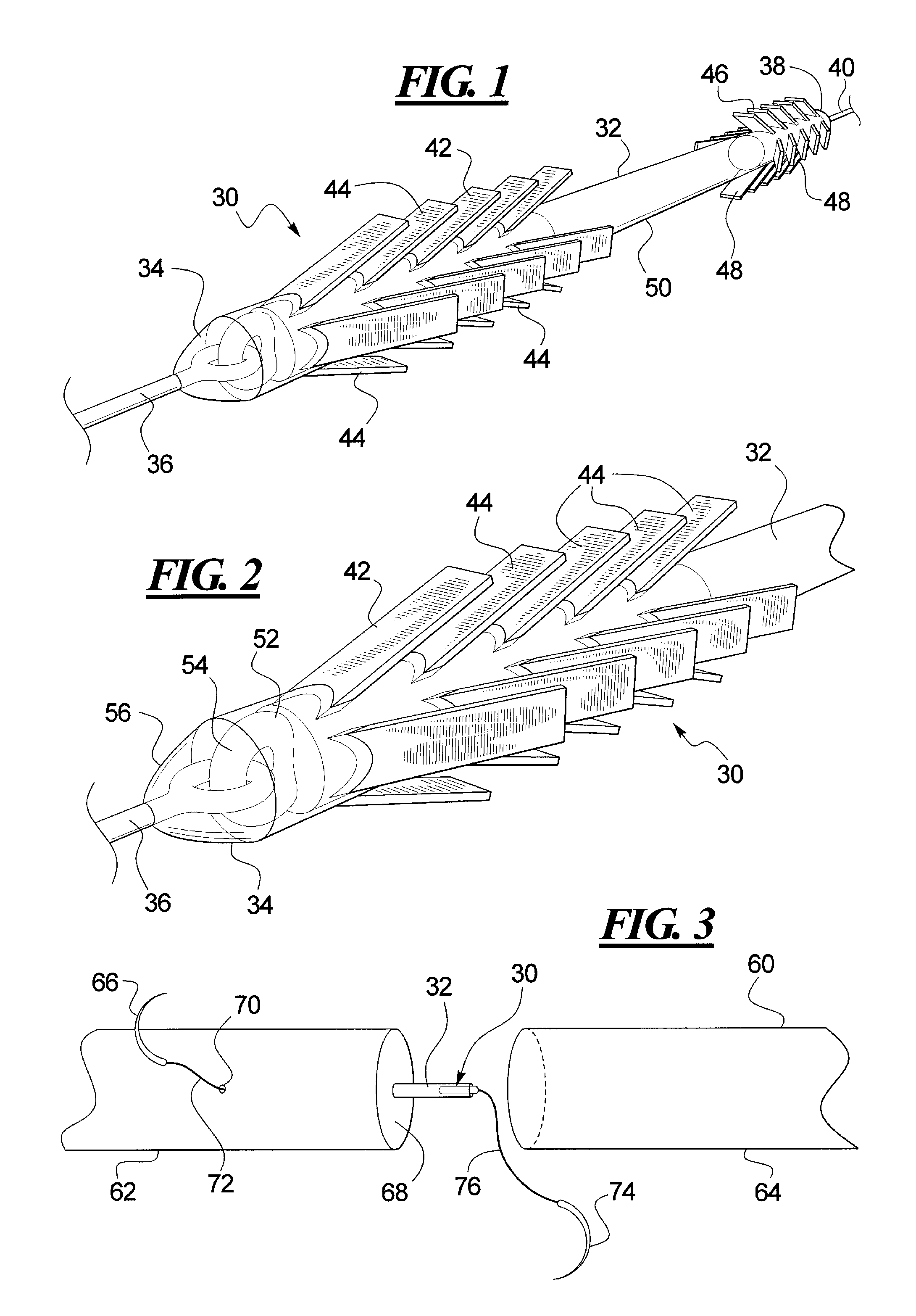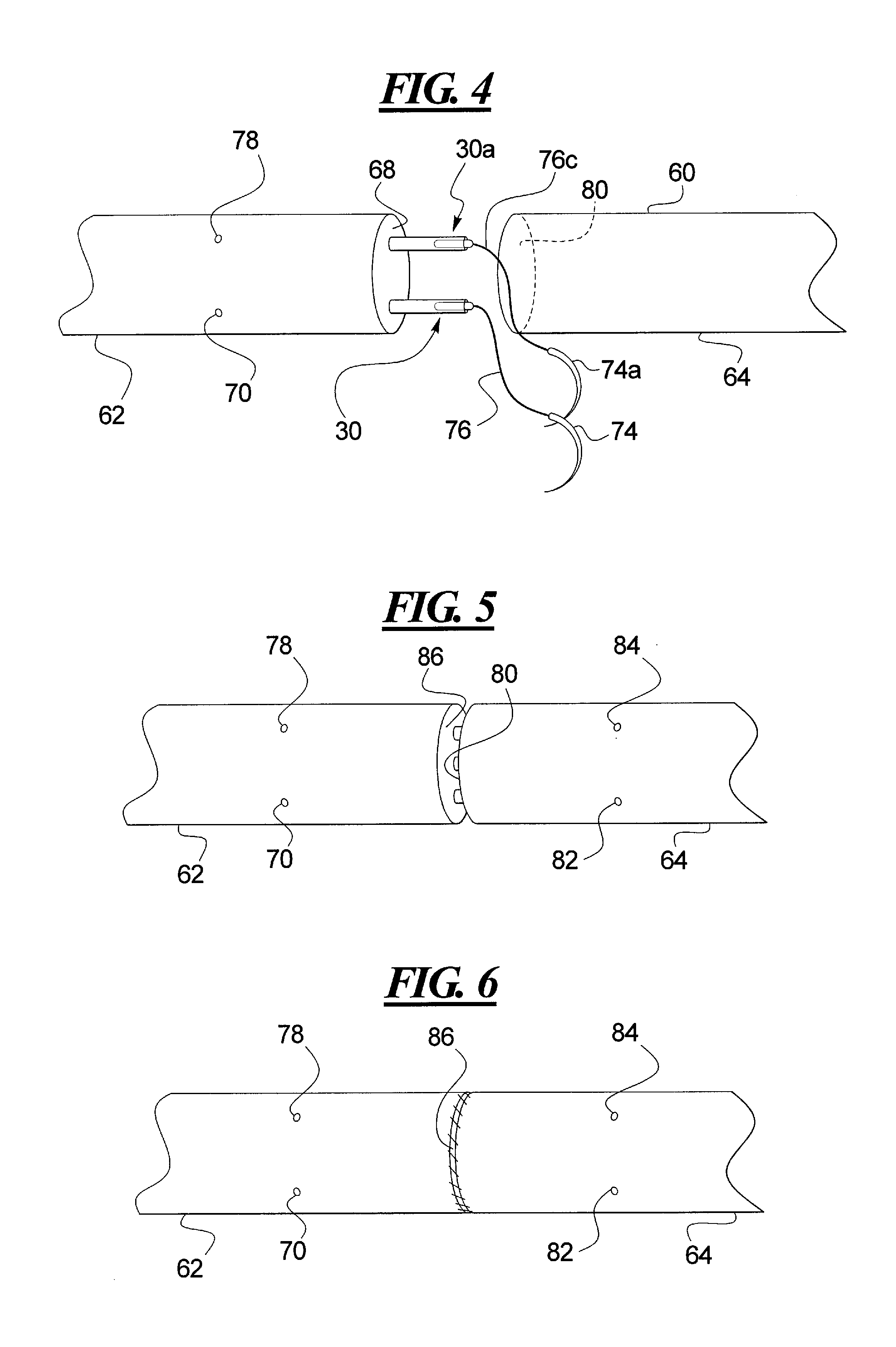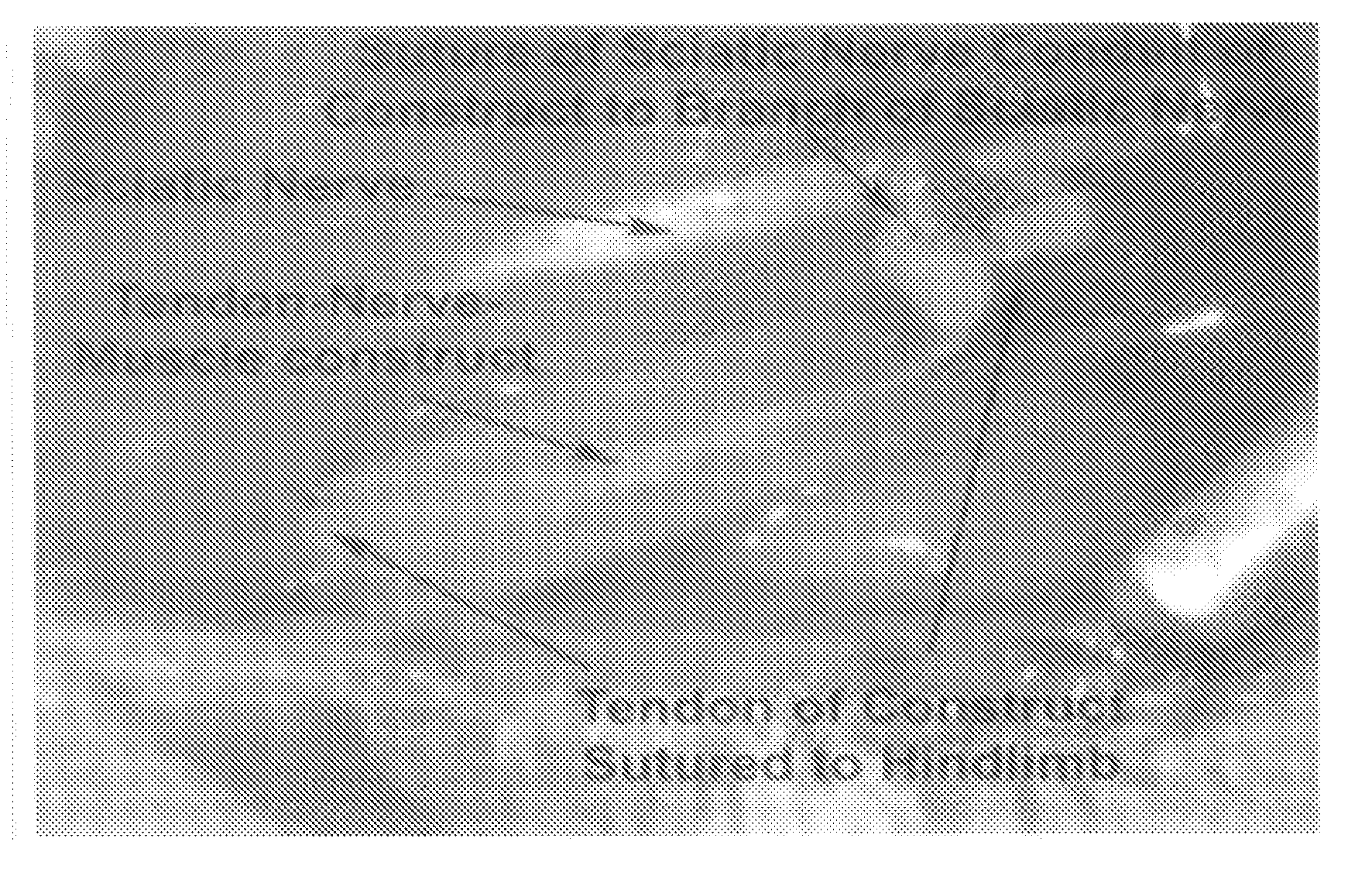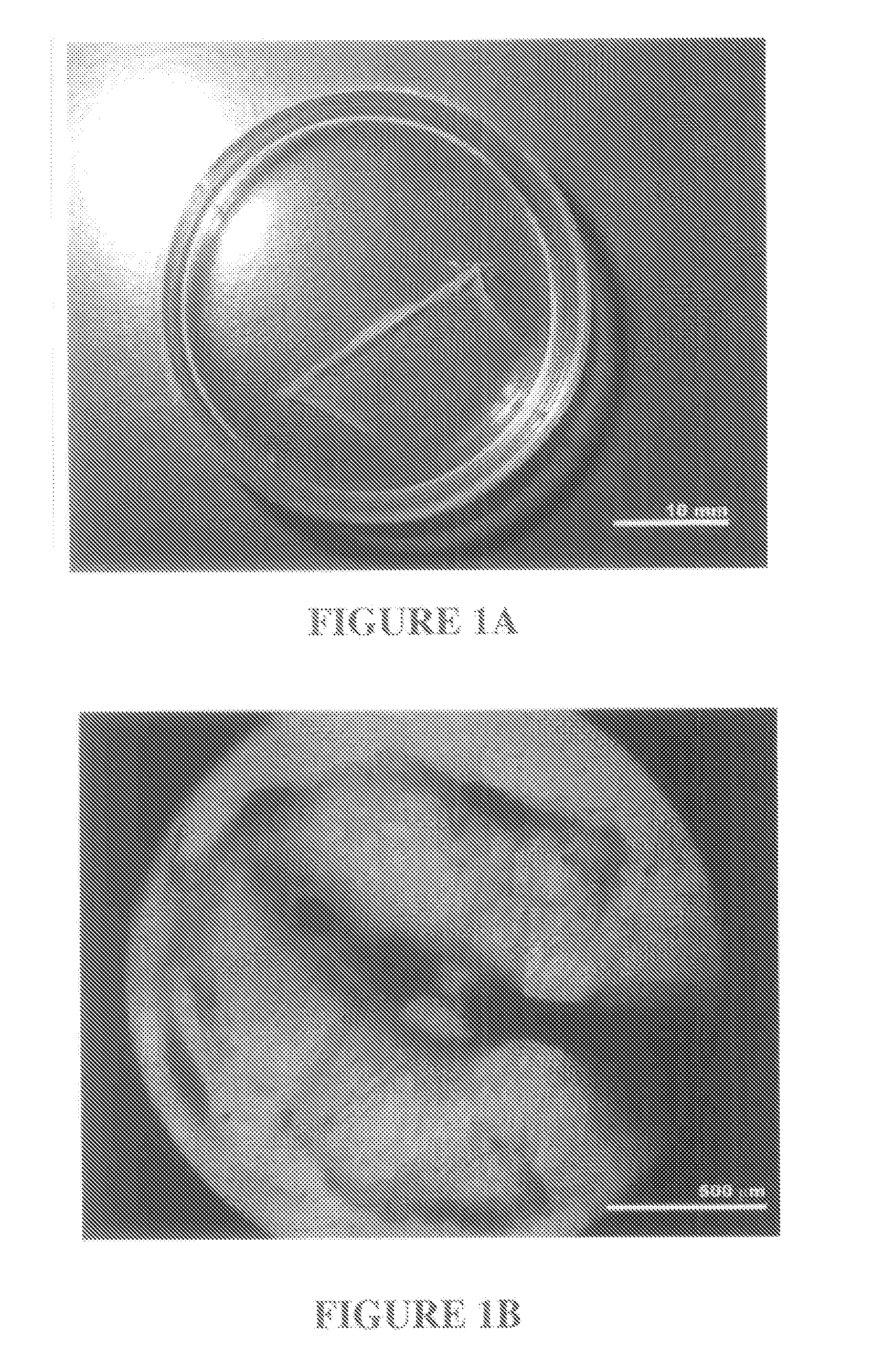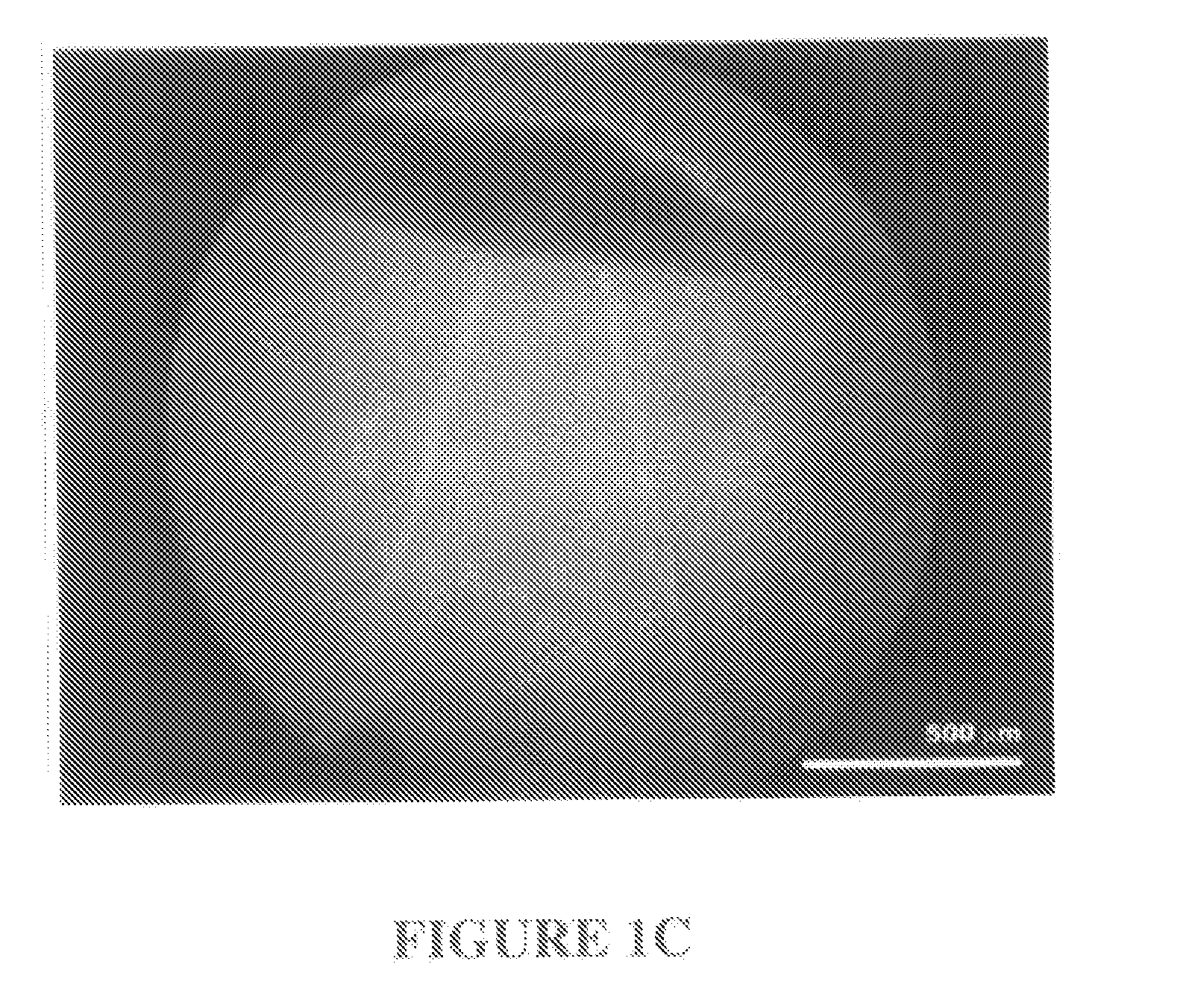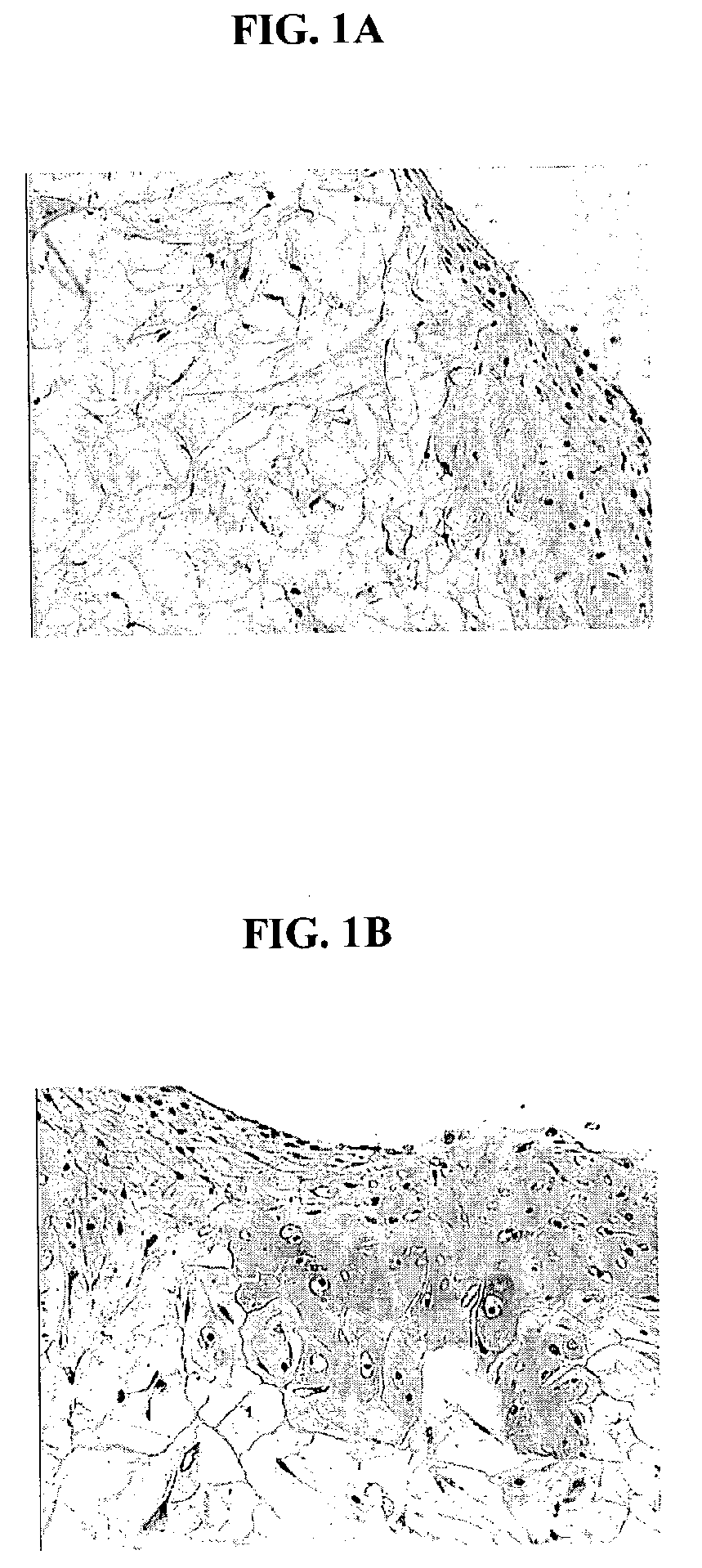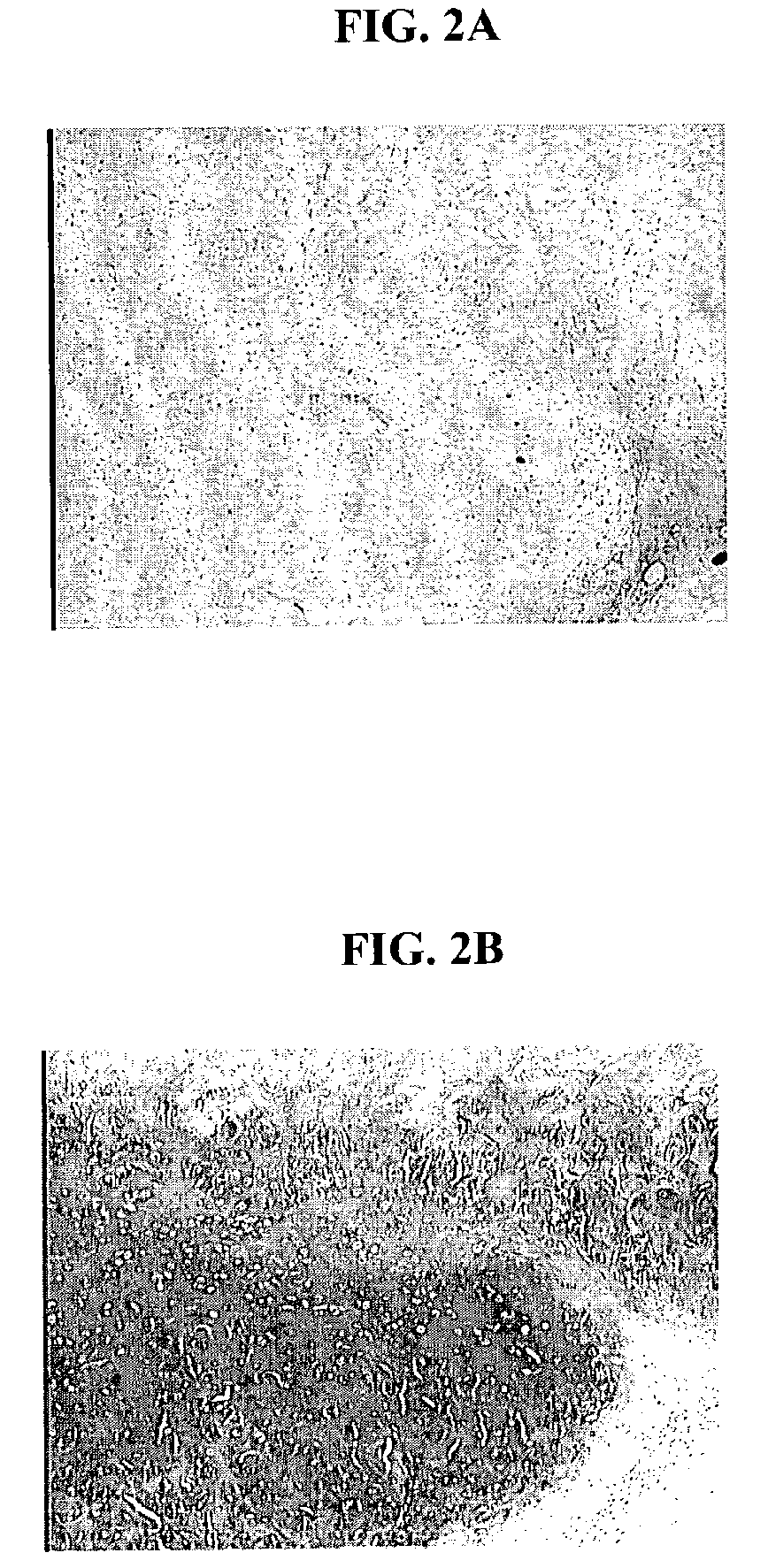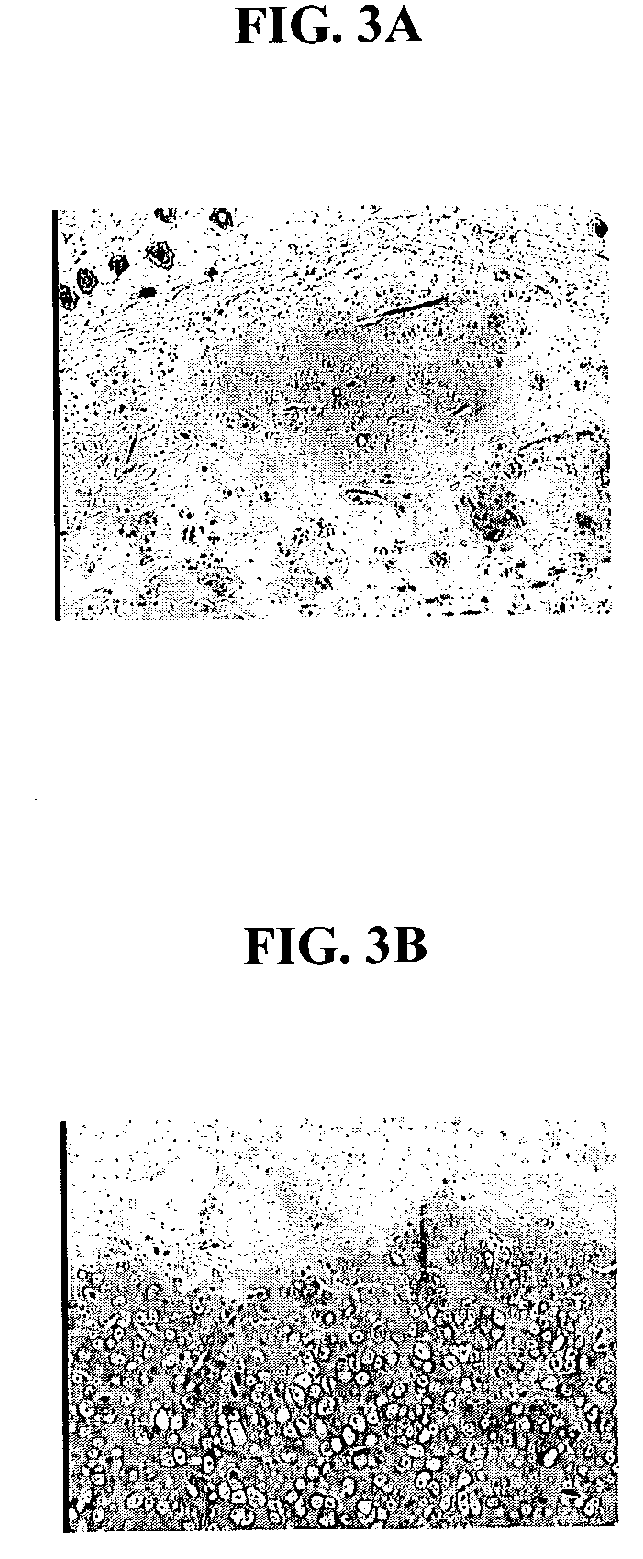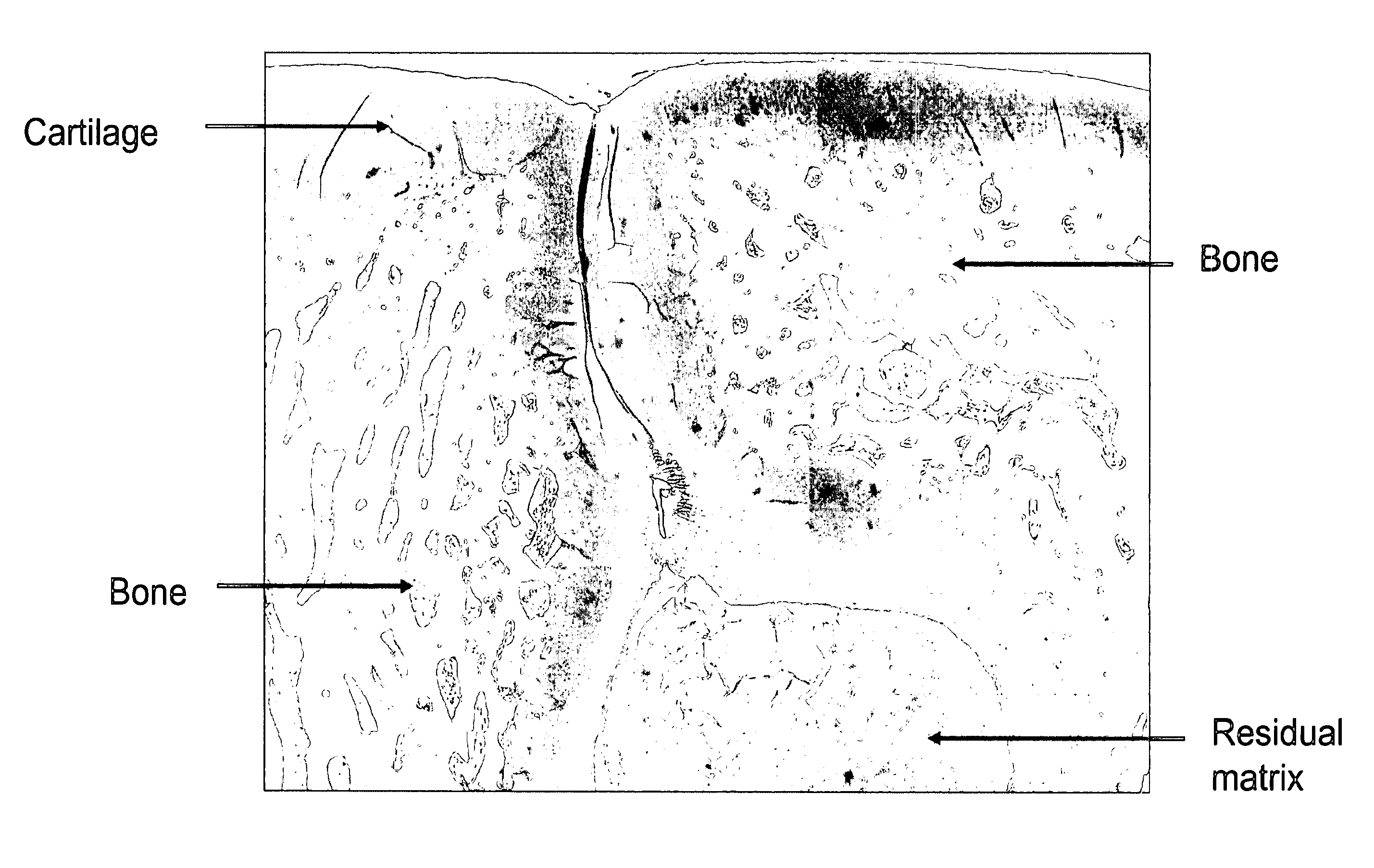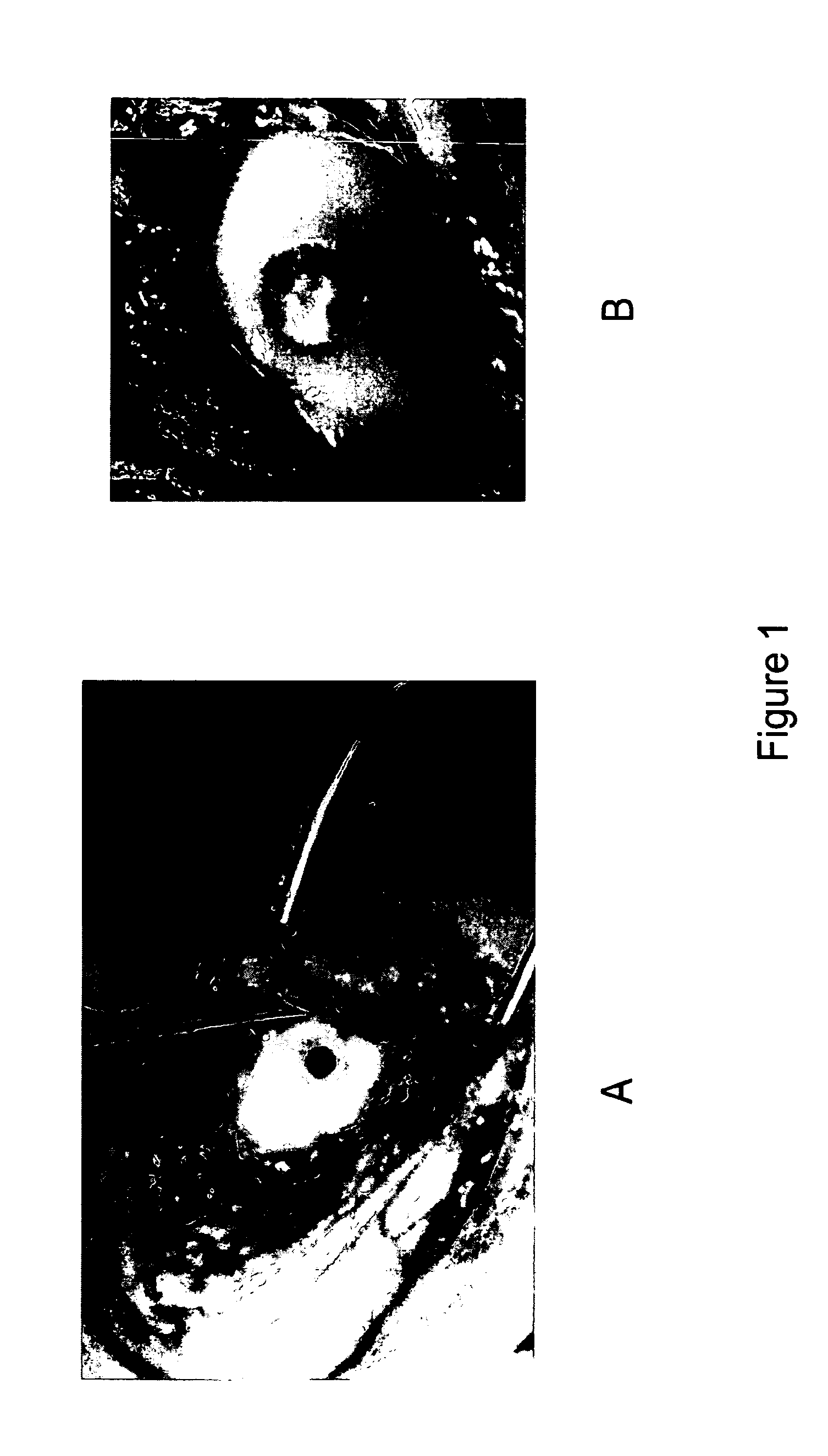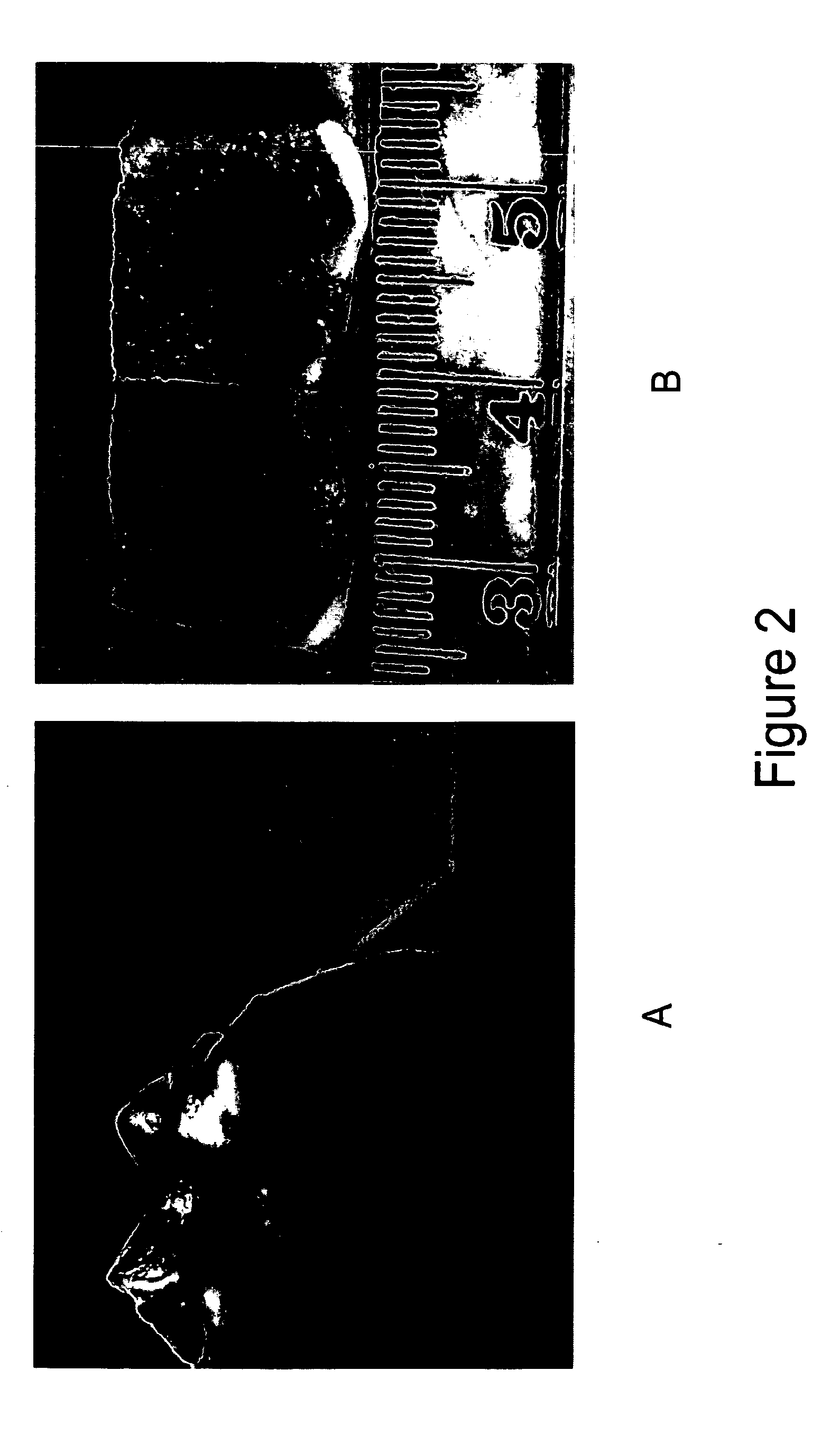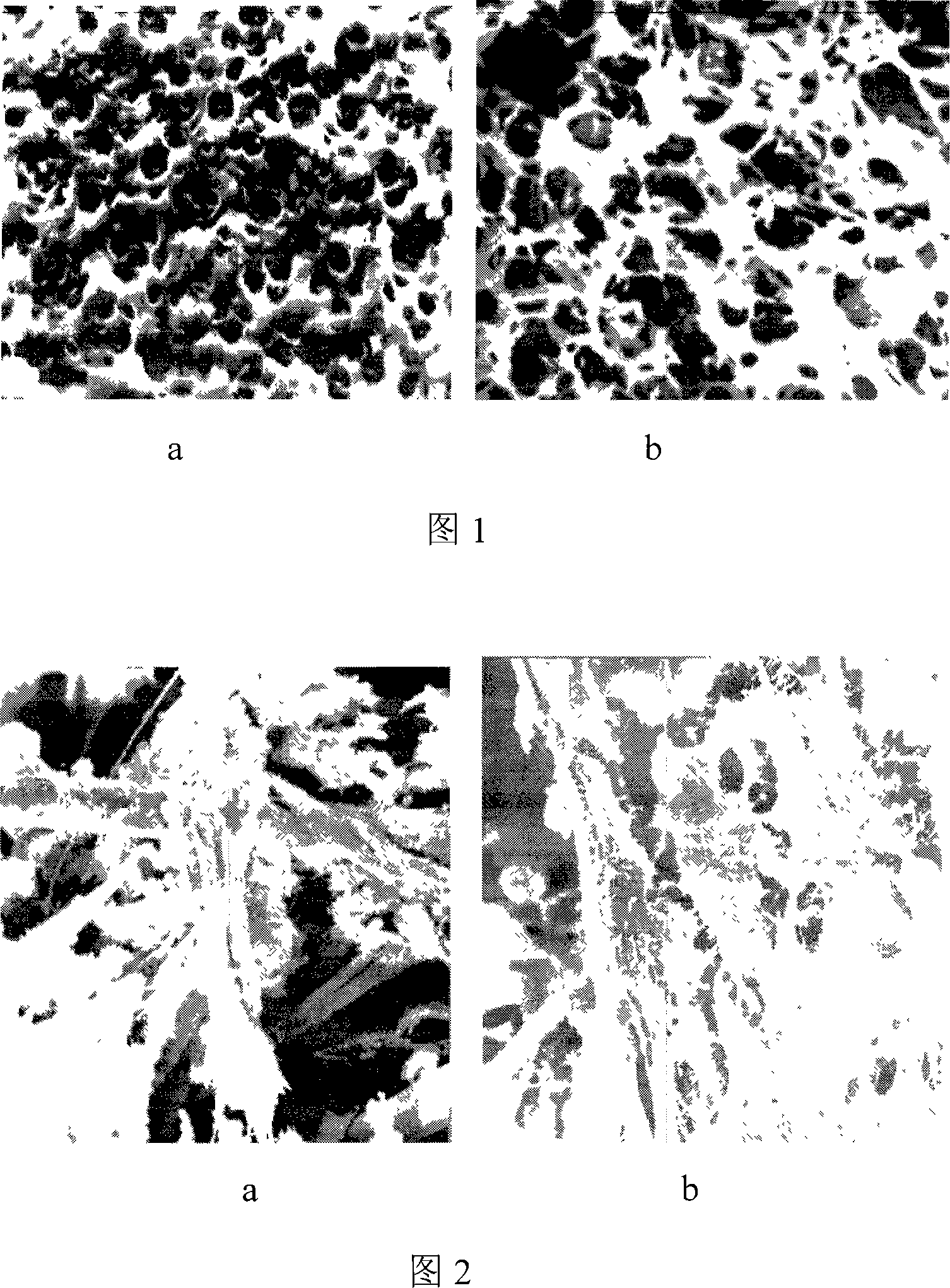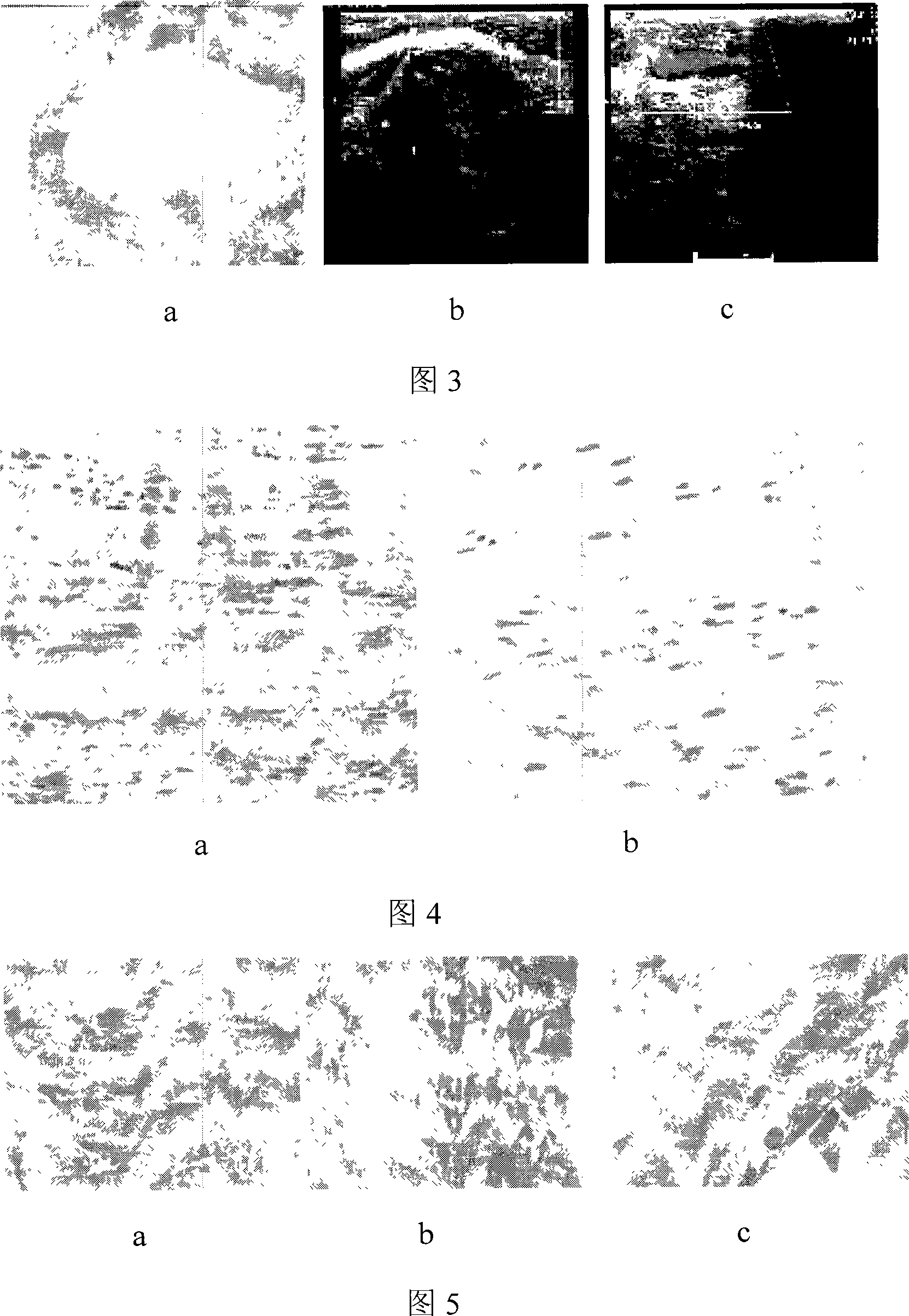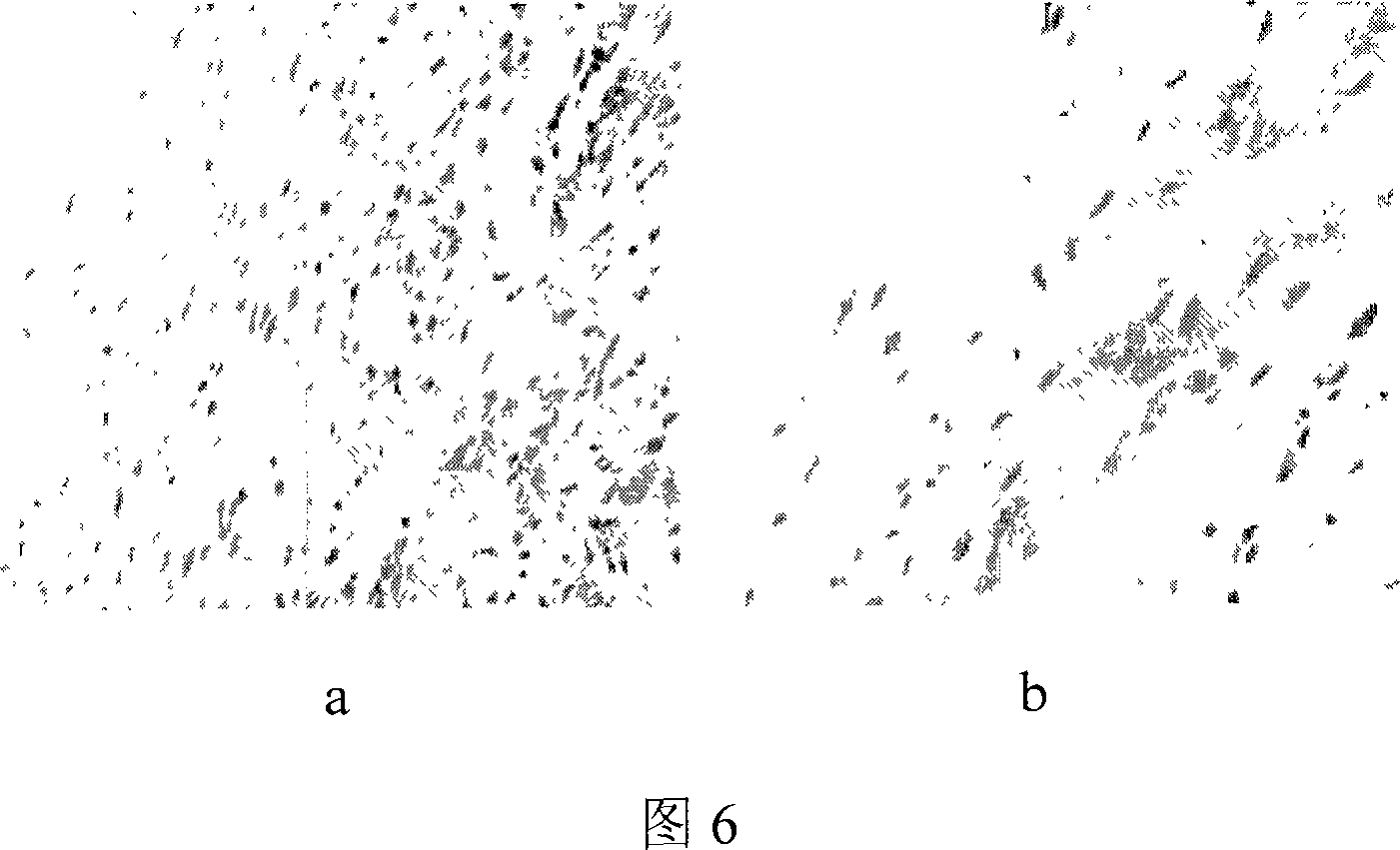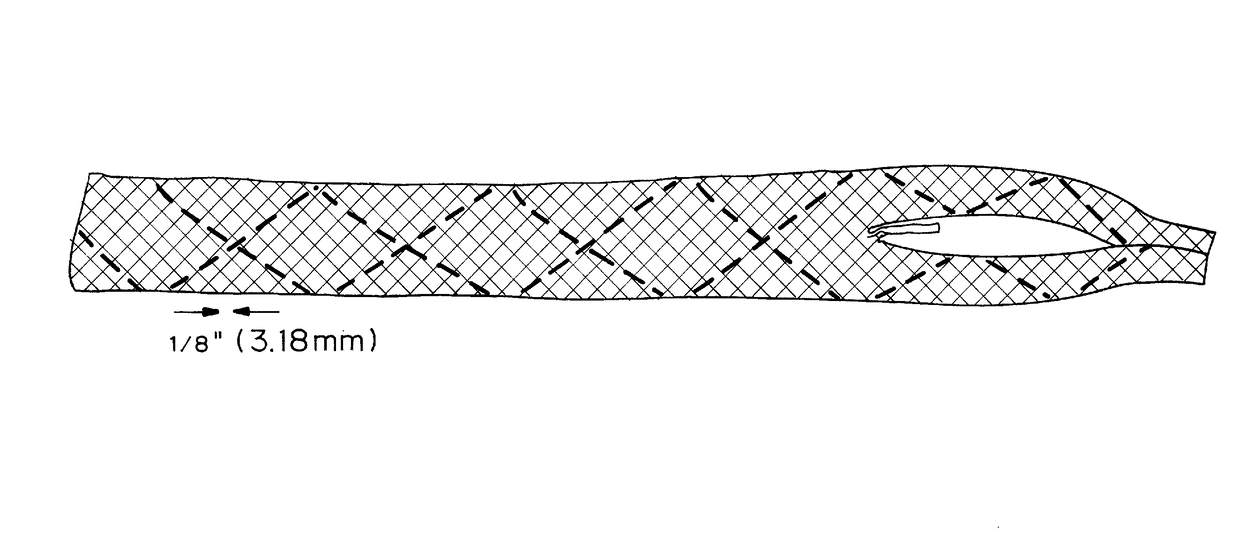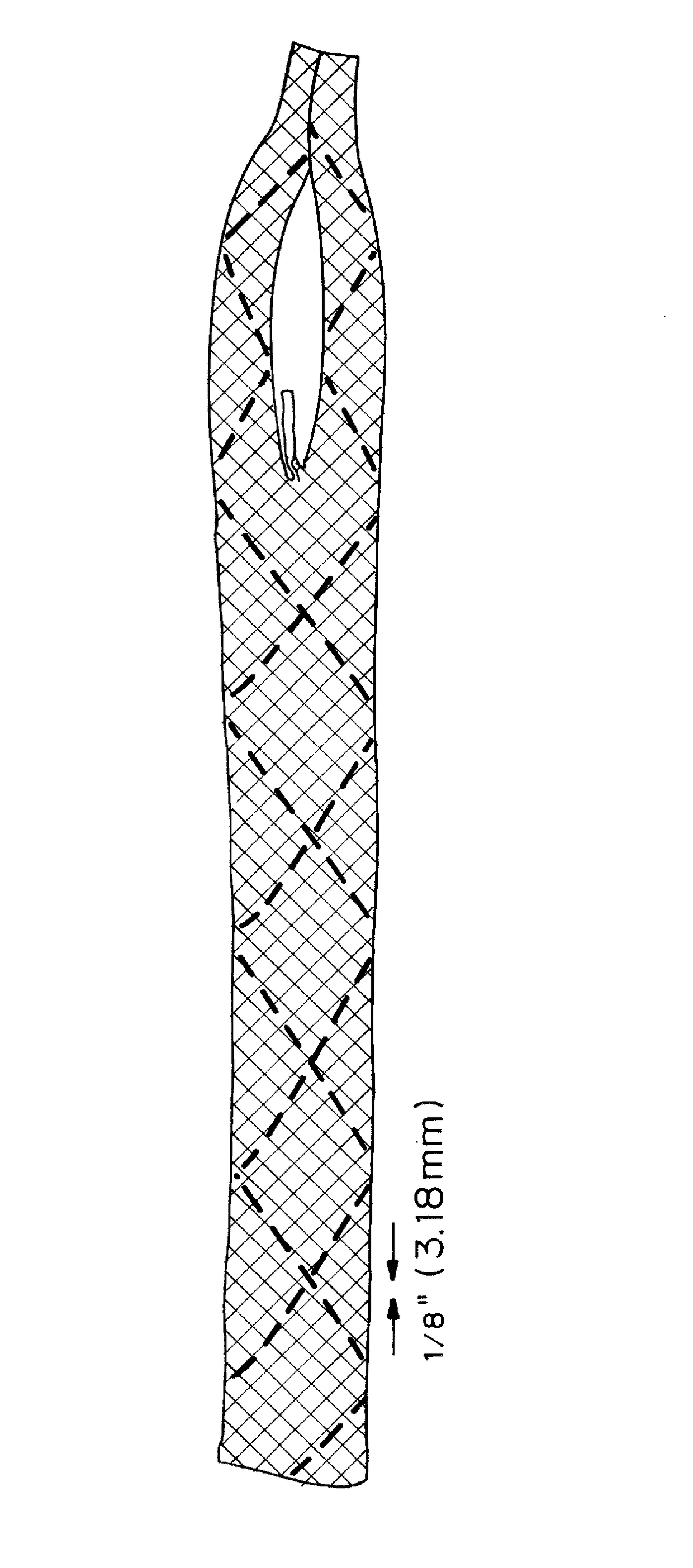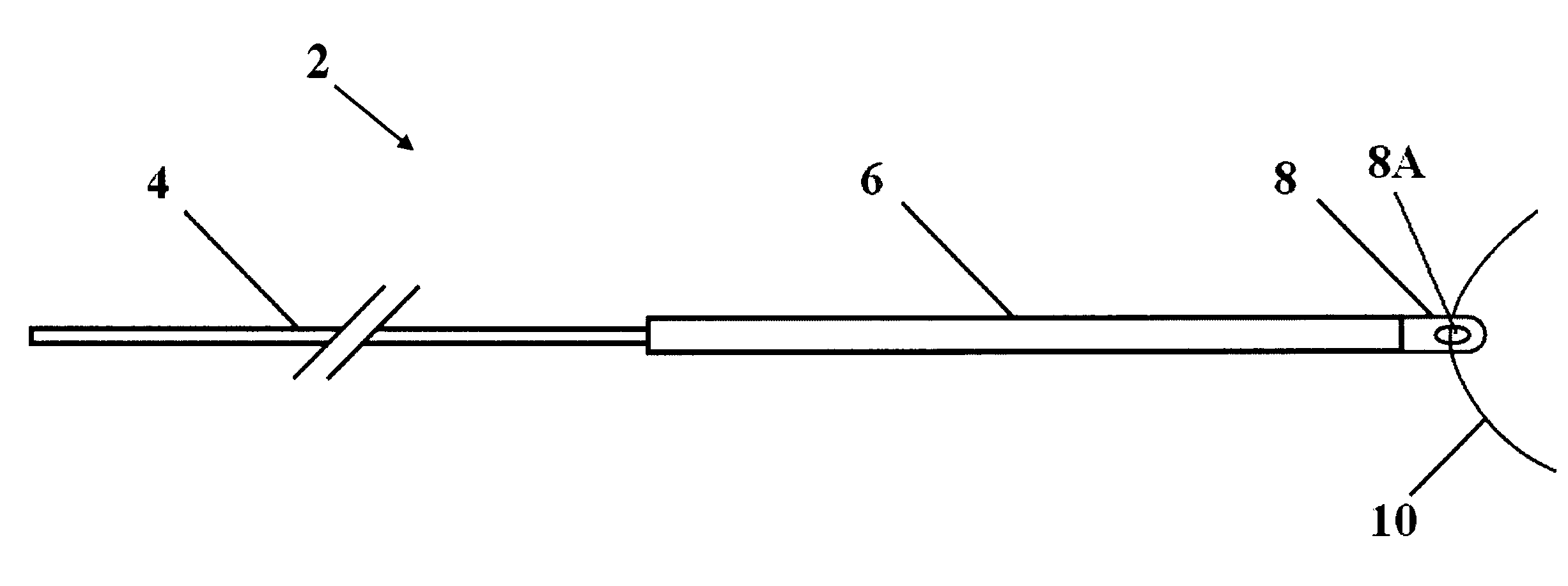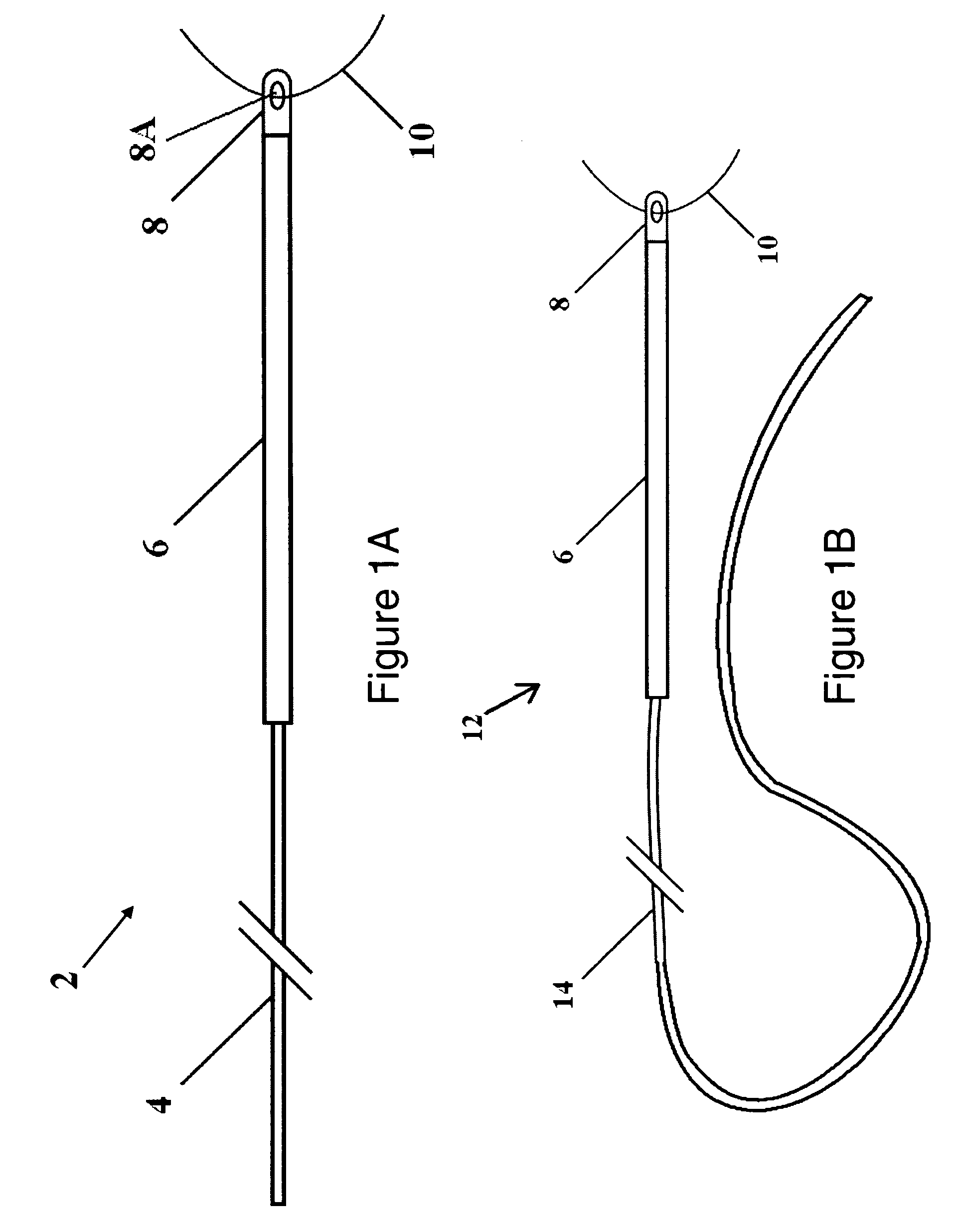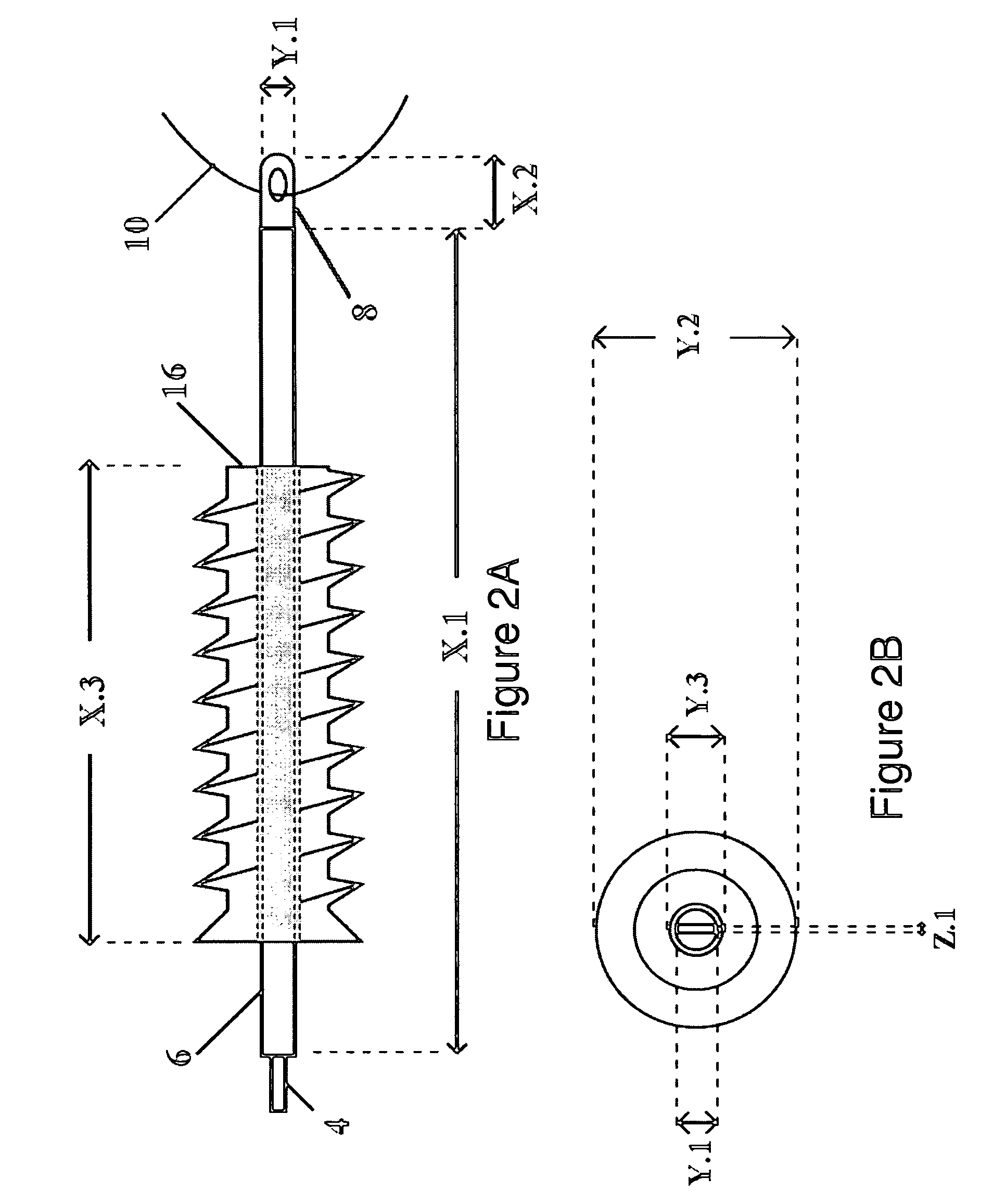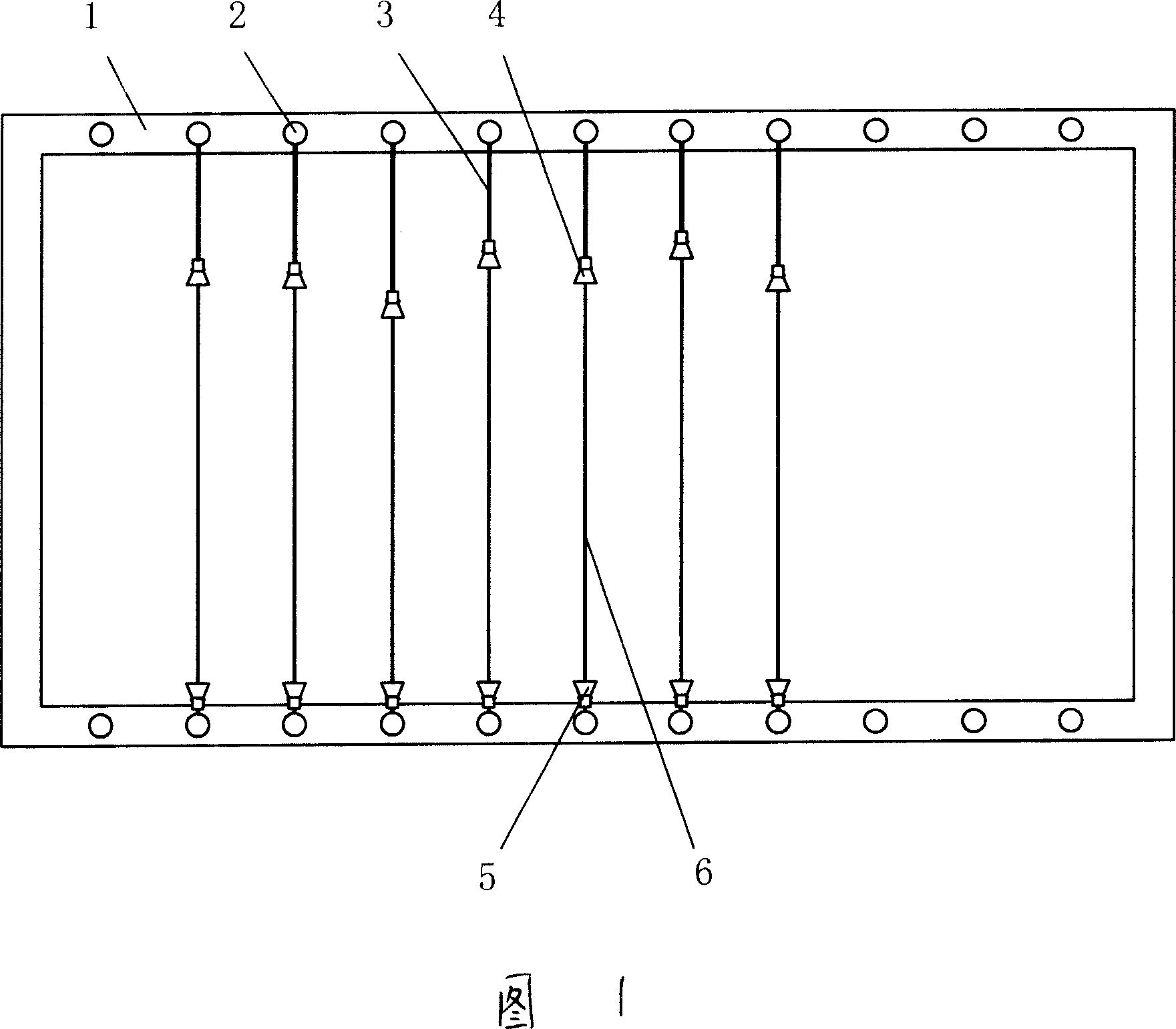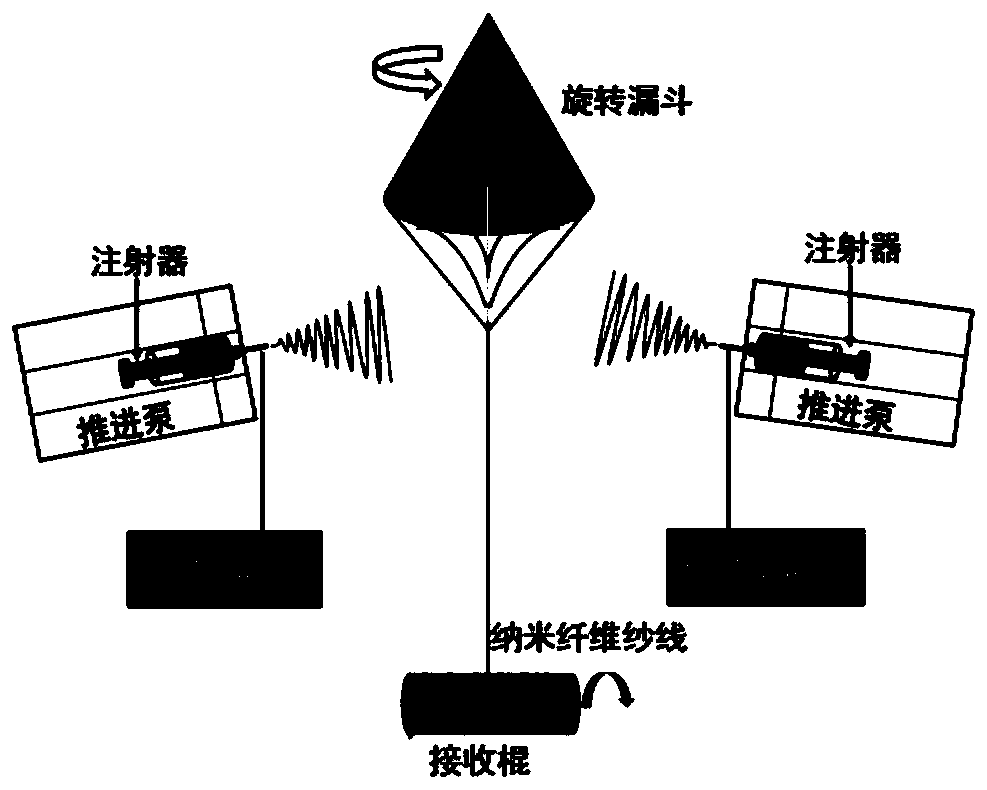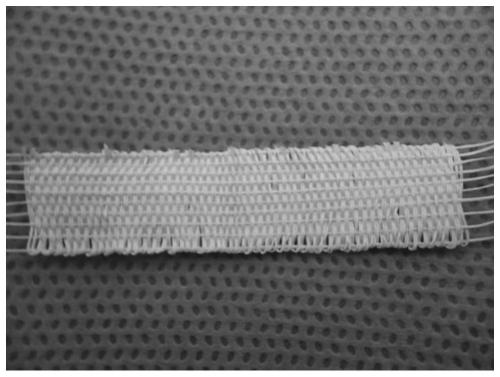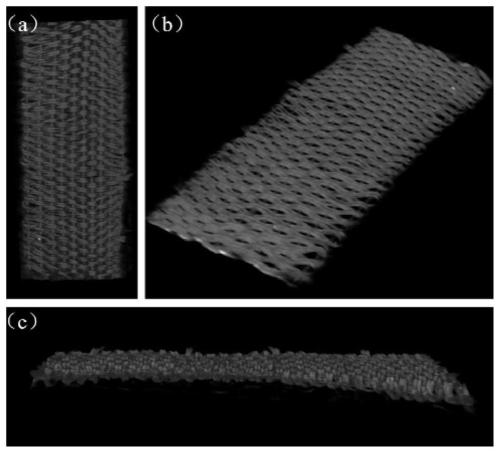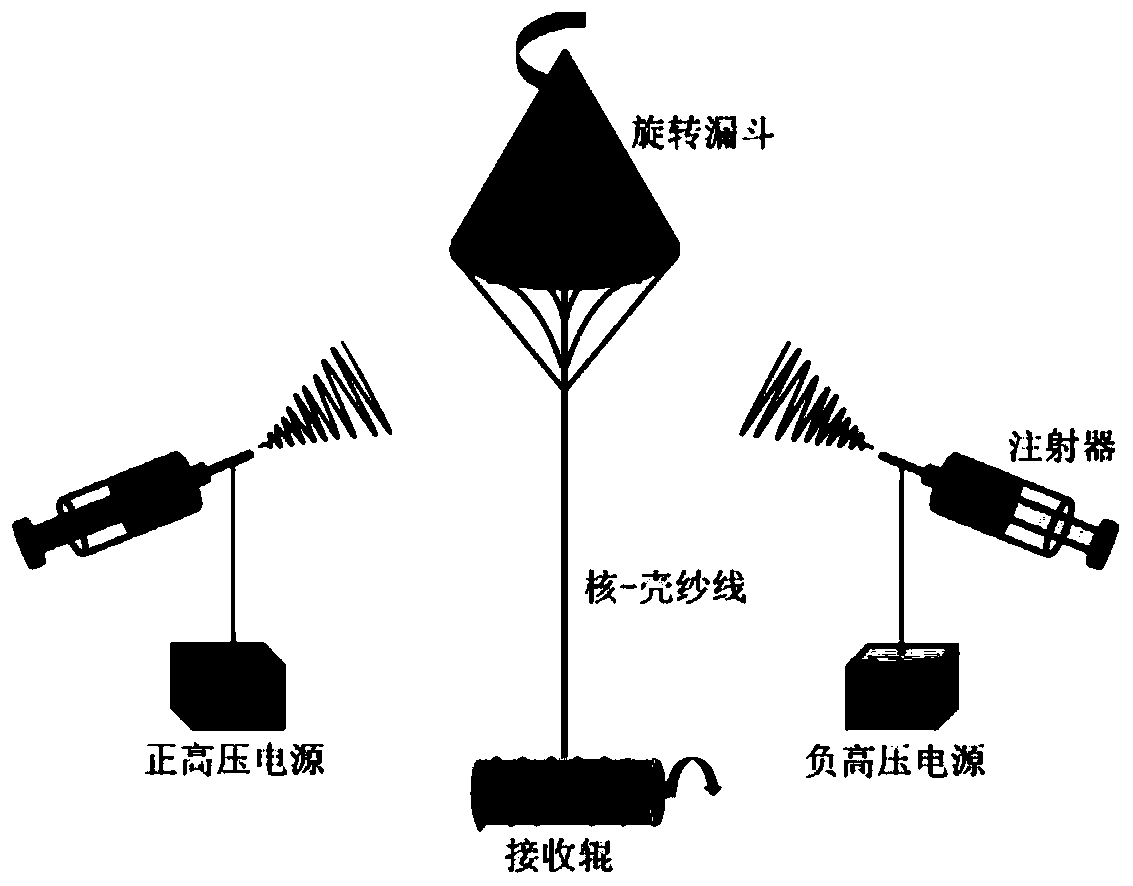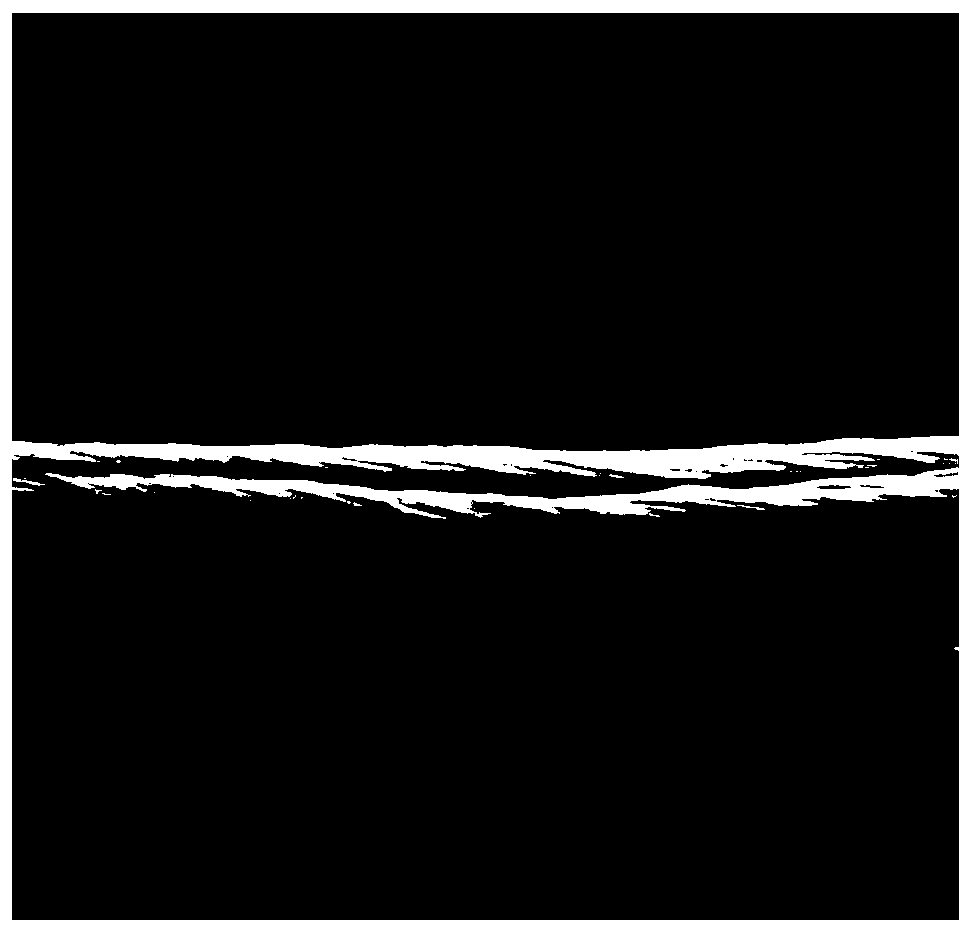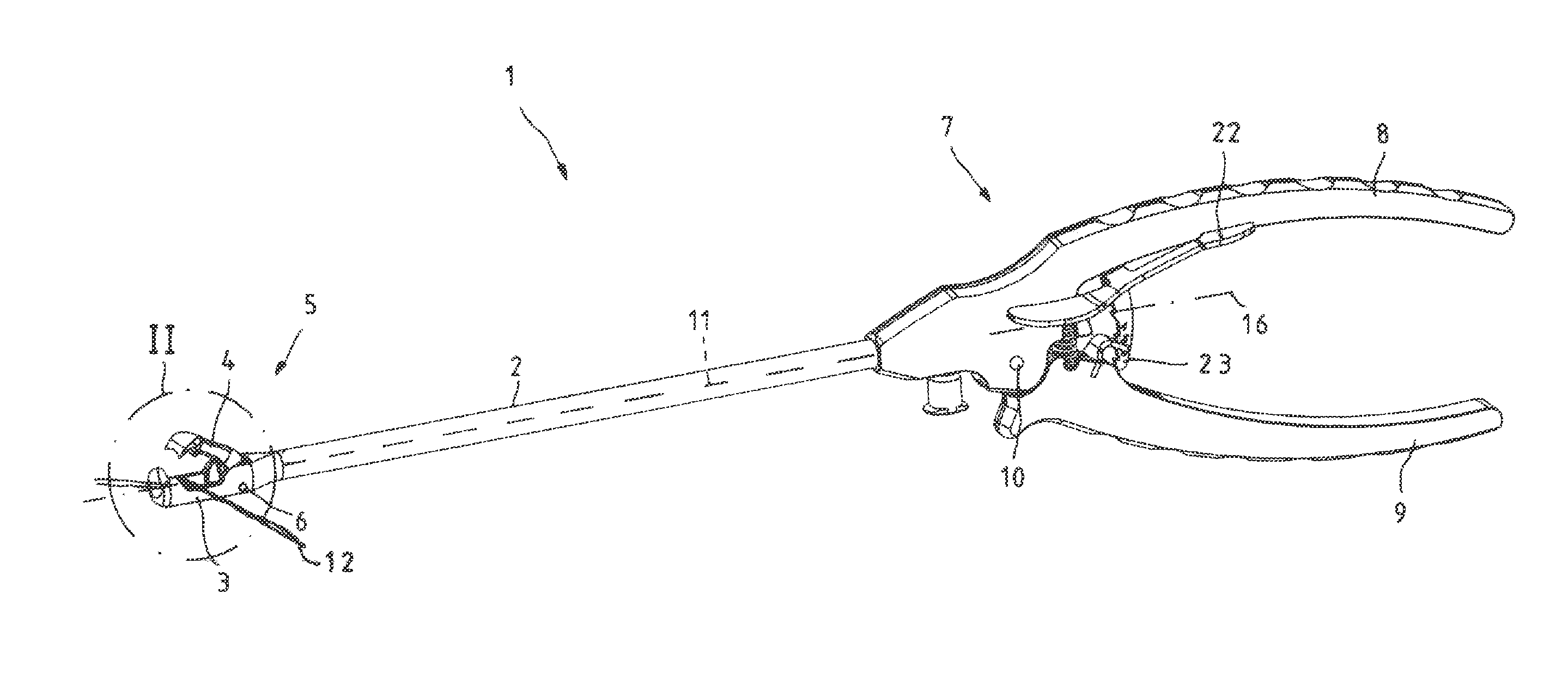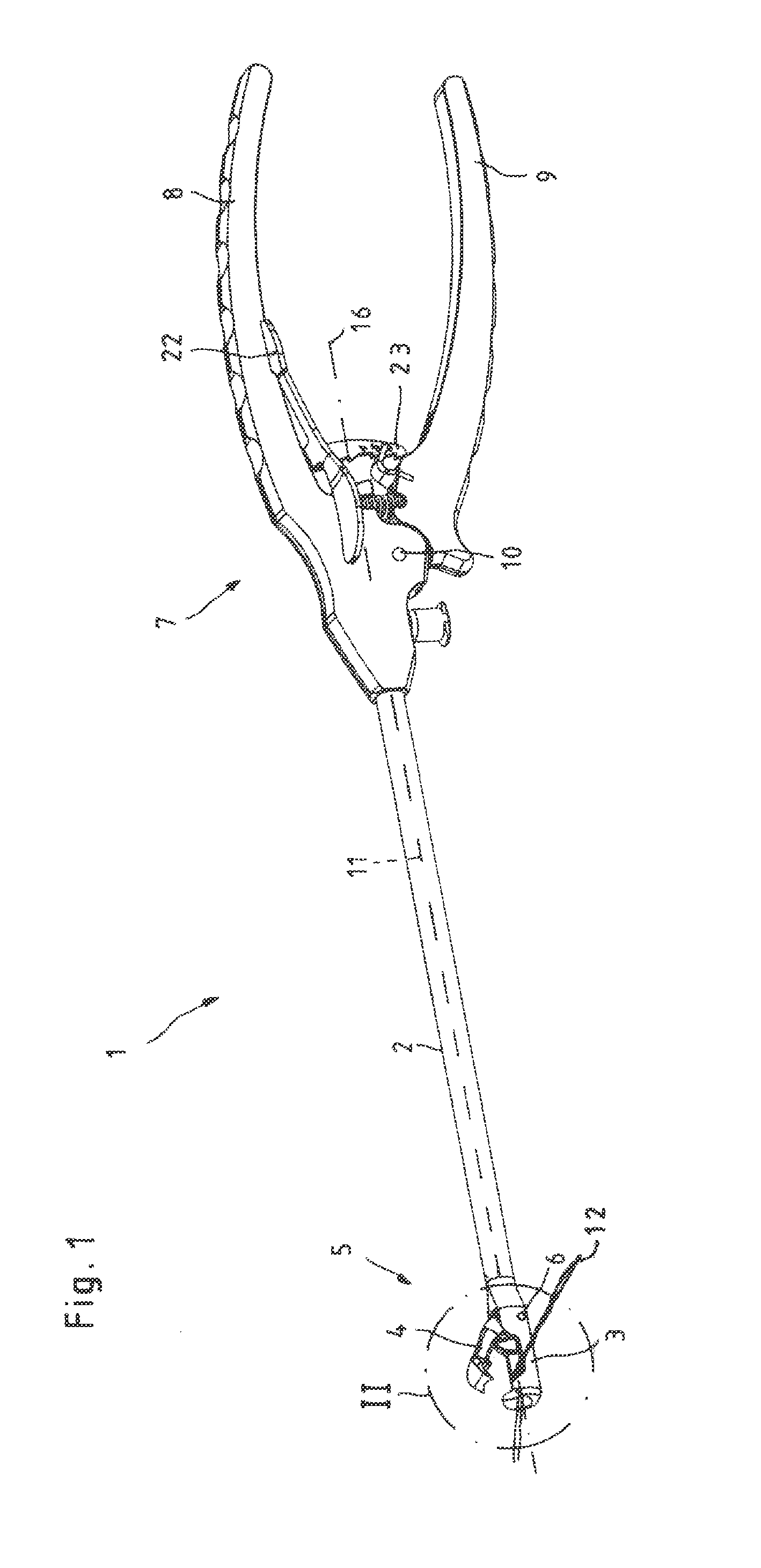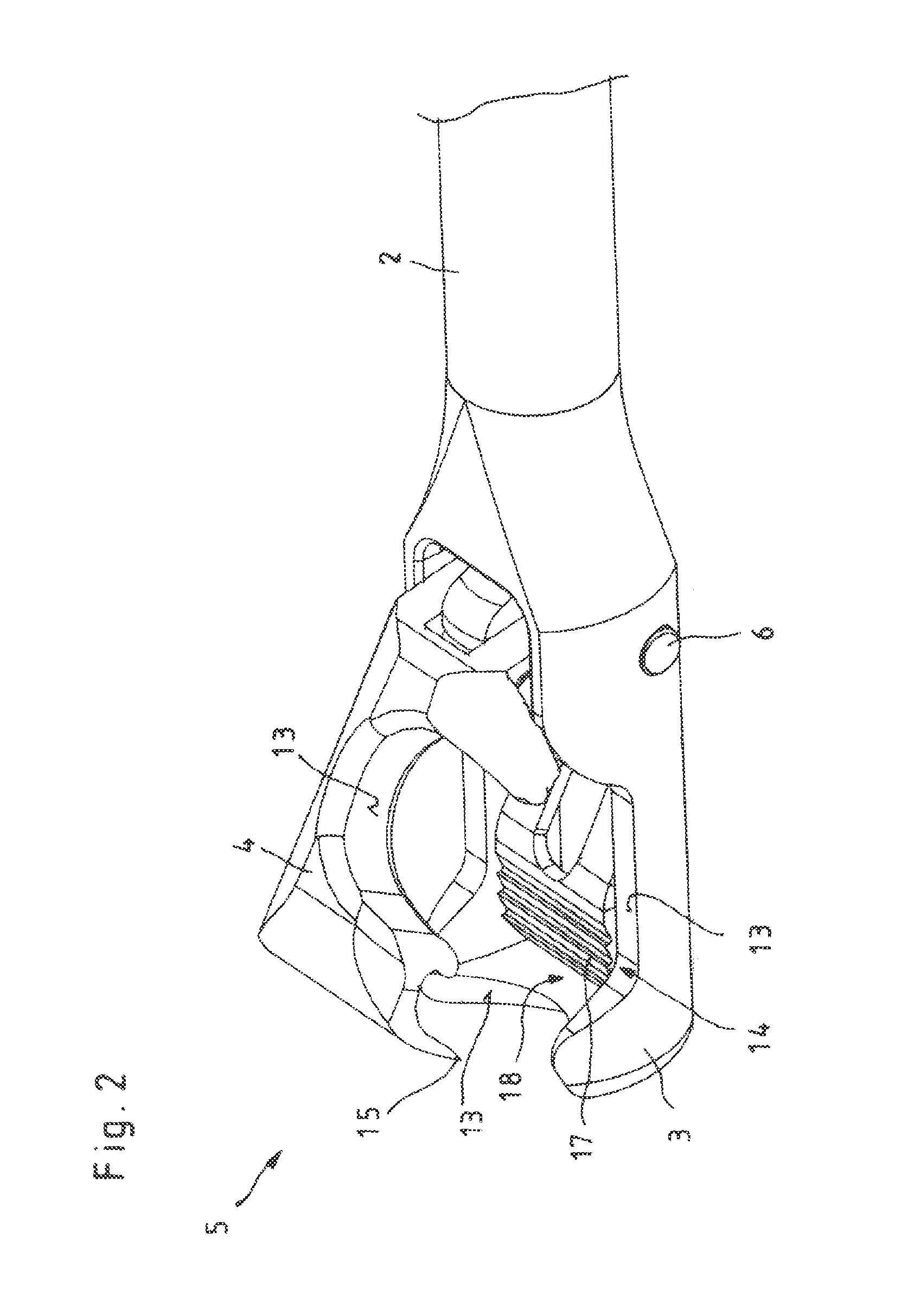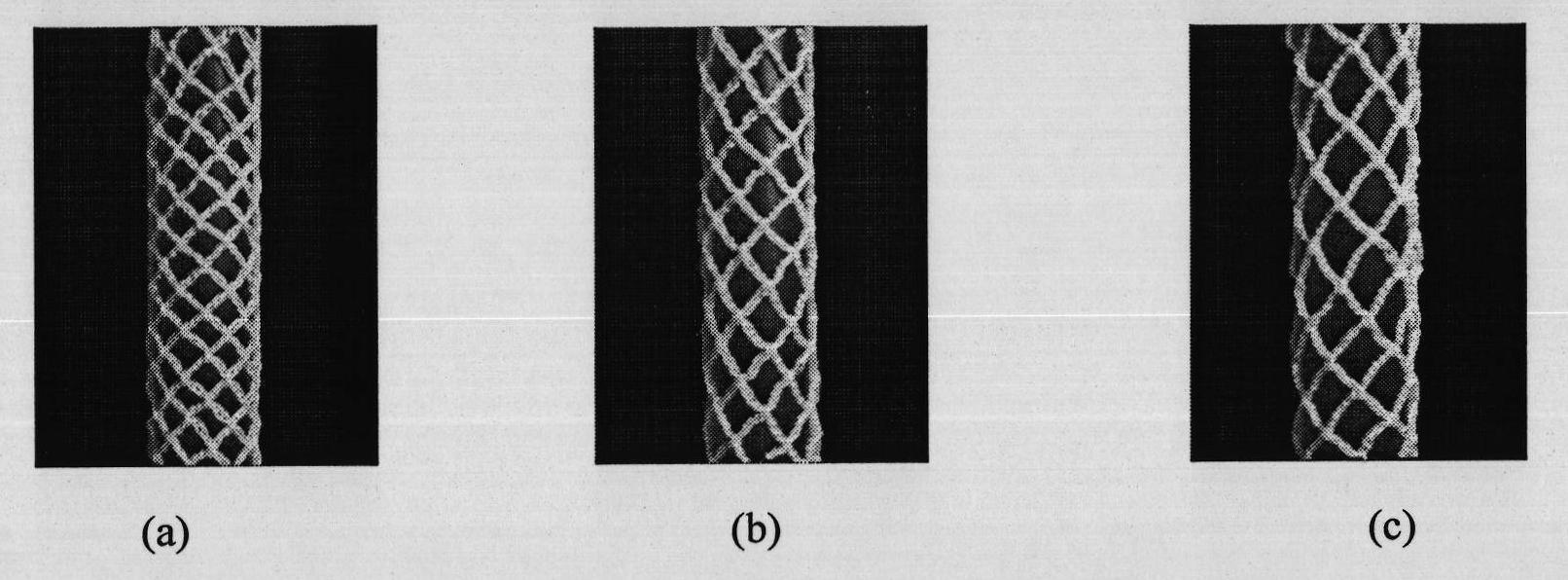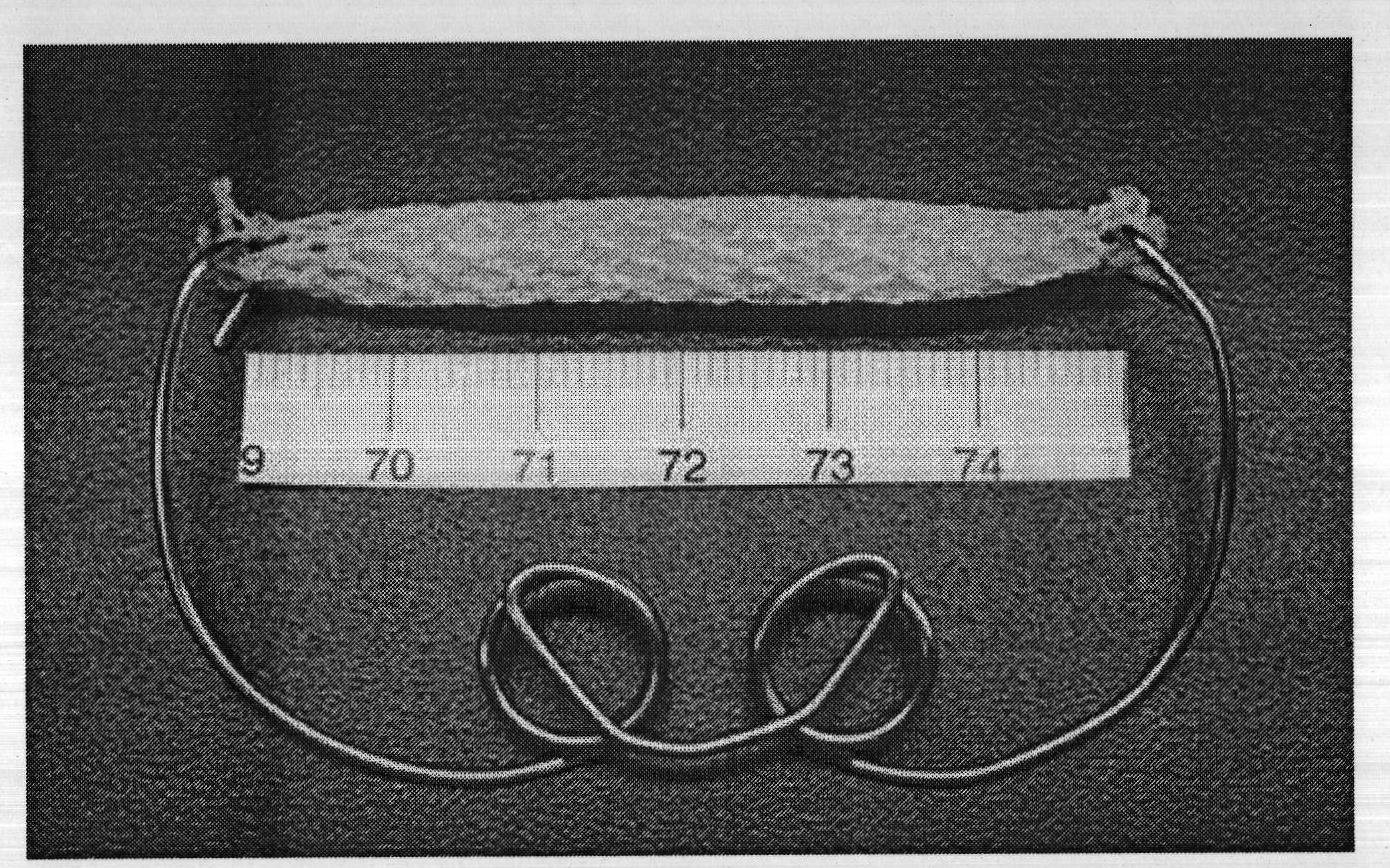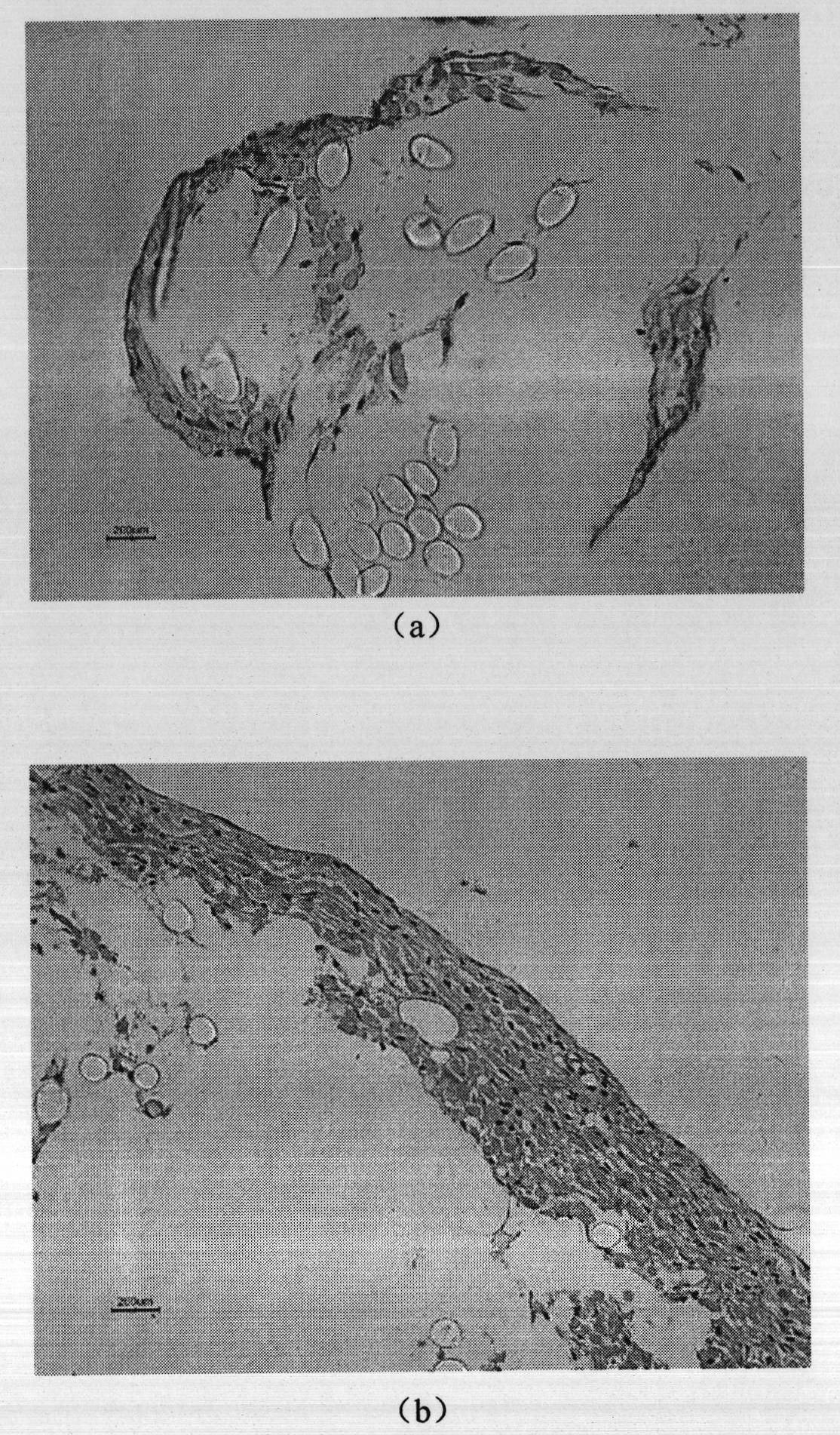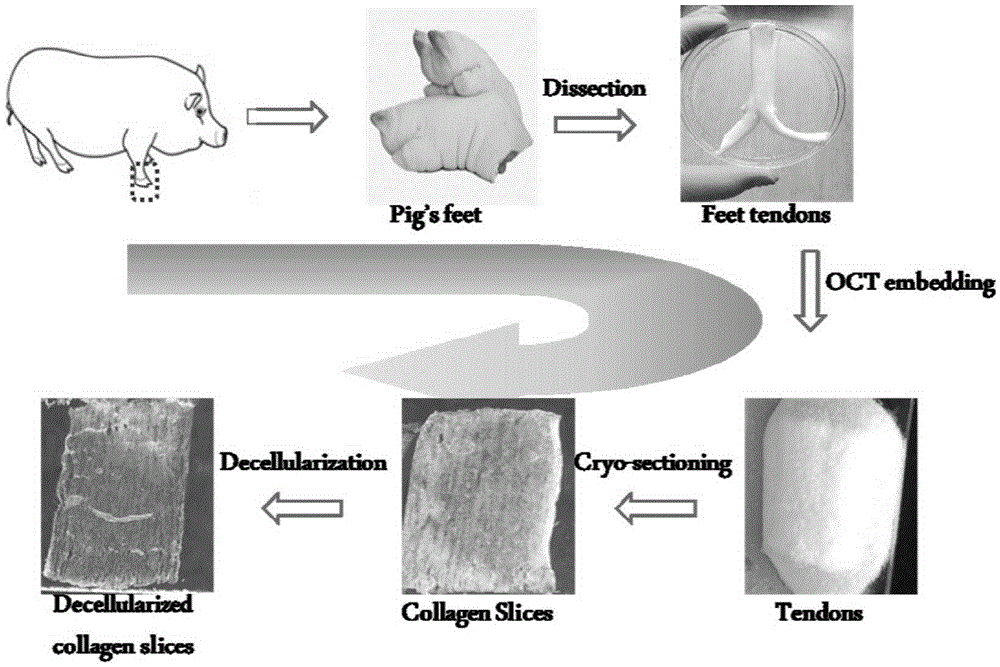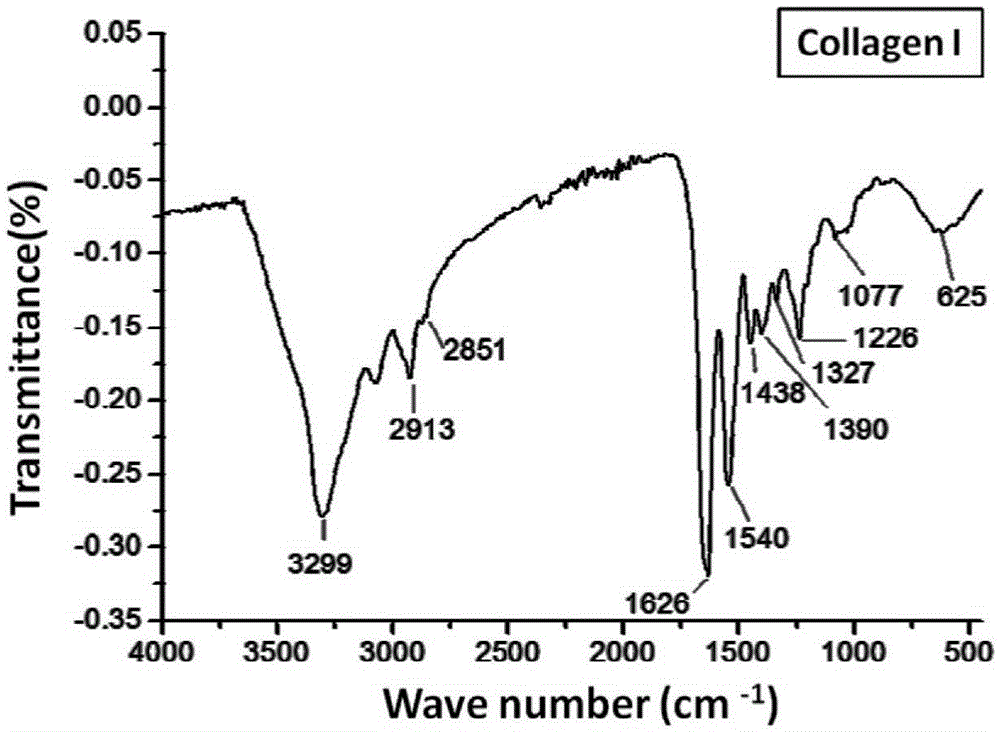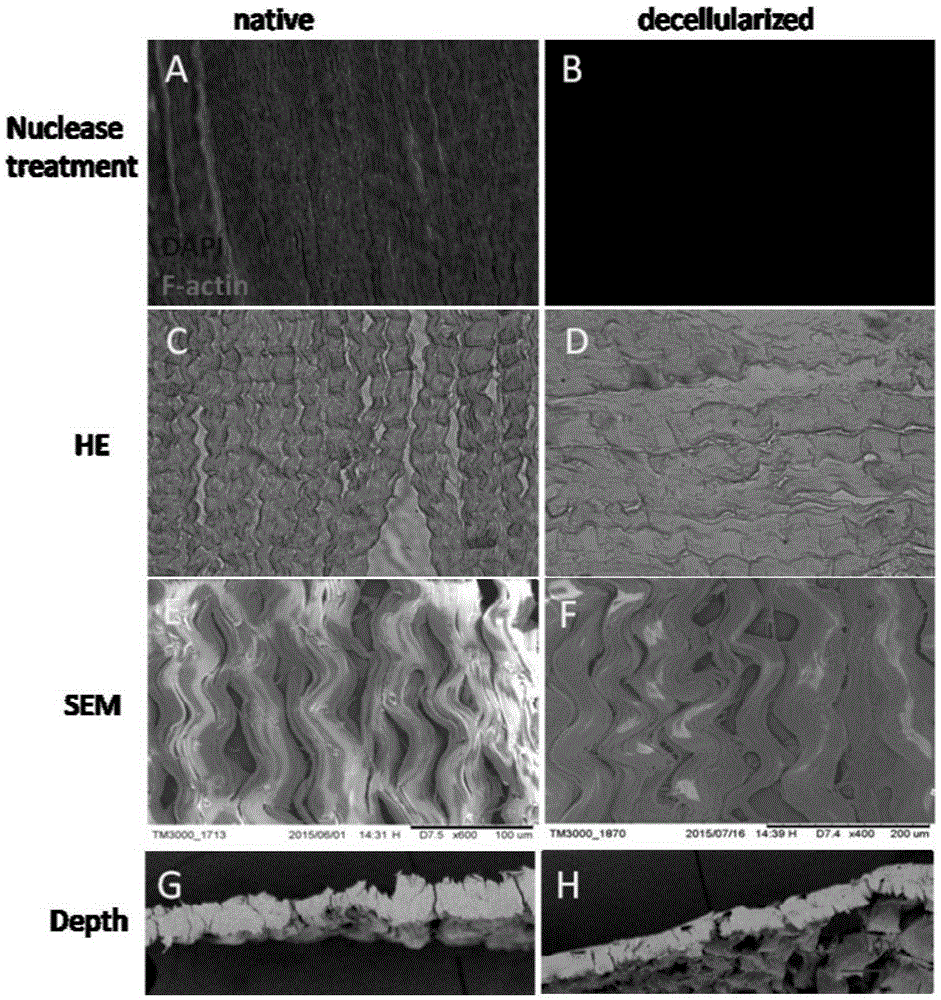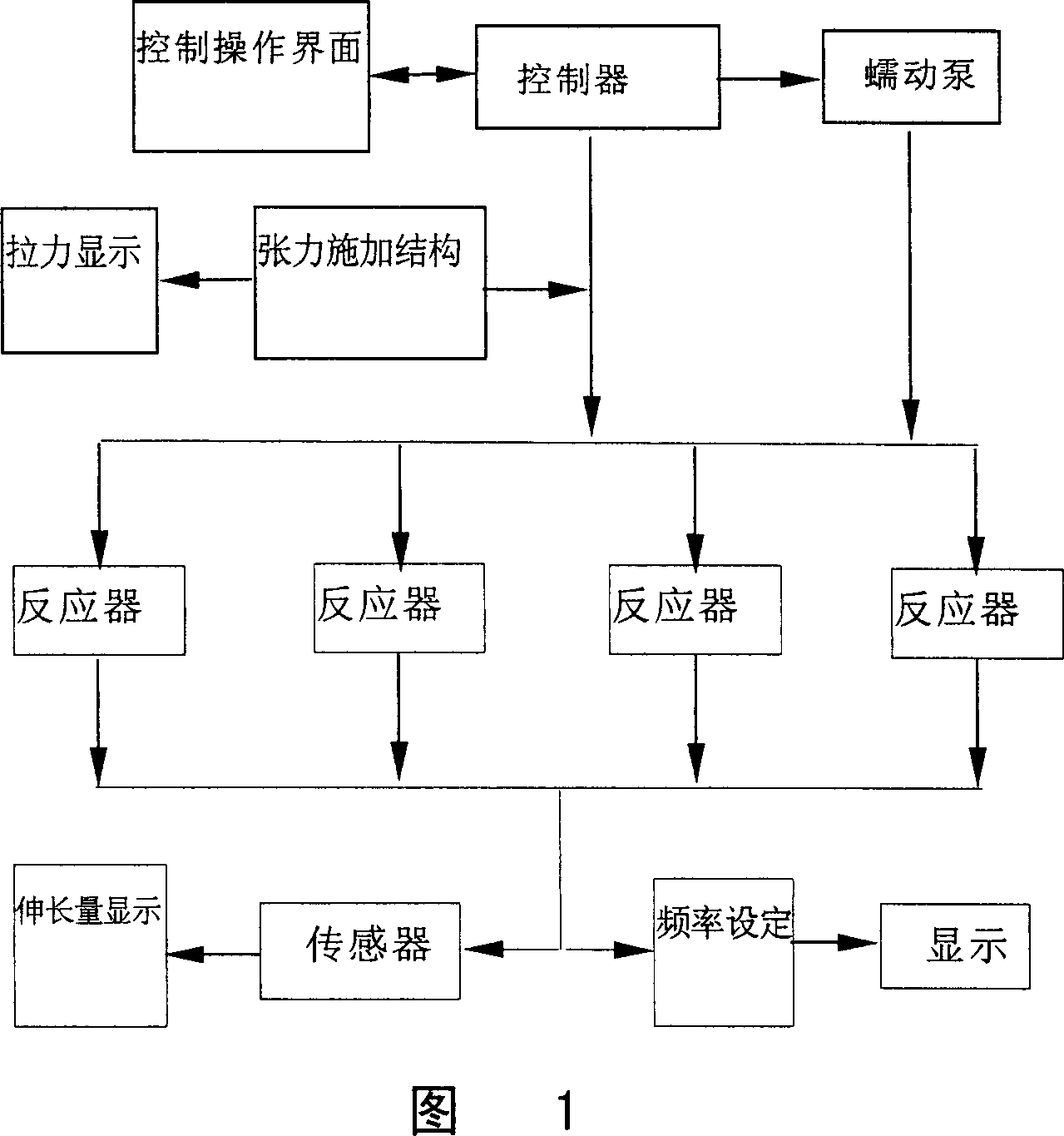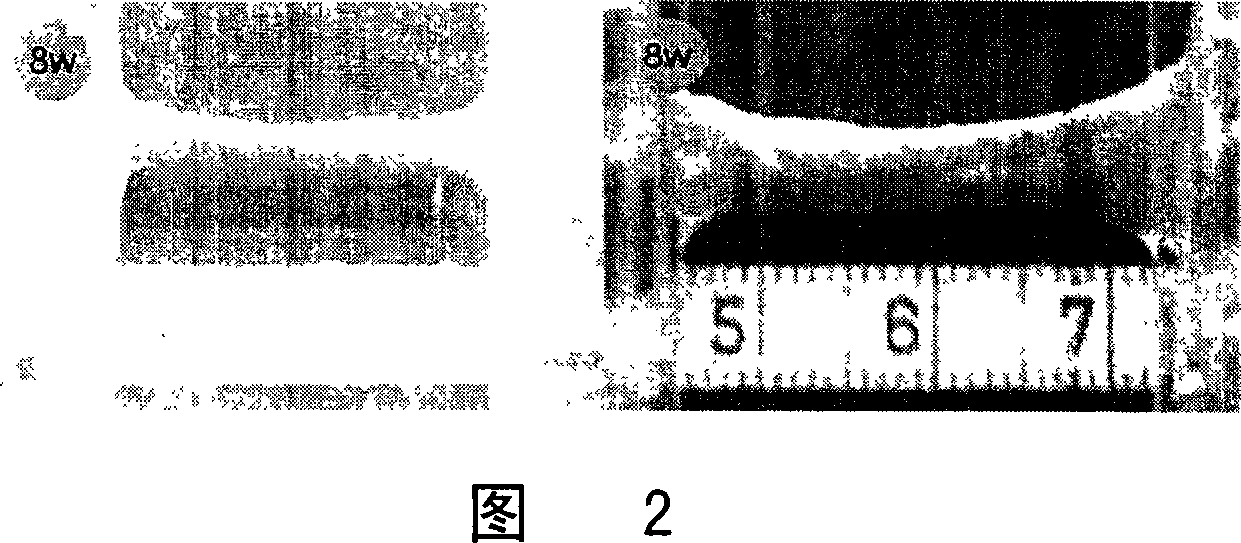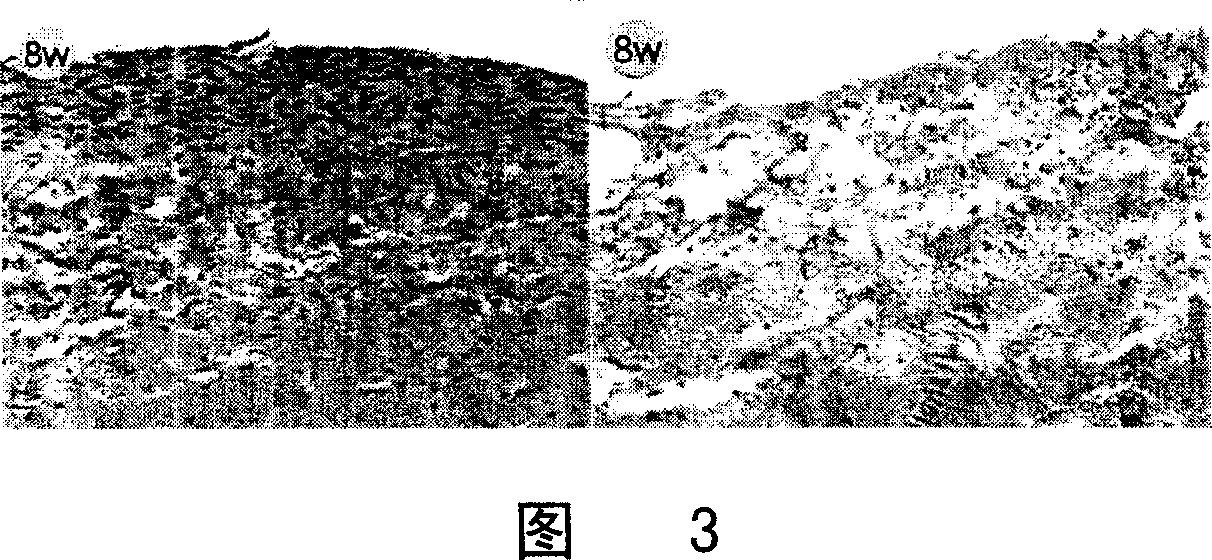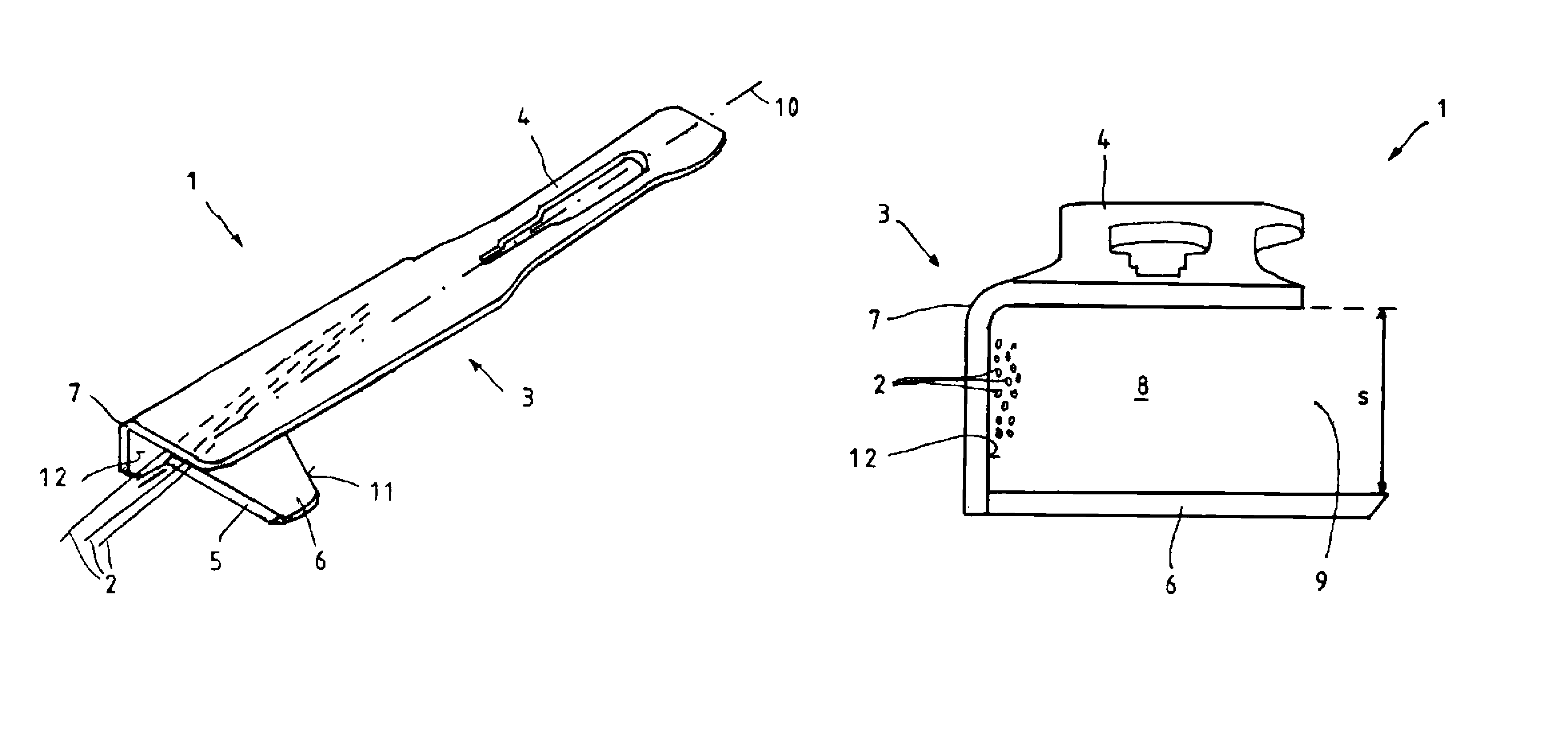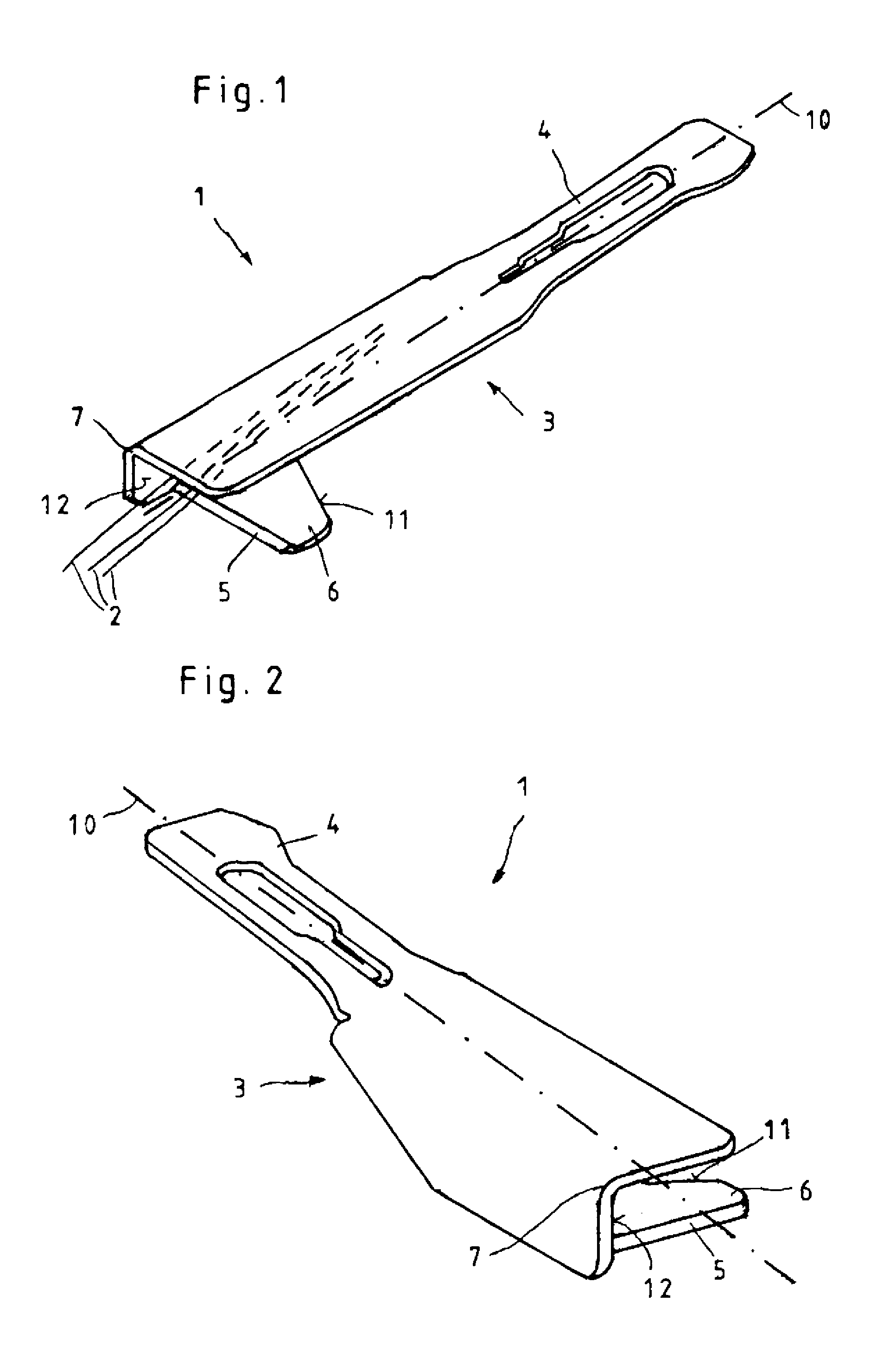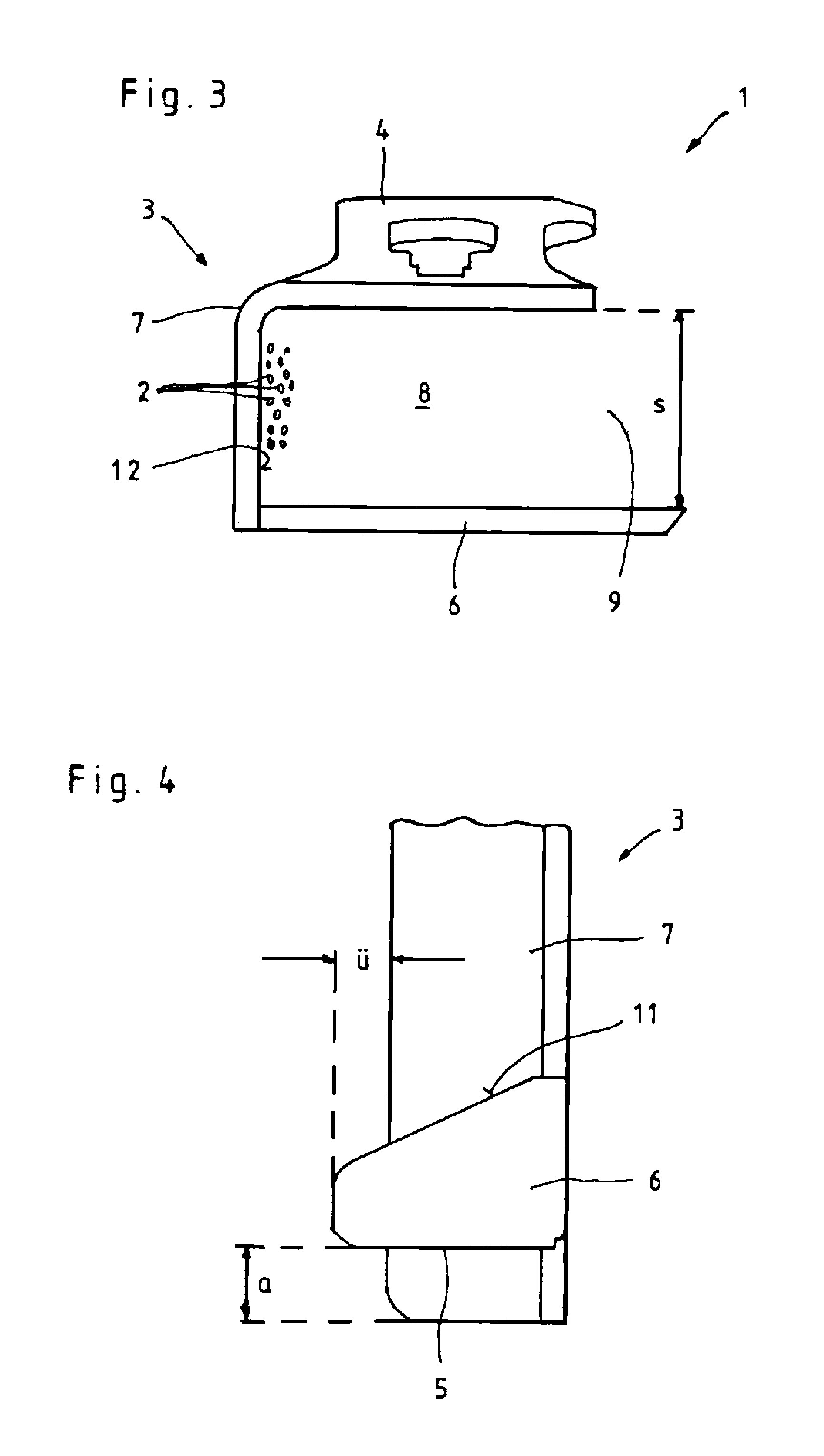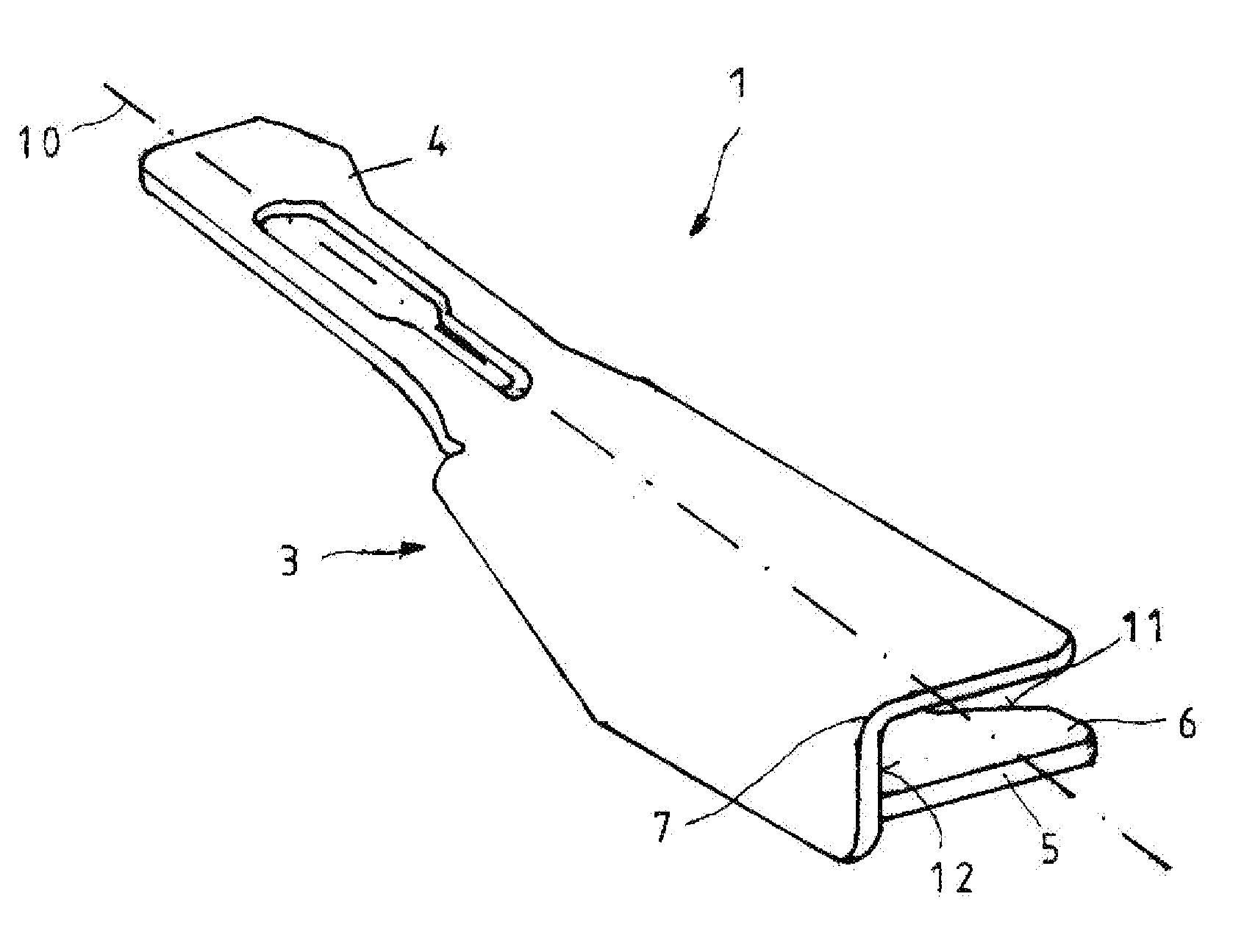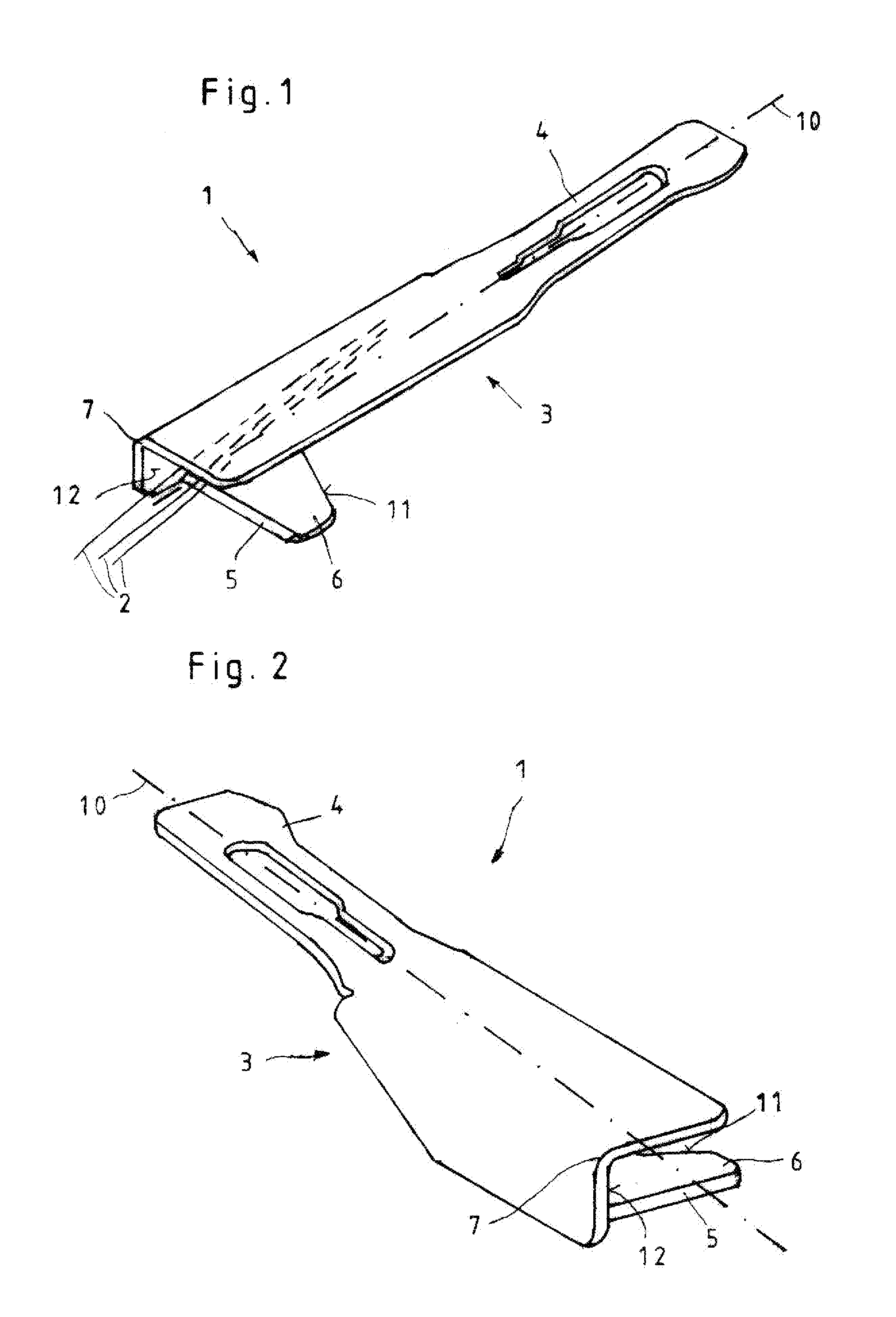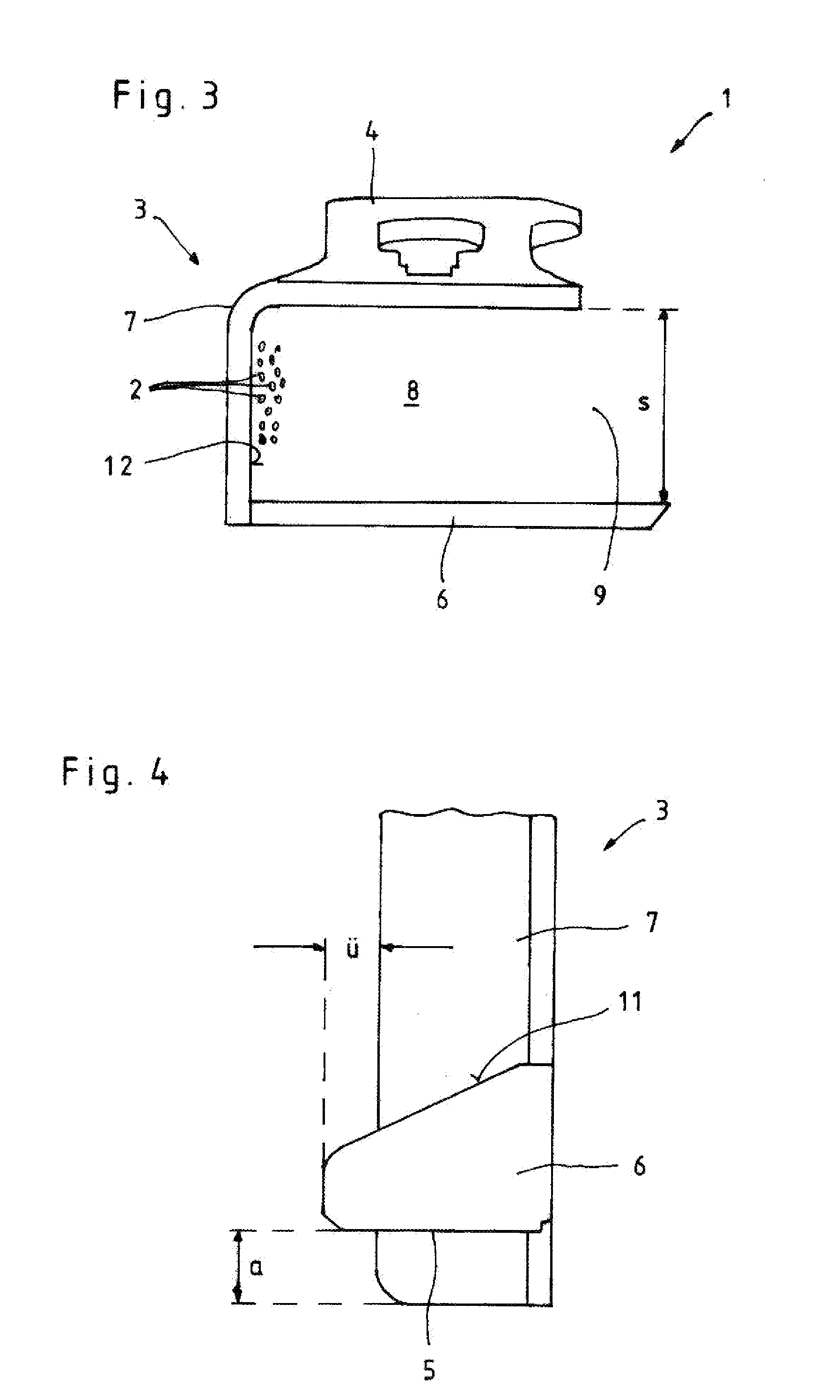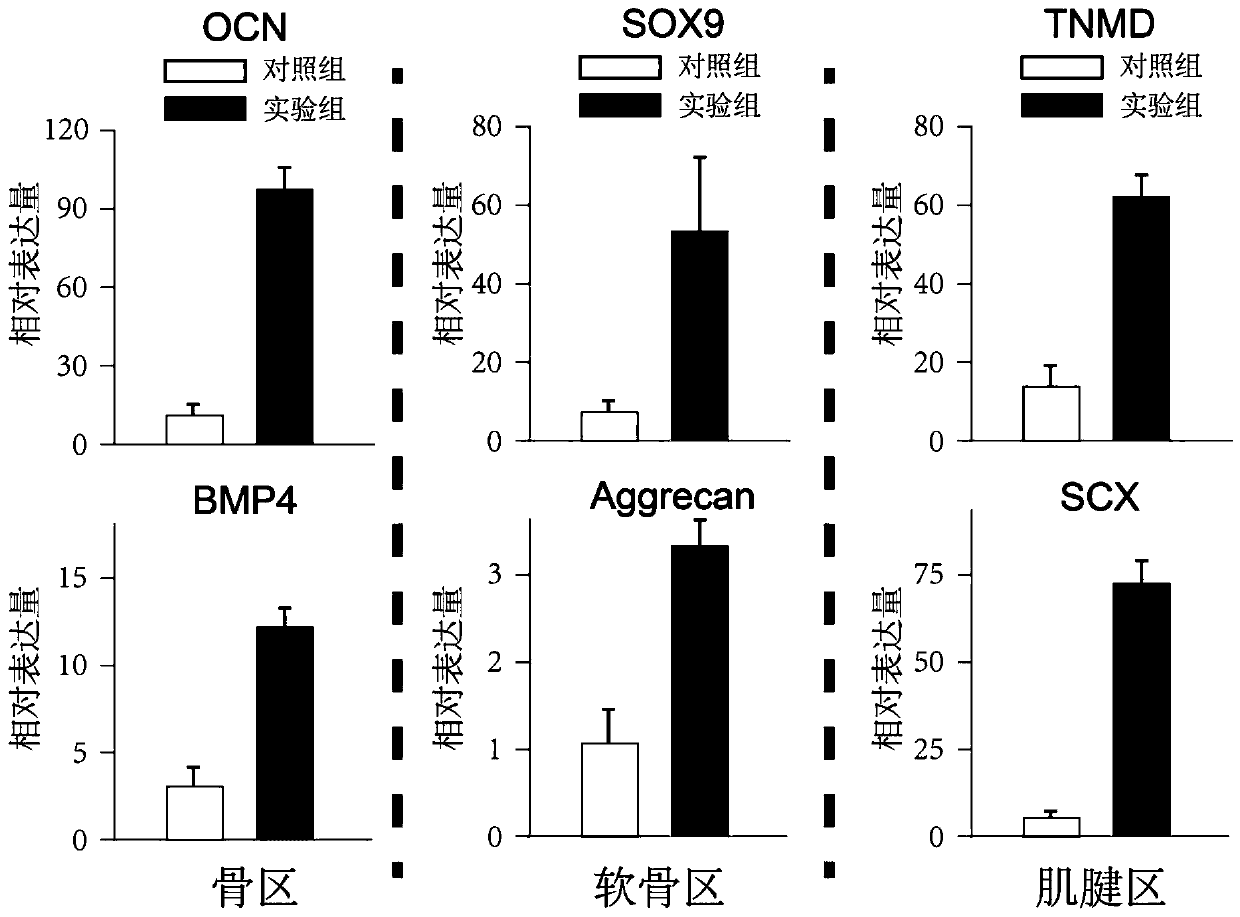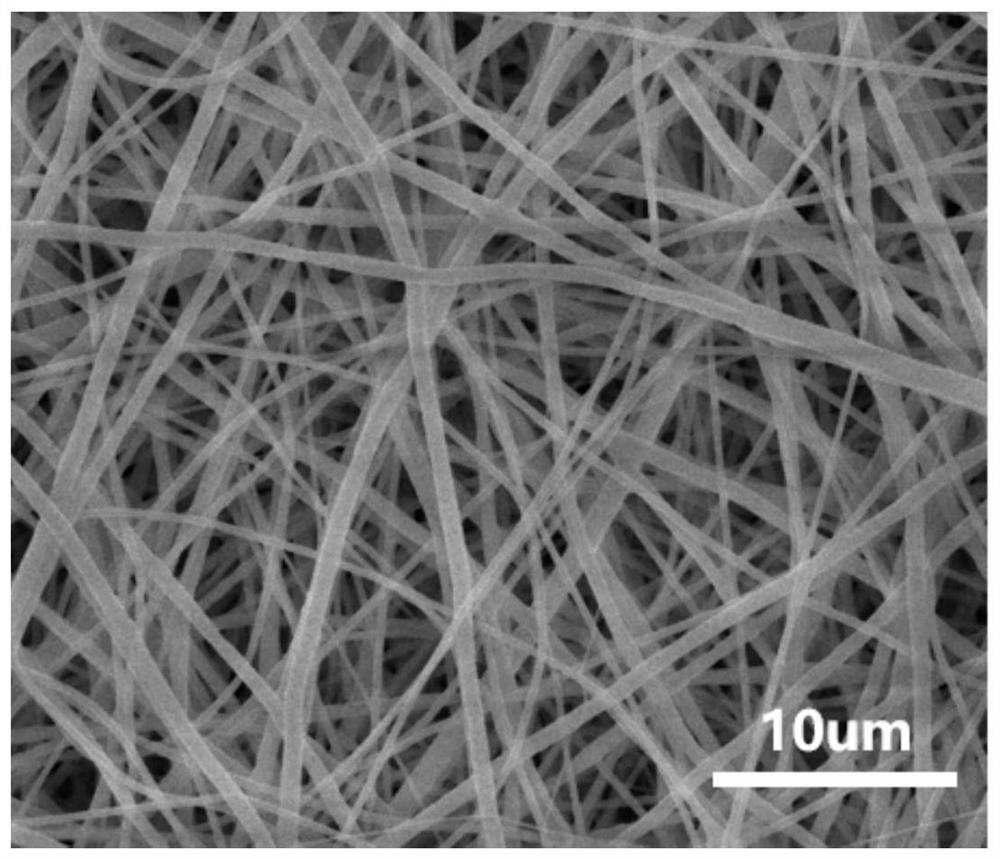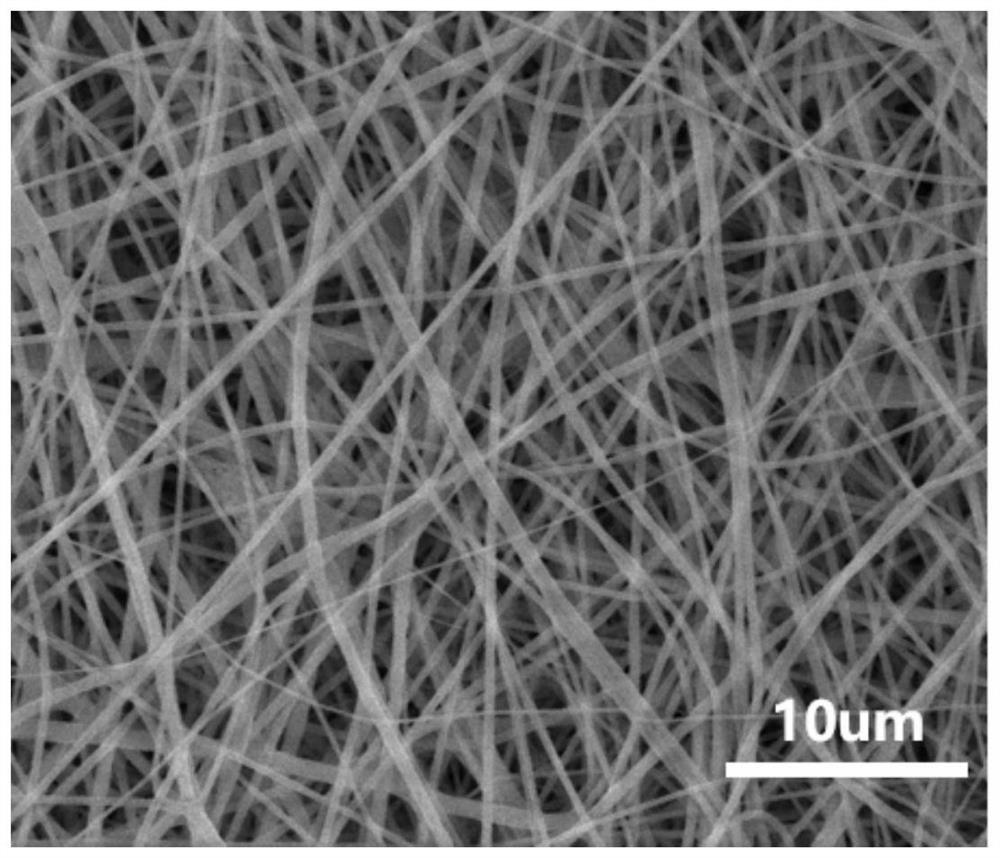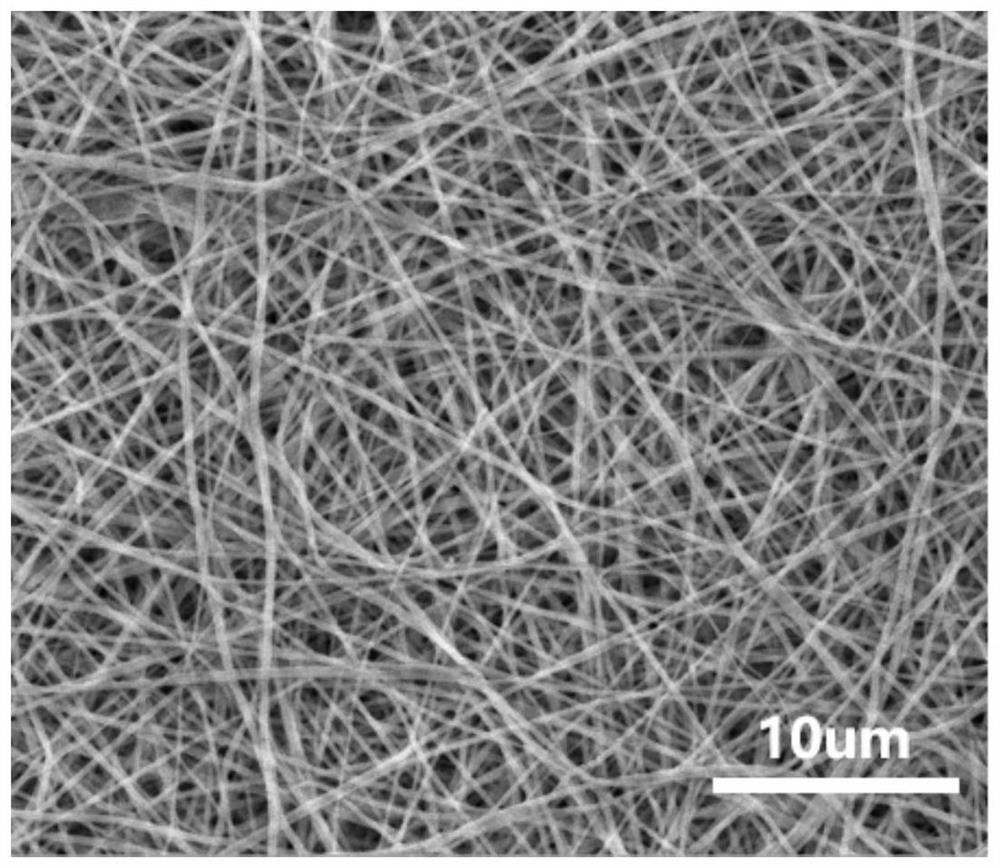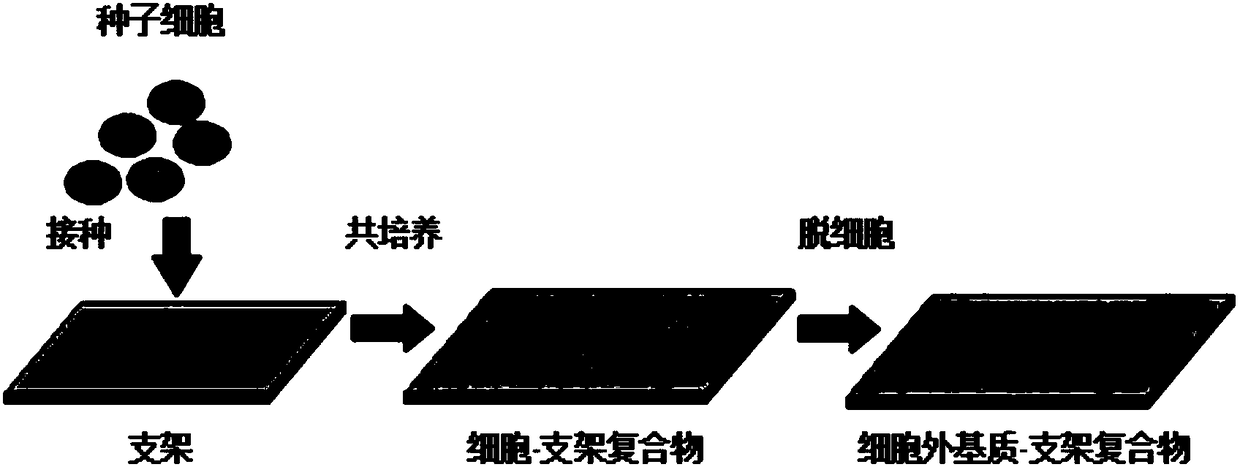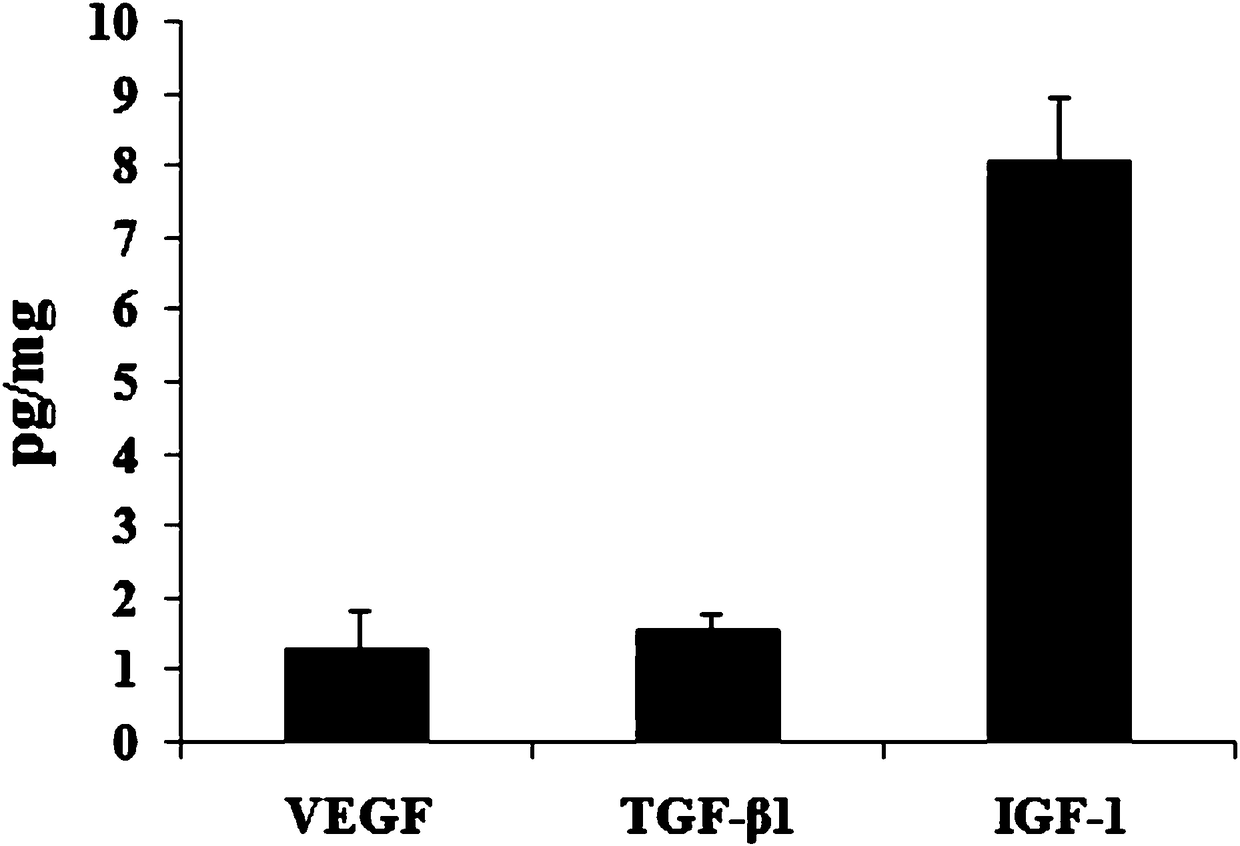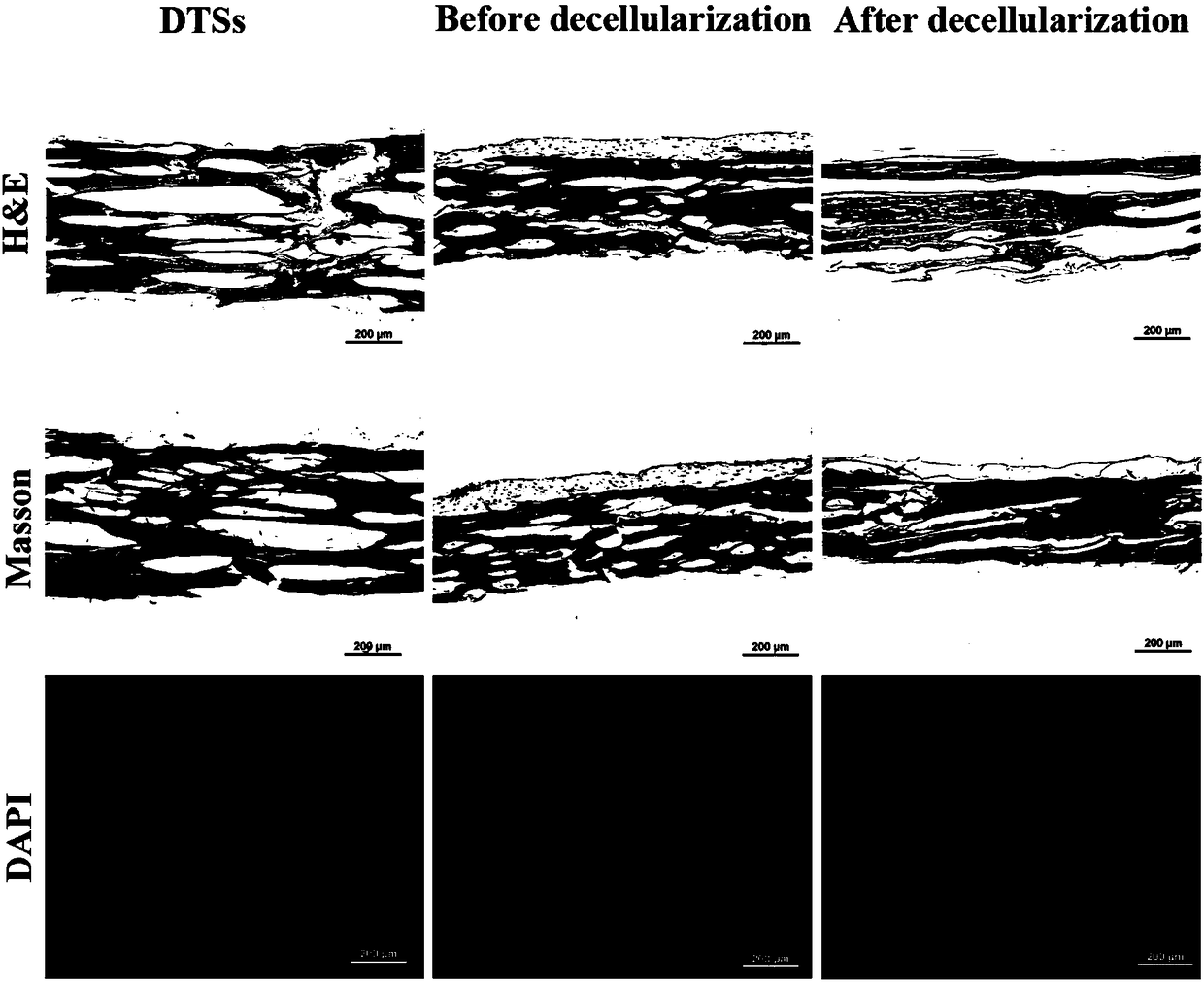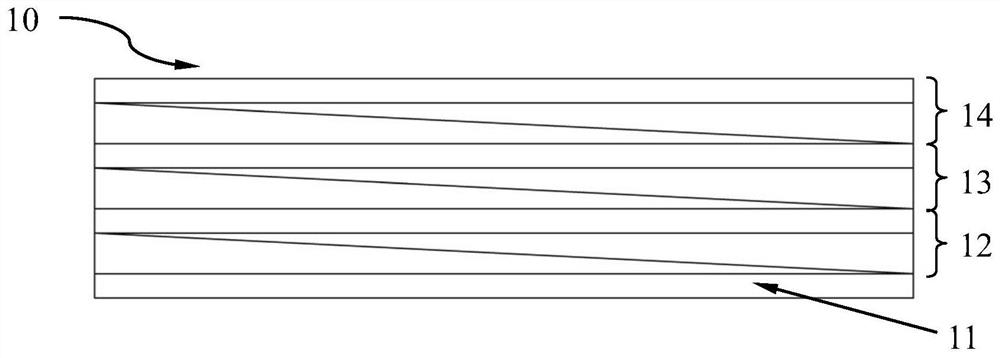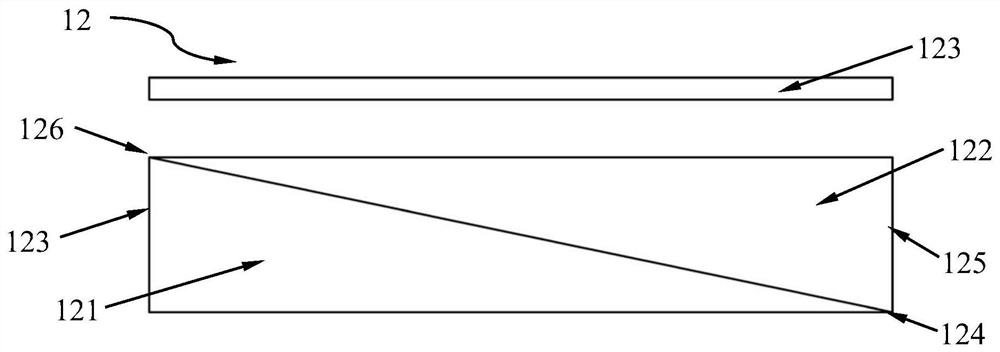Patents
Literature
89 results about "Tendon tissue" patented technology
Efficacy Topic
Property
Owner
Technical Advancement
Application Domain
Technology Topic
Technology Field Word
Patent Country/Region
Patent Type
Patent Status
Application Year
Inventor
Tendon, tissue that attaches a muscle to other body parts, usually bones. Tendons are the connective tissues that transmit the mechanical force of muscle contraction to the bones; the tendon is firmly connected to muscle fibres at one end and to components of the bone at its other end.
Systems and methods for electrosurgical treatment of fasciitis
InactiveUS20060189971A1Minimize and completely eliminate and damageExpand field of viewStentsHeart valvesFasciitisDamages tissue
Systems, apparatus, and methods are provided for promoting blood flow to a target tissue. In one aspect, the invention involves canalizing or boring channels, divots, trenches or holes through an avascular connective tissue, or through a tissue having sparse vascularity, such as a tendon or a meniscus, in order to increase blood flow within the tissue. In one method, an active electrode is positioned in close proximity to a target site on a tendon, and a high frequency voltage difference is applied between the active electrode and a return electrode to selectively ablate tendon tissue at the target site, thereby forming a channel or void in the tendon. The active electrode(s) may be moved relative to the tendon during, or after, the application of electrical energy to damage or sculpt a void within the tendon, such as a hole, channel, crater, or the like. In another aspect of the invention, an electrosurgical probe is used to elicit a wound healing response in a target tissue, such as an injured tendon, in order to stimulate vascularization of the target tissue. The present invention may also be used for vascularization of a torn or damaged tissue in conjunction with a surgical repair procedure.
Owner:ARTHROCARE
Tendon repair apparatus and method
InactiveUS20090216326A1Prevent easy withdrawalImprove retentionSuture equipmentsSurgical needlesMedicineBiomedical engineering
A method and apparatus for tendon repair includes an elongated member of a generally tubular shape having two barbed sections with oppositely directed barbs and a middle portion between the barbed sections. The barbs are cut from the tubular body leaving a mesh-like body of interconnected struts. The middle portion is also formed of interconnected struts. A needle and suture is connected at both opposite ends of the elongated member and used to pull the barbed sections into respective ends of a severed tendon. The barbs bite into the tendon tissue to hold the ends together. The sutures are preferably cut off at the tendon surface at a location spaced from the rejoined ends. One or more of the tendon repair devices may be used to repair each tendon, optionally with perimeter stitching at the rejoined ends.
Owner:XIRCON +1
Biocompatible scaffold for ligament or tendon repair
A biocompatible ligament repair implant or scaffold device is provided for use in repairing a variety of ligament tissue injuries. The repair procedures may be conducted with ligament repair implants that contain a biological component that assists in healing or tissue repair. The biocompatible ligament repair implants include a biocompatible scaffold and particles of viable tissue derived from ligament tissue or tendon tissue, such that the tissue and the scaffold become associated. The particles of living tissue contain one or more viable cells that can migrate from the tissue and populate the scaffold.
Owner:DEPUY SYNTHES PROD INC
Mechanically Competent Scaffold for Rotator Cuff and Tendon Augmentation
A device has been developed to augment the rotator cuff tendon tissue as it proceeds in healing. The device has two purposes: to provide initial stability to the rotator cuff repair site to allow early mobilization of the upper extremity of the patient, and to allow for reinforcement of rotator cuff tendon repairs to increase the likelihood of successful rotator cuff tendon repairs. The device consists of an inter-connected, open pore structure that enables even and random distribution and in-growth of tendon cells. The braided structure allows for distribution of mechanical forces over a larger area of tissue at the fixation point(s).
Owner:BIOREZ INC
Tendon repair apparatus and method
InactiveUS8062363B2Easy withdrawalEasy to insertSuture equipmentsSurgical needlesBiomedical engineeringTendon tissue
A method and apparatus for tendon repair includes an elongated member of a generally tubular shape having two barbed sections with oppositely directed barbs and a middle portion between the barbed sections. The barbs are cut from the tubular body leaving a mesh-like body of interconnected struts. The middle portion is also formed of interconnected struts. A needle and suture is connected at both opposite ends of the elongated member and used to pull the barbed sections into respective ends of a severed tendon. The barbs bite into the tendon tissue to hold the ends together. The sutures are preferably cut off at the tendon surface at a location spaced from the rejoined ends. One or more of the tendon repair devices may be used to repair each tendon, optionally with perimeter stitching at the rejoined ends.
Owner:XIRCON +1
System and Method for Forming Skeletal Muscle Constructs Having Functional Tissue Interfaces
A system and method for forming a skeletal muscle construct include primary muscle cells provided on a substrate without disposing the cells within an exogenous scaffold, the cells cultured in vitro such that the cells form a confluent monolayer; at least two anchors secured to the monolayer in spaced relationship; and at least one secondary tissue, such as neural or tendon tissue, provided in contact with the monolayer such that the monolayer detaches from the substrate and self-organizes to at least partially surround the at least one secondary tissue, thereby forming a three-dimensional skeletal muscle construct having a functional interface with the secondary tissue.
Owner:RGT UNIV OF MICHIGAN
Conditioning steak processing process
ActiveCN103844275ARealize industrializationRealize standardized productionFood preparationRaw materialChemistry
The invention discloses a conditioning steak processing process, which comprises the following steps of removing contaminants, extravasated blood and thick tendon tissues from rear thick flank, cuboidless steak rump and silverside steak raw materials, preparing pickling fluid and black pepper pickling fluid, injecting the pickling fluid, pickling the raw materials after tumbling by the black pepper pickling fluid, and performing filling, standing, quick-freezing, slicing and vacuum packaging. According to the conditioning steak processing process, conditioning steaks are industrially produced in a standard way, the quality stability is improved, and the taste consistency of the conditioning steaks is ensured.
Owner:修武县伊赛牛肉有限公司
Biocompatible scaffold for ligament or tendon repair
A biocompatible ligament repair implant or scaffold device is provided for use in repairing a variety of ligament tissue injuries. The repair procedures may be conducted with ligament repair implants that contain a biological component that assists in healing or tissue repair. The biocompatible ligament repair implants include a biocompatible scaffold and particles of viable tissue derived from ligament tissue or tendon tissue, such that the tissue and the scaffold become associated. The particles of living tissue contain one or more viable cells that can migrate from the tissue and populate the scaffold.
Owner:DEPUY MITEK INC
Tissue Matrix System
The present application discloses matrix compositions to support the repair of tissue defects such as an injury to tendon tissue, ligament tissue, vascular tissue, dermal tissue, or muscle tissue. A matrix described herein comprises a polyester polymer entangled with a polysaccharide polymer. Also disclosed are methods of preparing a matrix, and methods of using a matrix in the repair of tissue. In certain configurations, a matrix can comprise a polyester cross-linked with a polysaccharide, which can be an oxidized polysaccharide. In some configurations, a matrix can further comprise one or more additional components, such as a growth factor or an anti-infective agent. In some configurations, a matrix can be a viscous fluid or a paste, while in other configurations a matrix can be comprised by a solid such as a plug, a granule or a membrane.
Owner:ISTO TECH II LLC
Bio-derivative tendon repair material and preparation method thereof
ActiveCN101496912AMaintain the three-dimensional structure of spacePromote ingrowthLigamentsMusclesDepolymerizationFreeze-drying
The invention provides a repair material for biological derivative tendon. The material takes homogeneous or heterogeneous tendon as a raw material and is formed through disinfection, degreasing, deproteinization, decellularization, freeze drying, depolymerization, devillication recombination and secondary disinfection. A method for preparing a tendon scaffold material comprises the following steps that: on one hand, a periphery structure of a tendon tissue is destructed through treatment processes of removing soft tissues, the disinfecting, the degreasing and the decellularization, and the repellency of a transplantation receipt to the tendon is reduced; on the other hand, a basic mechanism, partial enzyme activity of the tendon tissue and the continuity of the tendon tissue are further maintained through a freeze drying process so as to provide a good scaffold structure for the revascularization and cell tissue of the tendon.
Owner:北京科健生物技术有限公司
Preparation of medical bioavailability bracket material and uses thereof
The invention relates to a preparation and using method of medical biocompatible stent material. The medical biocompatible stent material is prepared by applying the small intestine submucosal and the tendon tissue of people or animals as the raw materials. The invention has good biocompatibility, appropriate porosity and mechanical strength and stable spatial structure, and the invention contains various growth factors to induce the tissue for regeneration and reconstruction, thereby improving the success rate of the repair of the various tissue defects and the reconstruction of tissue structures, therefore, the invention is an ideal tissue engineering material. The medical biocompatible stent material which is provided by the invention is applicable to the preparation of various tissue engineering equipments and the application in the repair of various tissue defects and injuries, including skin, blood vessels, nerves, tendons, bones, cartilages, abdominal walls, urinary tracts, oral mucosa and so on, and the invention can be used in the treatment of trauma, abdominal external hernia, anal fistula, rectovaginal fistula, rectum anterior protrusion, bone and cartilage defects, vascular injuries, nerve injuries, tendon injuries, oral mucosal injuries, relaxed pelvic floor, urinary tract injuries and other diseases.
Owner:BEIJING BIOSIS HEALING BIOLOGICAL TECH
Mechanically competent scaffold for rotator cuff and tendon augmentation
A device has been developed to augment the rotator cuff tendon tissue as it proceeds in healing. The device has two purposes: to provide initial stability to the rotator cuff repair site to allow early mobilization of the upper extremity of the patient, and to allow for reinforcement of rotator cuff tendon repairs to increase the likelihood of successful rotator cuff tendon repairs. The device consists of an inter-connected, open pore structure that enables even and random distribution and in-growth of tendon cells. The braided structure allows for distribution of mechanical forces over a larger area of tissue at the fixation point(s).
Owner:BIOREZ INC
Preparation and application of anti blocking biomembrane for tendon and ligament
ActiveCN1795933AHigh protein purityStable molecular structurePeptide/protein ingredientsSurgeryCross-linkFreeze-drying
An anti-adhesion biological membrane for muscle tendon and ligament is prepared from the muscle tendon of beef through removing impurities, washing, treating with acid, alkali and enzyme, cross-linking with chondroitin sulfate, and freeze drying. Its advantages are high structure stability, biocompatibility and degradability. It is applied by winding it on the clean muscle tendon or ligament after operation to form a false membrane.
Owner:于海鹰 +1
Surgical device and method
A surgical device and method for fixation of a tissue graft into a bone is disclosed. A strand is coupled with the tissue graft. A guide wire is coupled with the strand. The tissue graft is positioned within a socket of the bone and a cannulated screw is driven along the guide wire and into the bone socket to form an interference fixation of the tissue and the tissue graft. The strand attached to the tissue graft is retracted from the bone socket through a strand aperture of the socket. The guide wire is then removed from the bone socket. A loop may be transposed between, and coupling, the tissue graft and the strand. The guide wire may alternatively be coupled with the loop and / or the strand. The tissue graft may be a tendon tissue or a bone-tendon-bone graft.
Owner:USHIBA JAMES
Method for producing nutria tendon tissue medical suture and straining device for the same
InactiveCN101085373AEasy to useSmooth suture surfaceSuture equipmentsSuturing needleUltimate tensile strength
The invention discloses a production method of suture prepared from nutria tendon tissue and its tensioner. The method comprises extracting tendon tissue from nutria, dewatering, degreasing, sterilizing, air-drying under tensile force, screening to obtain qualified tissue, separating out suture of different specification, and matching with non damage perforate pin or notch pin according to specification, and preparing into sutural line with pin. The inventive suture needle has smooth surface, uniform strip, accurate linear diameter, and good tensile force.
Owner:湖南然元医用高科技蛋白线有限公司
Integrated scaffold for simulating gradient structure from bone-tendon-bone mineralization to non-mineralization
ActiveCN111450316AOsteoconductivePromote ingrowthPharmaceutical delivery mechanismElectro-spinningYarnBiochemistry
The invention relates to an integrated scaffold for simulating gradient structure from bone-tendon-bone mineralization to non-mineralization, warps are nanofiber yarns with zero mineral content, weftsin the middle of the scaffold are nanofiber yarns with zero mineral content, and wefts from the middle to two ends are nanofiber yarns with gradually increased loaded mineral content. The constructedintegrated scaffold for simulating gradient structure from bone-tendon-bone mineralization to non-mineralization provides an ideal microenvironment for repairing tendon defects, realizes guiding of tendon tissue regeneration after implantation, promotes tendon-bone healing, and is very suitable for tendon-bone injury repairing.
Owner:深圳市迈捷生命科学有限公司
Bionic stent simulating natural tendon tissue fiber hierarchical structure and preparation method of bionic stent
The invention relates to a bionic stent simulating a natural tendon tissue fiber hierarchical structure and a preparation method of the bionic stent. The material is a multi-hierarchical structure simulating tendon tissue fibers. A double-nozzle spinning head is adopted, positive and negative electric fields are respectively added, nano fibers are received through a rotating funnel and twisted oncore layer yarns, and stable and continuous primary core-spun yarns are prepared. A plurality of primary core-spun yarns are stranded to serve as core layer yarns, nano fibers are electrostatically spun on the outer layers, the obtained secondary core-spun yarns are stranded to serve as a core layer, nano fibers are electrostatically spun on the outer layer, and tertiary core-spun yarns with a fiber multi-hierarchical structure simulating tendon tissues are prepared and used for a tendon repair stent. The bionic stent is beneficial to tendon repair and normal function recovery, is quite suitable to be used as a tendon injury repair and medical instrument material, and has good application prospect; the preparation method is simple and convenient; and the production efficiency is high.
Owner:DONGHUA UNIV
Preparation method of cell preparation for promoting regeneration and repair of traumas
InactiveCN106190960APromote repairPromote proliferationCell dissociation methodsPeptide/protein ingredientsCollagen iStem cell culture
The invention discloses a preparation method of a cell preparation for promoting the regeneration and the repair of traumas. The preparation method comprises the steps of shearing and digesting heel tendon tissues, carrying out centrifuging to remove supernate, adding an obtained tendon stem cell population into a culture solution, carrying out resuspension and filtering, inoculating the culture solution into a culture plate for culturing, mixing the culture solution with platelet rich plasma, and adding normal saline, so as to prepare a tendon stem cell population. Tendon stem cells are separated and cultured, tendon stem cells cultured in vitro are mixed with the platelet rich plasma to prepare the cell preparation, the platelet rich plasma contains a large number of growth factors such as PDGF, EGF, TGF-beta1 and IGF which have great promotion effects to the repair of tendons, the platelet rich plasma is capable of promoting the propagation of tendon cells and the expression of collagens I and III in vivo, and the tendon cells and the collagens I and III are key components of the tendons, so that an experimental result has a certain guiding effect to the repair of tendon injury of a human body.
Owner:ANHUI HUIEN BIOTECH
Medical cutting instrument for cutting muscles and tendons
ActiveUS20130018404A1Easy to operateAllows controlled severingSurgical scissorsEndoscopic cutting instrumentsEngineeringBiomedical engineering
A medical cutting instrument for cutting muscles and tendons, having a shaft on whose distal end a tool is mounted consisting of two jaw members, such that at least one jaw member can move with respect to the other jaw member, and on whose proximal end a handle is mounted, such that the movable jaw member and the handle operatively interact with one another by way of an actuation element mounted in the shaft in such a way that the movable jaw member can be shifted between a closed position and an opened position of the tool by actuating the handle and whereby the tool is configured for simultaneous severing and holding of one end of the severed muscle / tendon tissue. At least in the other jaw member, a guide is configured for controlled insertion of the muscle / tendon tissue that is to be severed.
Owner:KARL STORZ GMBH & CO KG
Preparation method of novel decellularized tendon or ligament bracket
The invention relates to a preparation method of a decellularized tendon or ligament bracket, and aims at providing a decellularized tendon or ligament collagen fiber material with good biomechanical characteristic and good biocompatibility. The preparation method comprises the following steps: acquiring animal tendon or ligament with the adventitia or synovial tissue removed, wherein during the whole decellularization process, a mixed protecting liquid containing a ligament or tendon support structure protective agent is adopted; pre-separating cells in the ligament or tendon tissue by adopting a high hydrostatic pressure technology; digesting the residual cell nuclei by adopting a compound nuclease method; removing loose broken cell sheets by adopting a detergent; and carrying out rinsing by adopting the mixed protecting liquid. Through the efficient physical means, the adoption of small amount of enzyme and the detergent removing means, the cellular constituent in the ligament or tendon can be sufficiently removed, and the protecting liquid is adopted for the whole-process protection, so that on the basis of guaranteeing the complete removal of the cell nuclei, while the immunogenicity of the tendon or ligament tissue is reduced to the maximum, the three-dimensional structure and arrangement polarity of the normal collagenous fibers of the tendon or ligament tissue are reserved.
Owner:拜欧迪赛尔成都生物科技有限公司
Tissue engineering artificial tendon scaffold enhanced body and preparation method thereof
InactiveCN101829356AGood biomechanical propertiesChange tensile strengthYarnProsthesisGlycollic acidMechanical property
The invention relates to a tissue engineering artificial tendon scaffold enhanced body which comprises tube-shaped fabrics. The tube-shaped fabrics are braided by interweaving PGA (Polyglycolic Acid) fiber flaments and PLA (Polylactic Acid) fiber flaments or PGLA (Poly (Lactic-glycolic Acid)) fiber flaments on a spindle machine to form braided wires or combining the fiber flaments to cord yarns and are in a hollow circular reticular tissure structure. A preparation method of the tissue engineering artificial tendon scaffold enhanced body comprises the following steps of braiding the PGA (Polyglycolic Acid) fiber flaments and the PLA (Polylactic Acid) fiber flaments or the PGLA (Poly (Lactic-glycolic Acid)) fiber flaments into wires or the cord yarns, braiding the wires or the cord yarns into a ring by withdrawing a braiding needle, braiding edges of the reticular structure by the braiding needle, and connecting the edges by short needles. The enhanced body can enable cells to grow in an attaching mode, has the advantage of controllable degradation rate of a scaffold, simple and rapid preparation method and the like, particularly and still has higher mechanical property in the degradation process of the scaffold and has favorable application prospect, wherein the mechanical disintegration rate is matched with the tendon tissue growth rate, and the length of the scaffold can be arbitrarily shorn as required. The invention has favorable application prospect.
Owner:DONGHUA UNIV
Method for preparing cardiac muscle tissue engineering decellularization collagen diaphragm
InactiveCN106806942AAvoid destructionRetained glycosaminoglycansTissue regenerationProsthesisFiberCell-Extracellular Matrix
The invention provides a method for preparing a cardiac muscle tissue engineering decellularization collagen diaphragm. The method comprises the following step: selecting natural pork tendon tissue, and performing decellularization on the tissue by using treatment methods of repeated freezing and thawing and nuclease treatment, thereby obtaining decellularization pork tendon diaphragms of different thicknesses, wherein the thicknesses of the diaphragms are within 5-30[mu] m; the obtained diaphragms comprise collagen as a main component; and the diaphragms are of structures of fibers which are arranged in parallel, are similar to extracellular matrix components and structures of cardiac muscle tissue cells, can induce cardiac muscle cells to extend along the fiber direction, and thus can be used for culturing cardiac muscle cells and establishing heart-like tissue. The method has the advantages of being convenient in material obtaining, low in price, stable in preparation process, uniform in product morphology, and simple and gentle, and collagen diaphragms can be highly controlled, have complete structures, morphology, biological properties and inherent mechanical properties of materials, furthermore have good biocompatibility and biodegradability, and are very applicable to cardiac muscle tissue engineering construction and regenerative medicine.
Owner:DALIAN INST OF CHEM PHYSICS CHINESE ACAD OF SCI
Bioreactor for constructing tendon from tissue engineering
InactiveCN1958787AImprove mechanical propertiesMeet physiological requirementsVertebrate cellsArtificial cell constructsLiquid ChangeBiomechanics
This invention relates to a biological reactor for constructing tissue engineered muscle tendon. The biological reactor is composed of a cell culture chamber, a control system, a liquid-change control system, and a parameter measurement system. The biological reactor can apply a pulse tension on the composite of cell and degradable material. The muscle tendon constructed by the biological reactor has a strain range of 4-15%, thus has excellent biological and mechanical properties. The biological reactor can also be used for culture of other tissues and cells.
Owner:SHANGHAI TISSUE ENG LIFE SCI
Medical cutting instrument for severing muscles and tendons
A medical cutting instrument for cutting muscles and tendons, with an instrument body that includes a handle on its proximal end and at least one cutting knife in the area of its distal end. To provide a medical cutting instrument that guarantees ease of handling and simple structure along with secure cutting of the muscle / tendon tissue, the instrument body should be of grooved configuration in the area of its cutting knife in such a way that the instrument body includes a hollow space extending in the longitudinal direction of the instrument body to receive and guide the muscle / tendon tissue that is to be cut, such that the instrument body includes an opening extending in the longitudinal direction of the instrument body and the cutting knife constitutes a side of the instrument body.
Owner:KARL STORZ GMBH & CO KG
Medical cutting instrument for severing muscles and tendons
A medical cutting instrument for cutting muscles and tendons, with an instrument body that includes a handle on its proximal end and at least one cutting knife in the area of its distal end. To provide a medical cutting instrument that guarantees ease of handling and simple structure along with secure cutting of the muscle / tendon tissue, the instrument body should be of grooved configuration in the area of its cutting knife in such a way that the instrument body includes a hollow space extending in the longitudinal direction of the instrument body to receive and guide the muscle / tendon tissue that is to be cut, such that the instrument body includes an opening extending in the longitudinal direction of the instrument body and the cutting knife constitutes a side of the instrument body.
Owner:KARL STORZ GMBH & CO KG
Tendon-bone combined three-phase scaffold prepared by fusion electrospinning three-dimensional printing
InactiveCN109837215APromote proliferation and repairConducive to joint repairAdditive manufacturing apparatusTissue/virus culture apparatusMicrosphereCartilage bone
The invention belongs to the technical field of medical treatment, and particularly relates to a tendon-bone combined three-phase scaffold prepared by fusion electrospinning three-dimensional printing. A method comprises the following steps: S1, cell cultivation; S2, bracket preparation; and S3, cell planting. The method can accurately control the fiber diameter and the printing path by using a fusion electrostatic spinning three-dimensional printing technology, thereby greatly improving the printing precision; by using a spinning solution containing cytokine microspheres for electrospinning printing, the electrospinning fibers containing a large amount of cytokines can be obtained; and through different three-dimensional printing path parameters, the tendon-cartilage-bone three-phase scaffold can be obtained by printing. The scaffold obtained by the method has a bone-cartilage-tendon tissue gradient structure, has high structure precision, carries a large amount of microspheres with cytokines for slow release, promotes cell proliferation repair, and is beneficial to tendon-bone combined and normal function recovery.
Owner:SHANGHAI NINTH PEOPLES HOSPITAL AFFILIATED TO SHANGHAI JIAO TONG UNIV SCHOOL OF MEDICINE
Polycaprolactone/methylacryloyl elastin nanofiber composite membrane and preparation method and application thereof
ActiveCN111962210ASmall diameterLarge specific surface areaConjugated cellulose/protein artificial filamentsTissue regenerationPolymer scienceTissue repair
The invention belongs to the field of medical materials for tendon injury repair and discloses a polycaprolactone / methylacryloyl elastin nanofiber composite membrane and a preparation method and application thereof. The preparation method specifically comprises the following steps of grafting methacrylic anhydride to elastin to obtain the methylacryloyl elastin; then mixing polycaprolactone with the methylacryloyl elastin uniformly to prepare a spinning solution; carrying out electrostatic spinning by using the spinning solution to obtain a composite membrane; and soaking the composite membrane by using a photoinitiator solution, carrying out photo-crosslinking under ultraviolet light and then carrying out washing and drying for many times to obtain the polycaprolactone / methylacryloyl elastin nanofiber composite membrane. The preparation method is easy to operate and relatively low in production cost, and the obtained composite membrane is good in mechanical property and biocompatibility and can be used for tendon tissue engineering and tissue repair.
Owner:SOUTH CHINA UNIV OF TECH
Plaster for treating osteoarthritis, and preparation method thereof
The invention belongs to the technical field of pure traditional Chinese medicines, and provides a plaster for treating osteoarthritis, and a preparation method thereof. The plaster is prepared from the following chinese herbal medicine ingredients in parts by weight: 1000 parts of unprocessed semen strychni, 50 parts of unprocessed squama manis, 50 parts of scolopendra, 50 parts of long-noded pit viper, 50 parts of ground beetle, 50 parts of raw frankincense, 150 parts of raw myrrh, 300 parts of radix angelicae sinensis, 300 parts of caulis sinomenii, 300 parts of raw wild aconite root, 300 parts of radix aconiti lateralis preparata, 50 parts of cornu cervi pantotrichum, 50 parts of ligamentum cervi, 5000 parts of pure sesame oil, and 1300-1400 parts of minium. All the Chinese herbal medicine ingredients are combined for use so as to achieve the effects of dispersing blood stasis and eliminating stagnation, removing evilness, strengthening the body resistance, and strengthening muscles and bones, the applied plaster has the effects of invigorating the blood circulation and diminishing the inflammation, diminishing the swelling, removing dampness and dispelling cold, and relaxing tendons and easing pain, and can fast recover the functions of the affected limb; the plaster points to symptoms of the osteoarthritis, realizes the purpose of treating both principal and secondary aspect of disease and has a considerable effect; especially for the arthralgia aversion to wind and cold, people feel warm and comfortable and spasmodic muscle tendon tissues can be relieved after the plaster is applied for minutes, pain is immediately diminished, and pain basically disappears for no more than ten days, the functions are improved, and the osteoarthritis can be recovered after the plaster is continuously applied.
Owner:汪建华
Bioactive scaffold for inducing tendon tissue regeneration, preparation method and use thereof
ActiveCN108245708ALow antigenicityTissue regenerationProsthesisCell-Extracellular MatrixBiocompatibility Testing
The invention discloses a method for preparation of a bioactive scaffold for inducing tendon tissue regeneration. The method includes the steps of: (1) taking a fresh tendon and conducting decellularization treatment to obtain a decellularized compressed sheet or slice scaffold, and (2) compounding an extracellular matrix on the scaffold. The invention also discloses a decellularized tendon bioactive scaffold prepared by the aforementioned method and use thereof. The decellularized tendon scaffold prepared by the method provided by the invention has the characteristics of high bioactivity, good in-vivo restoration effect, low immunogenicity, good biocompatibility, simple preparation method and low cost, thus having good application prospects.
Owner:WEST CHINA HOSPITAL SICHUAN UNIV
Composite tendon repair material and preparation method thereof
ActiveCN112107729AReduce usageLong release periodLigamentsMusclesCell-Extracellular MatrixRotator cuff muscle
The invention relates to a composite tendon repair material. The composite tendon repair material is characterized by comprising a base layer and one or more active units, wherein the base layer and the active units are fixedly arranged with each other; the base layer comprises an extracellular matrix material; each active unit in the active units comprises a first active layer, a second active layer and a covering layer; the first active layer comprises an extracellular matrix material and a first active component; the second active layer comprises an extracellular matrix material and a second active component; and each active unit is prepared by a mechanical compression method. The repair material promotes bone tissue wound surface growth repair and tendon tissue wound surface growth repair at the tendon and bone tearing positions respectively, finally, promotes healing of dead points at the junction of tendons and the bone, and effectively forms a dead-point-like structure from thebone, calcified cartilage and fibrous cartilage to the tendons. By means of the structure, repair of huge rotator cuff tendon tearing can be achieved.
Owner:BEIJING BIOSIS HEALING BIOLOGICAL TECH
Features
- R&D
- Intellectual Property
- Life Sciences
- Materials
- Tech Scout
Why Patsnap Eureka
- Unparalleled Data Quality
- Higher Quality Content
- 60% Fewer Hallucinations
Social media
Patsnap Eureka Blog
Learn More Browse by: Latest US Patents, China's latest patents, Technical Efficacy Thesaurus, Application Domain, Technology Topic, Popular Technical Reports.
© 2025 PatSnap. All rights reserved.Legal|Privacy policy|Modern Slavery Act Transparency Statement|Sitemap|About US| Contact US: help@patsnap.com
